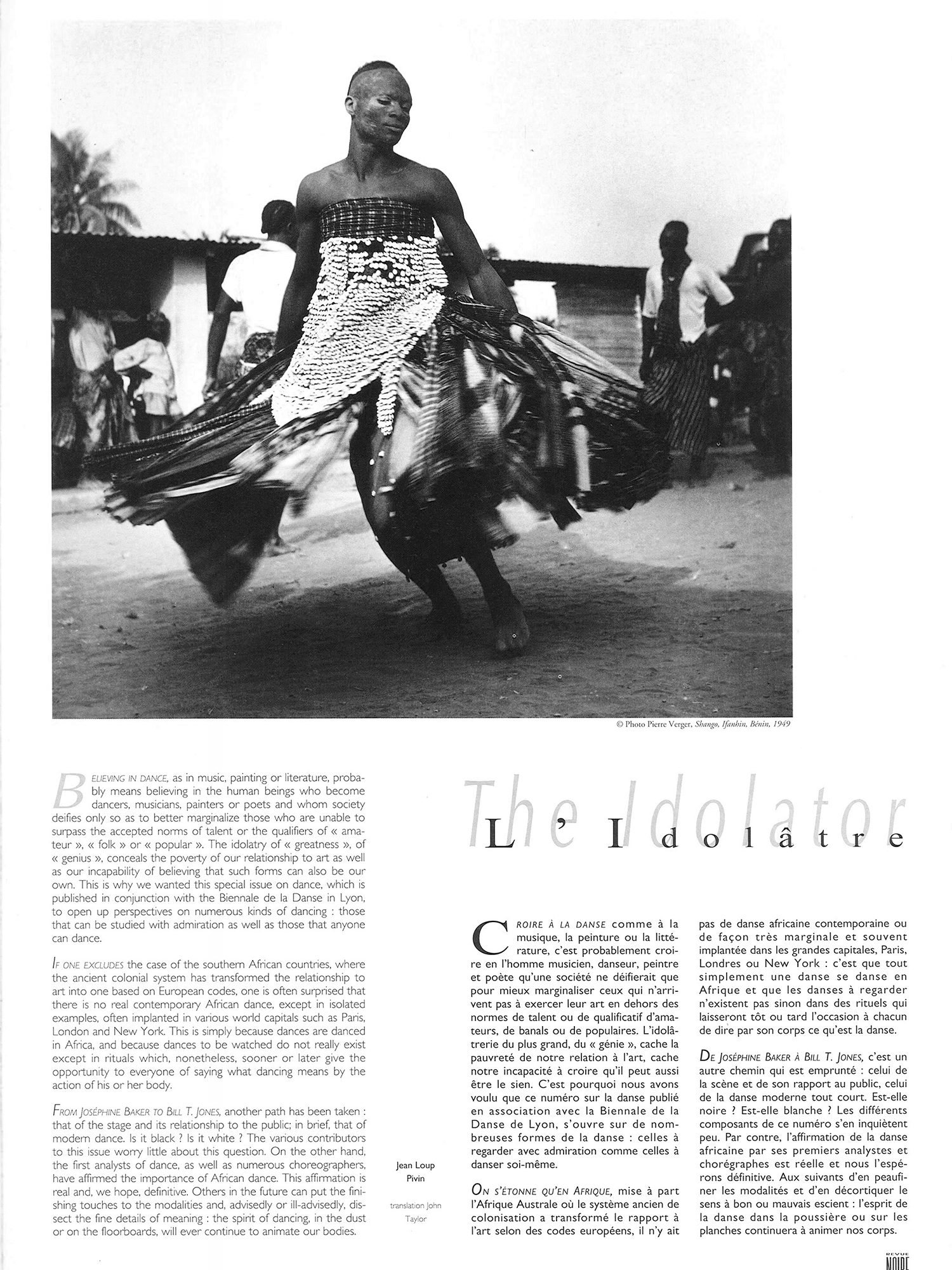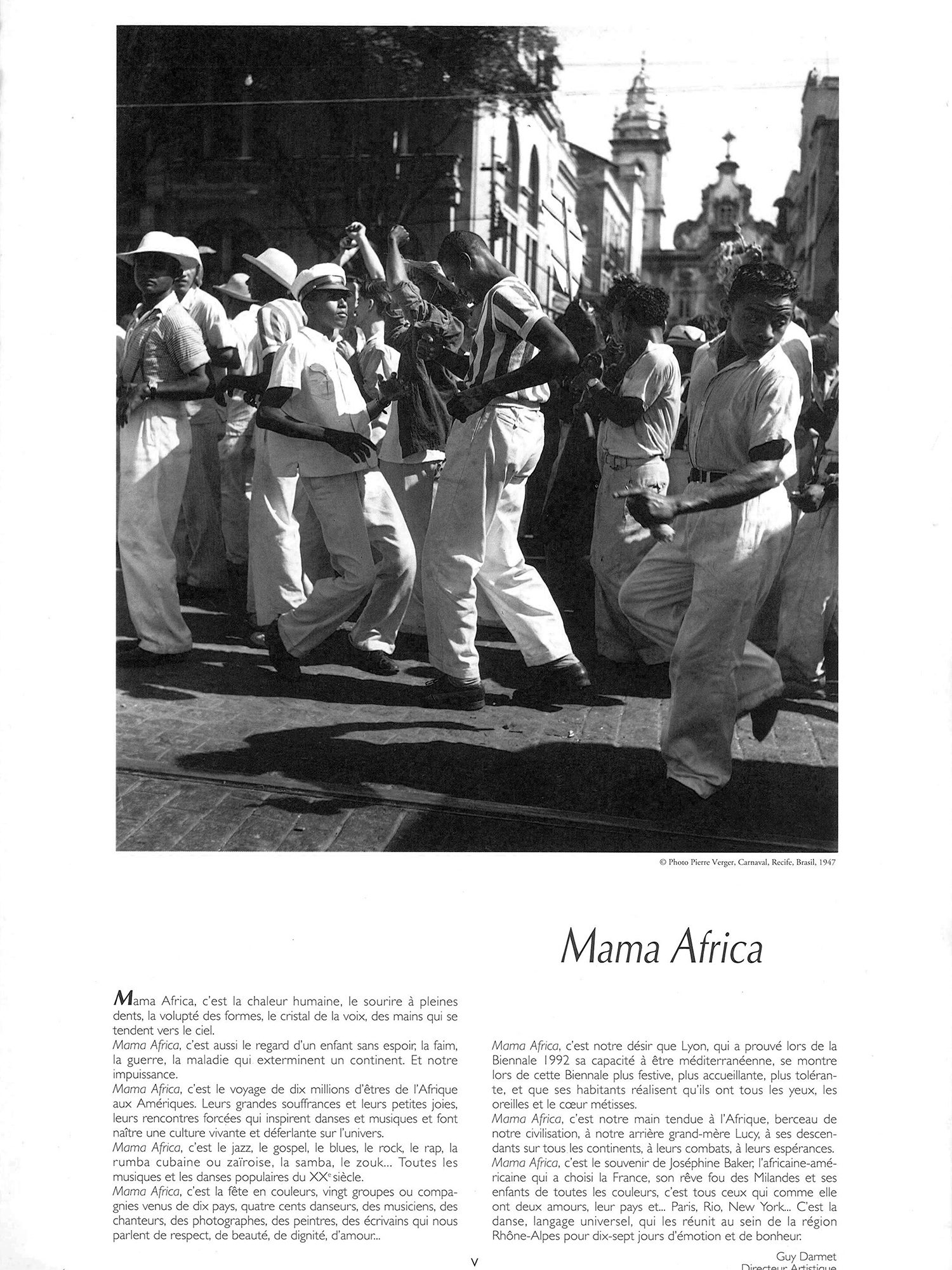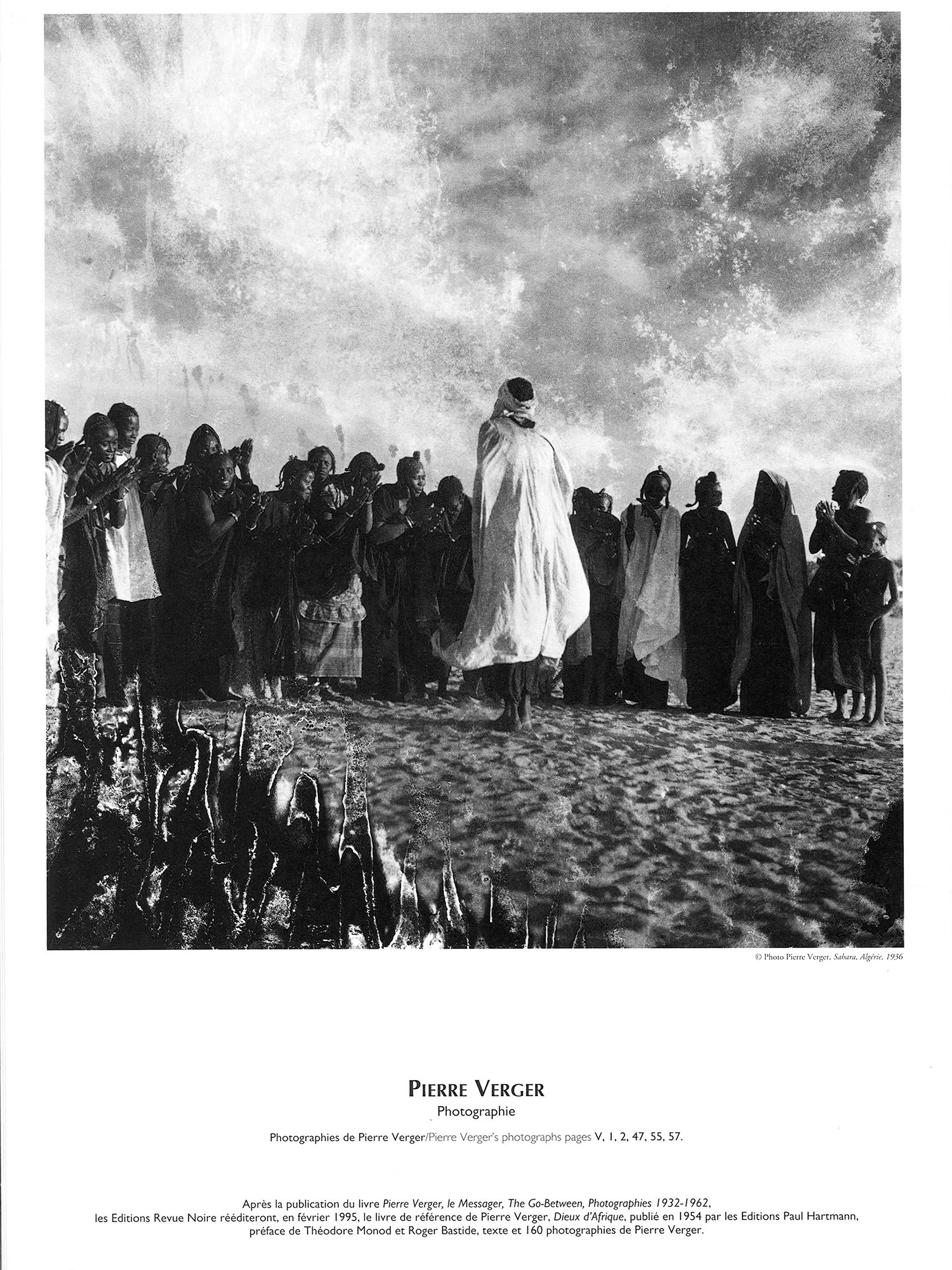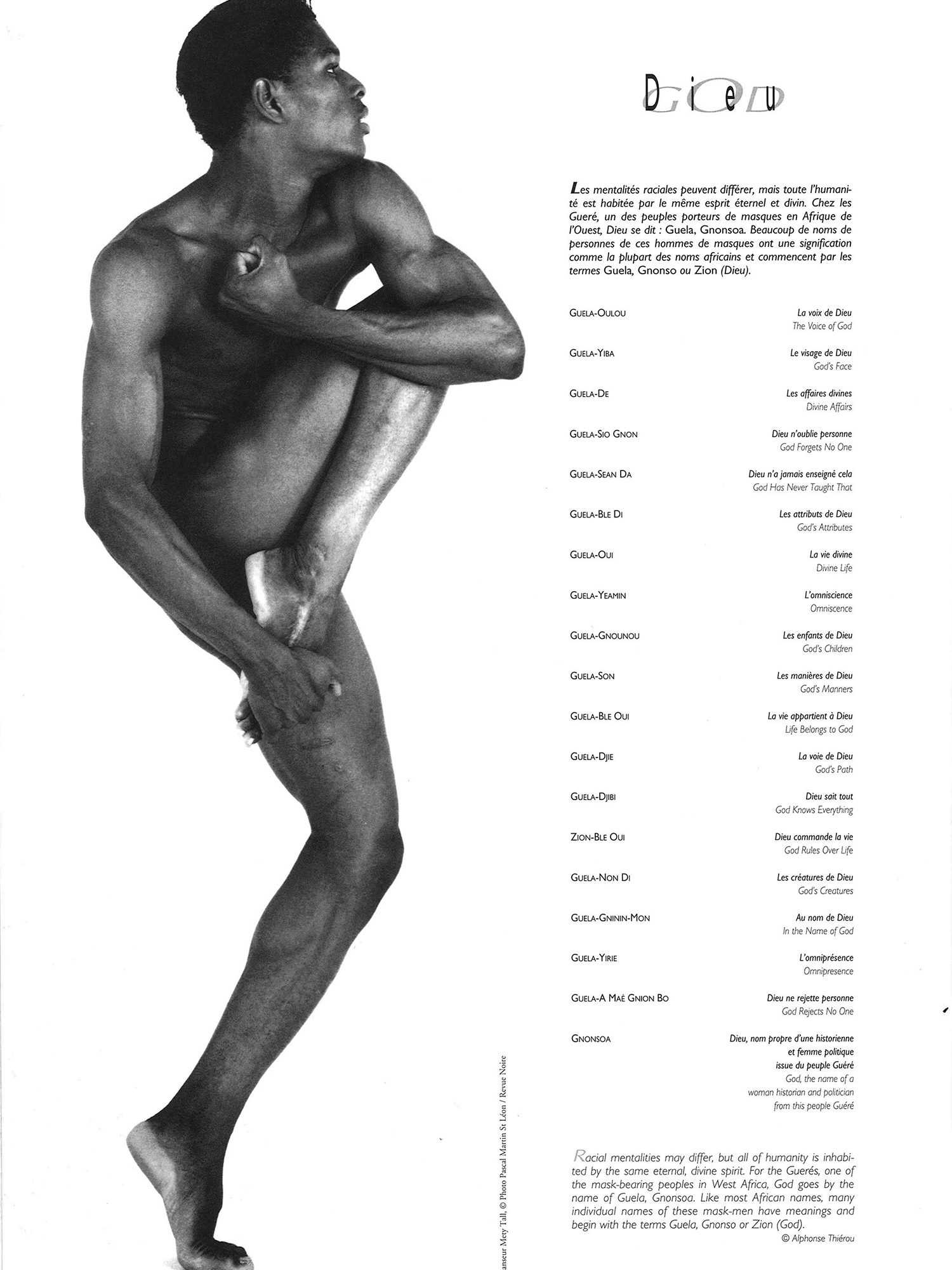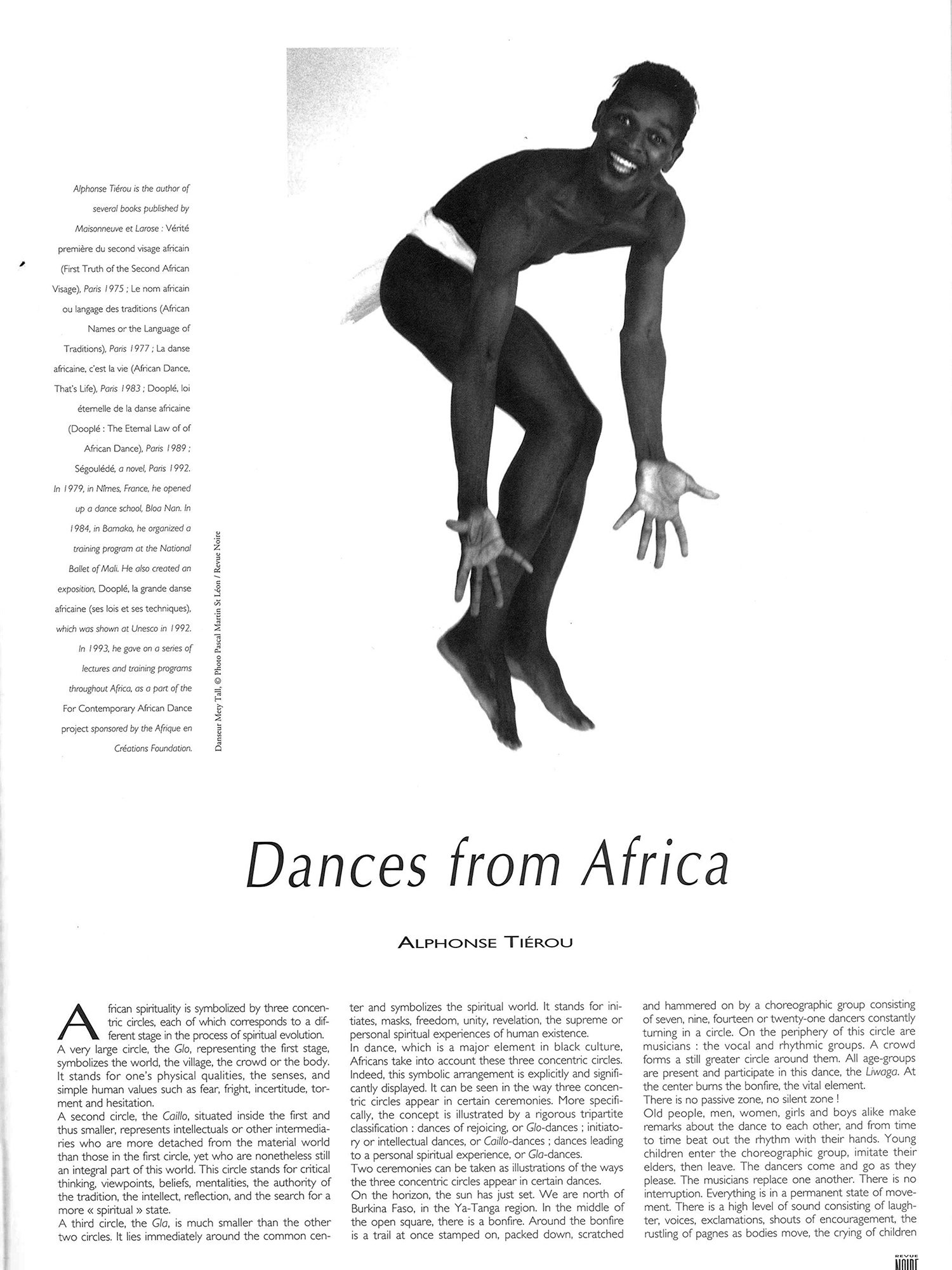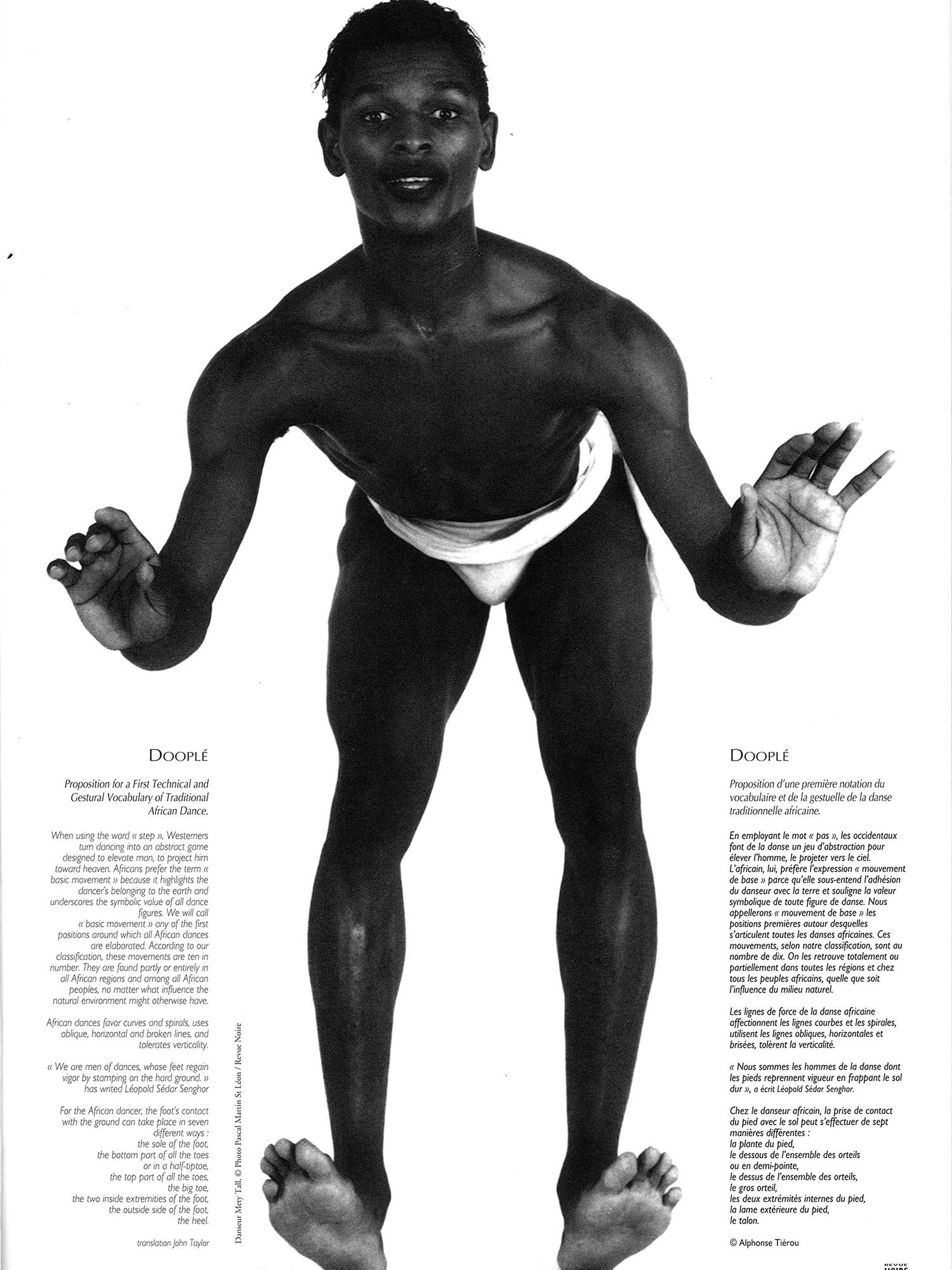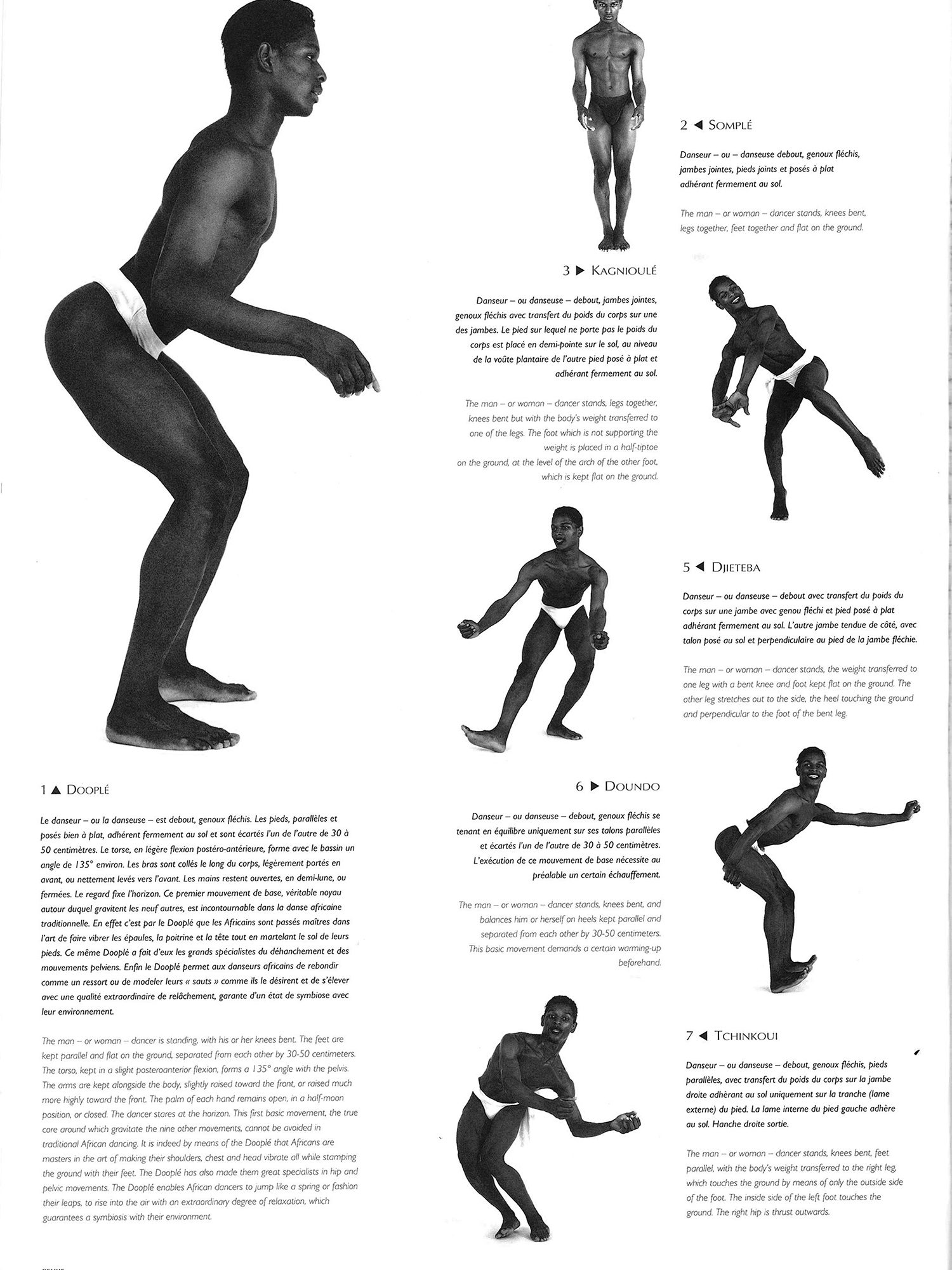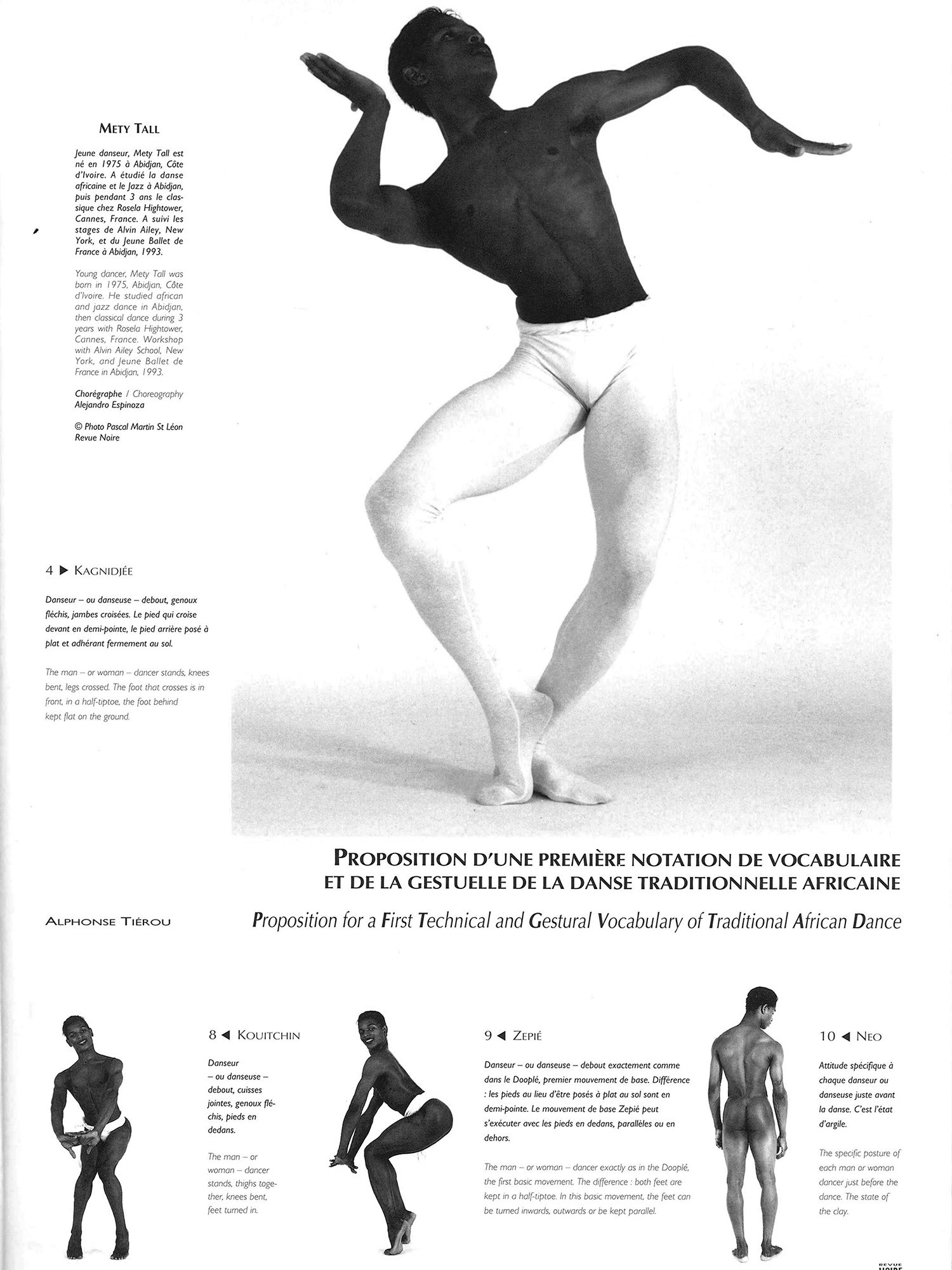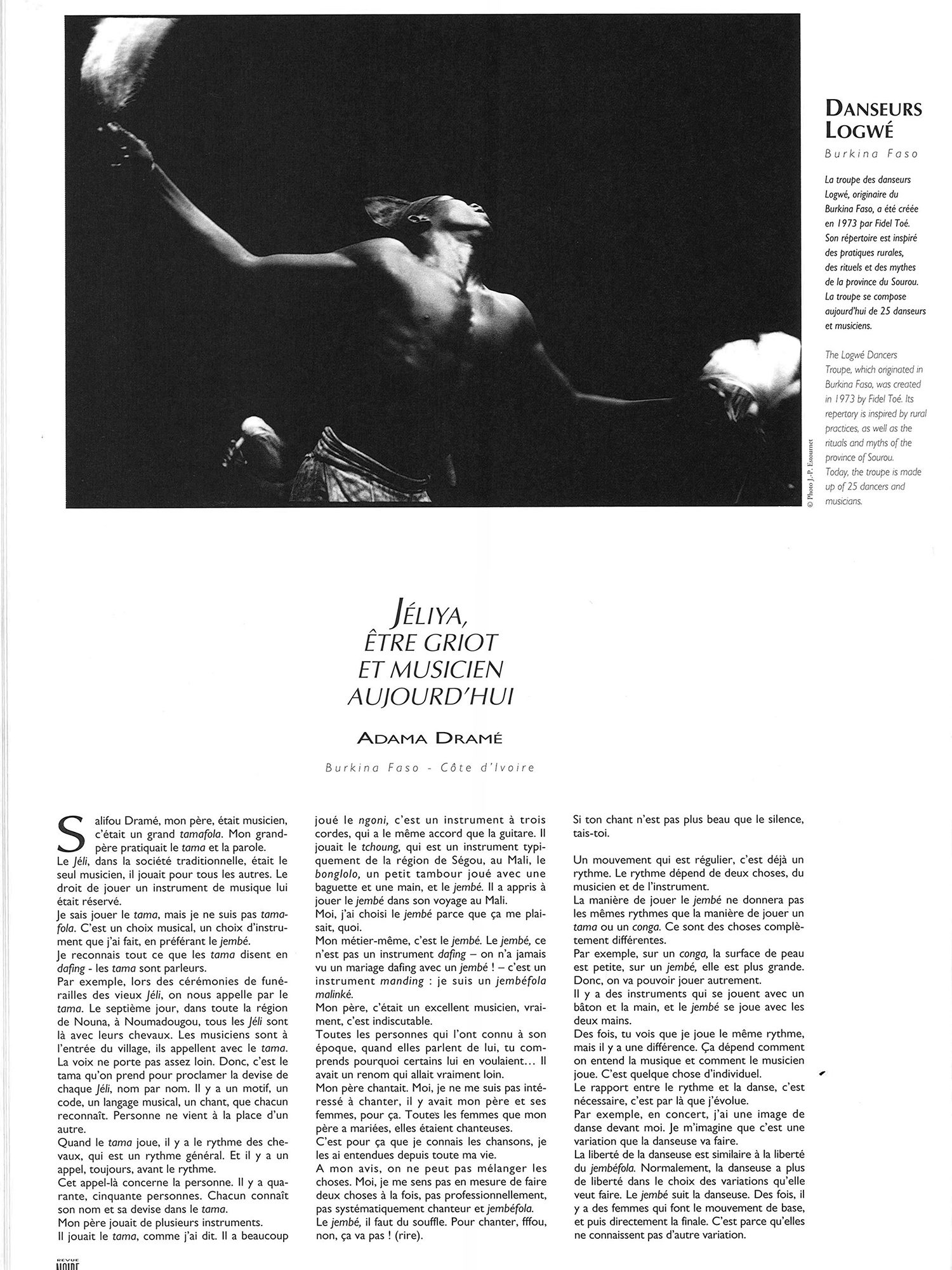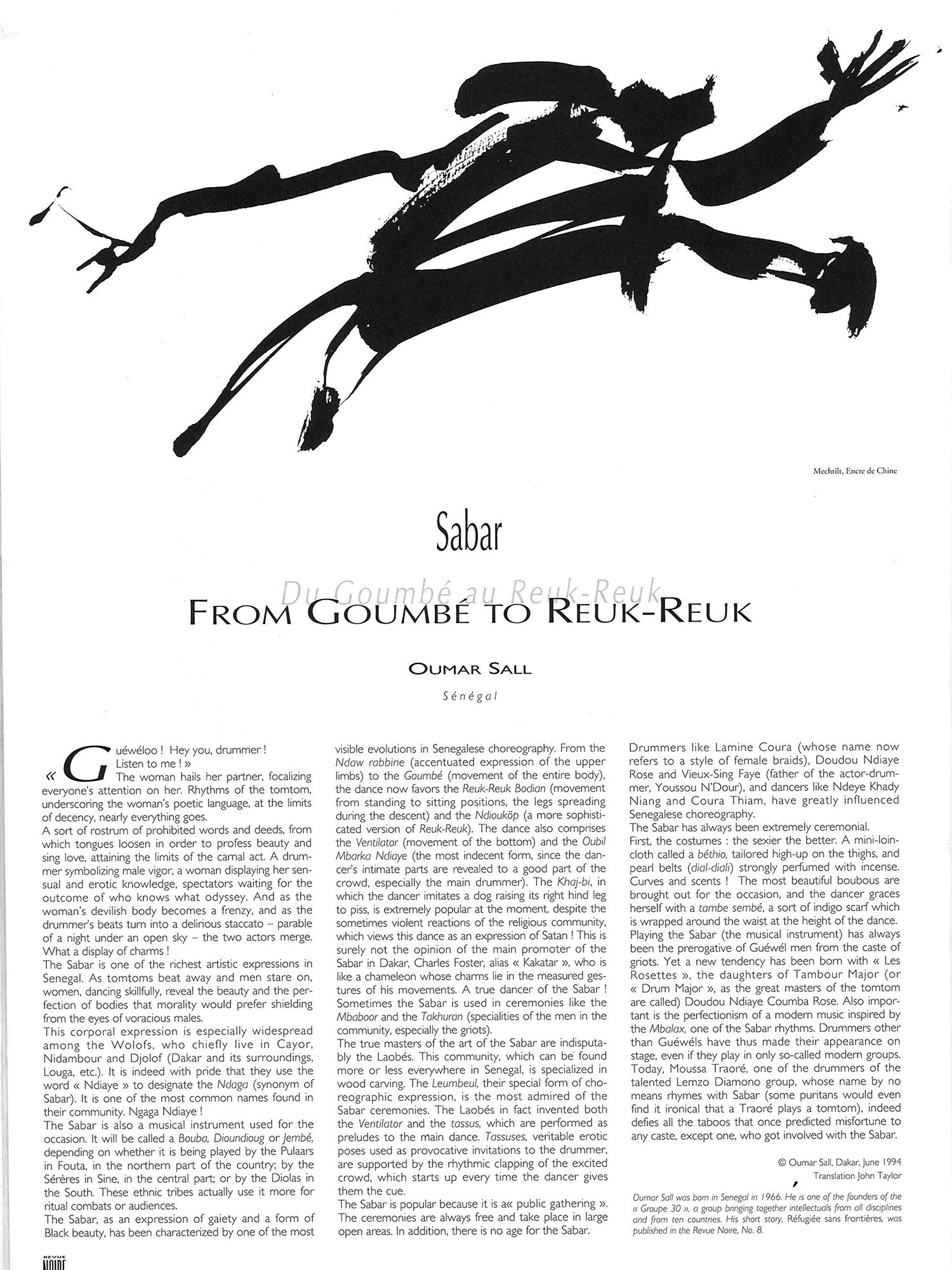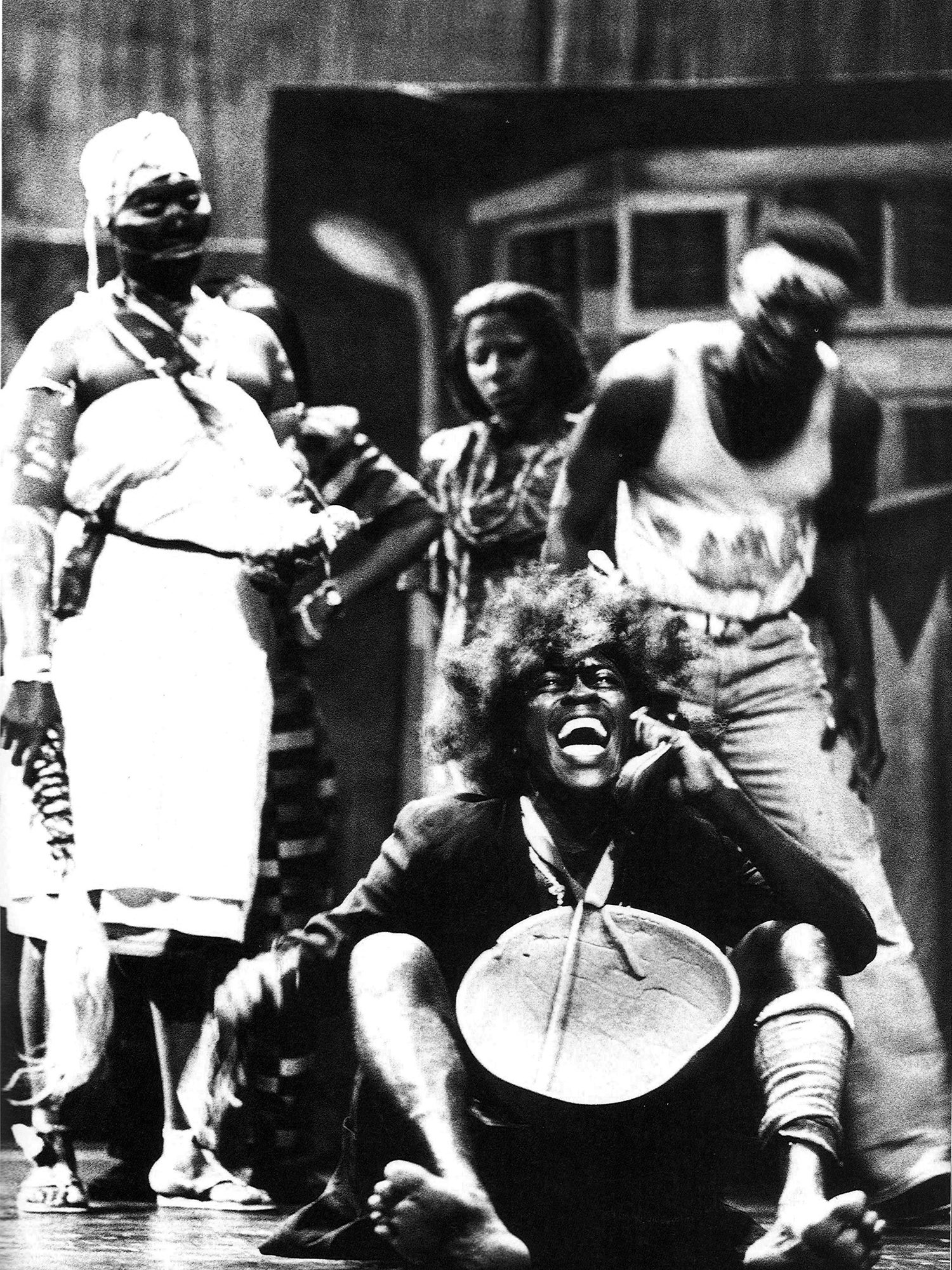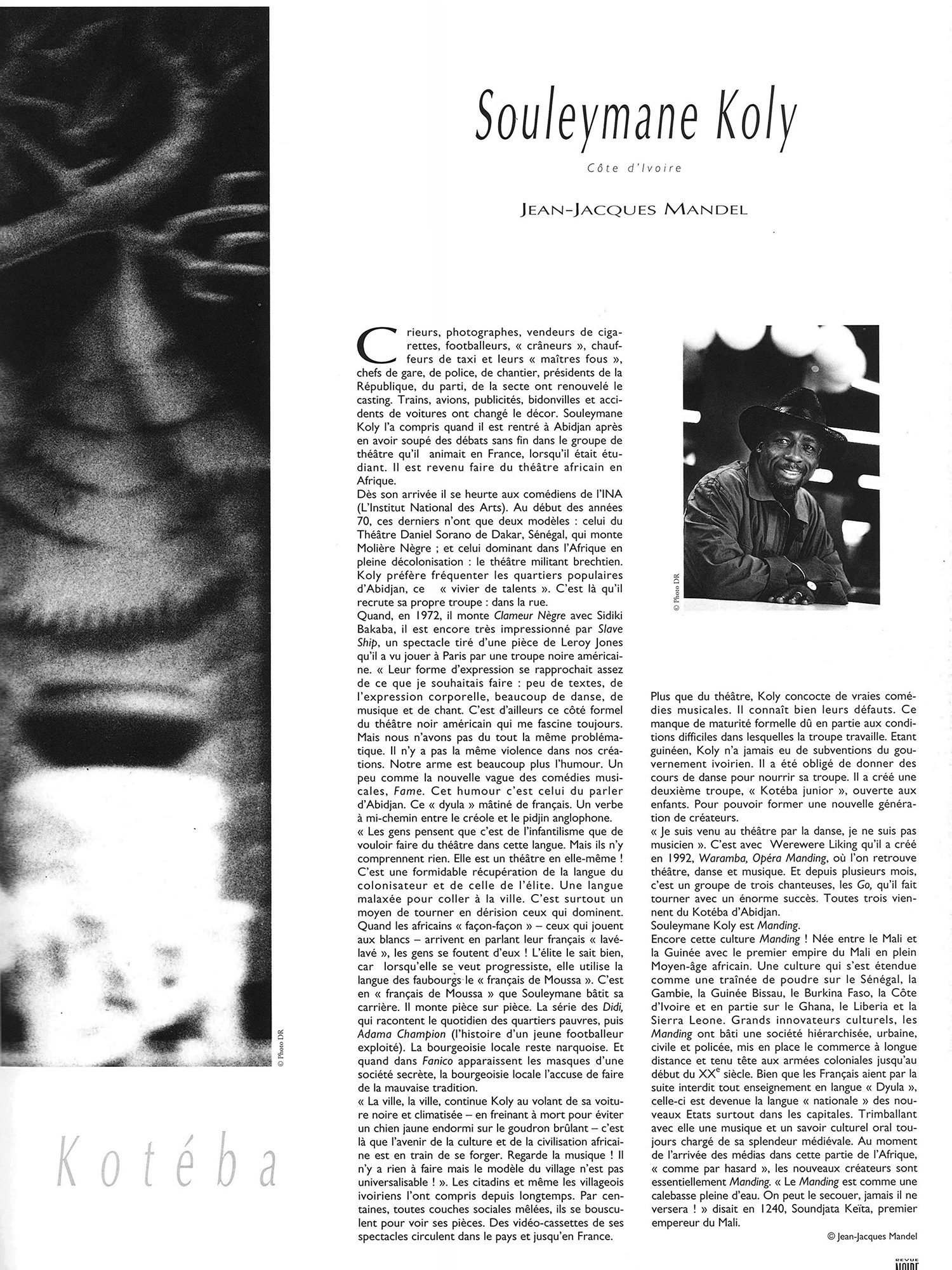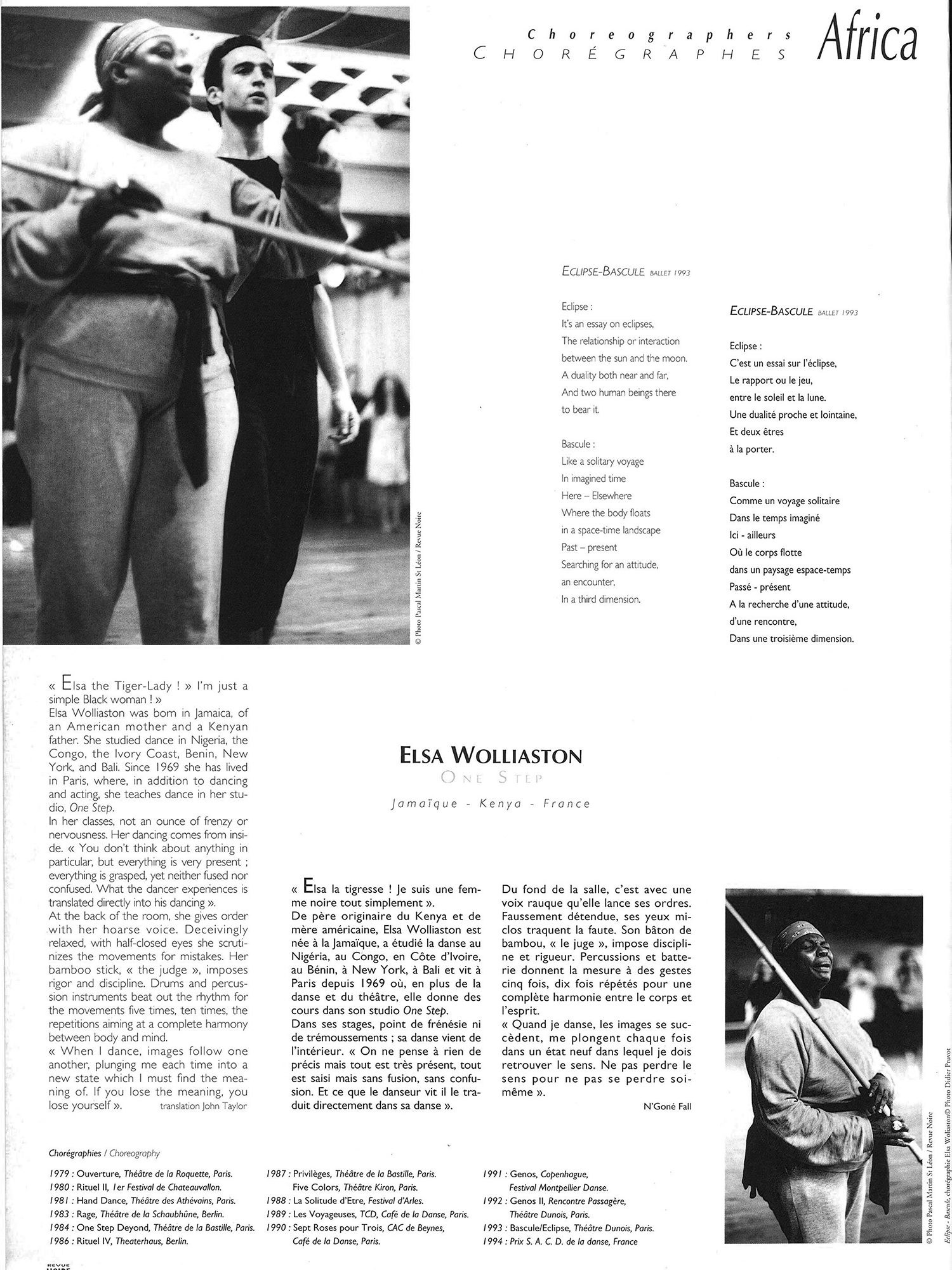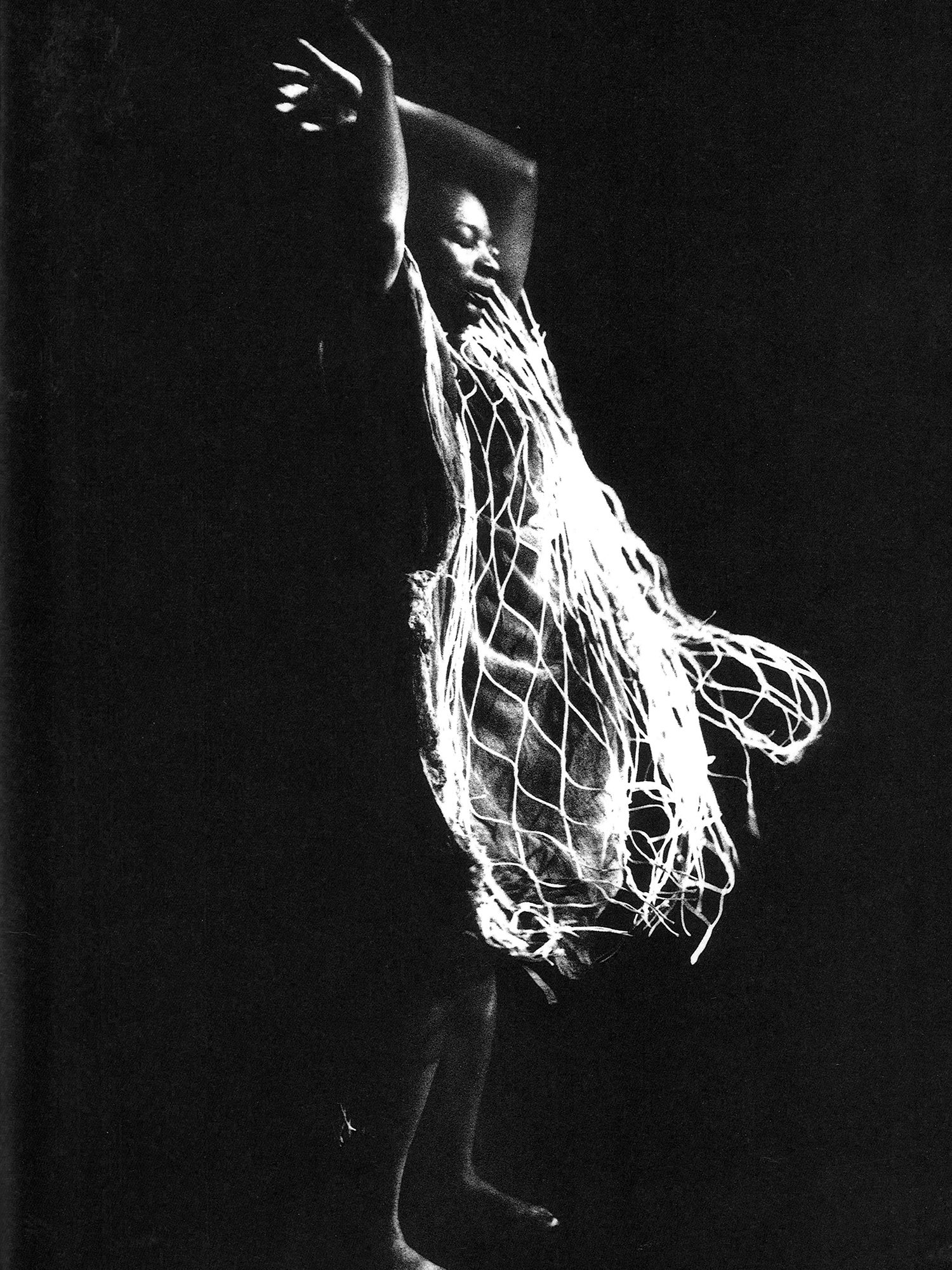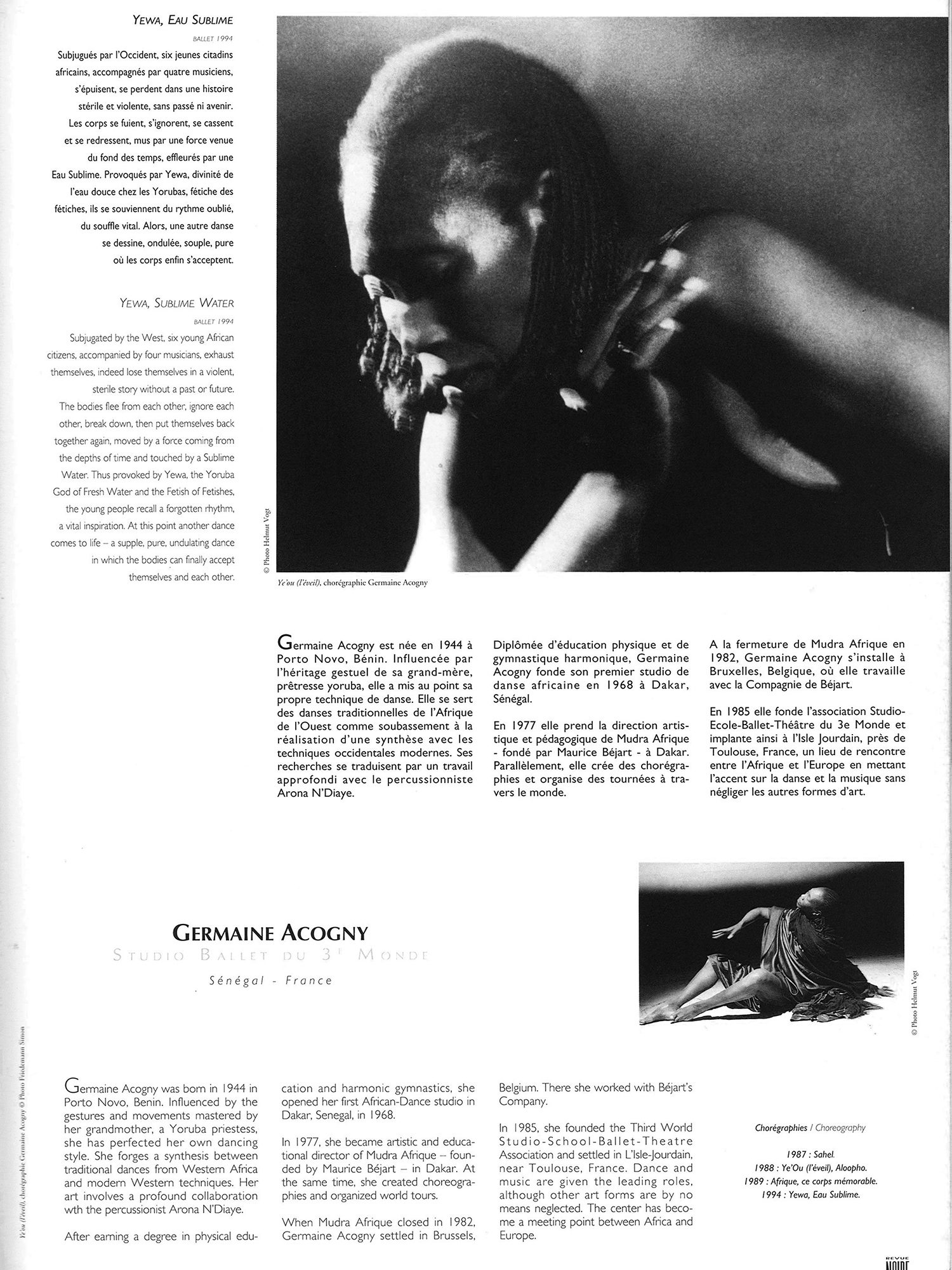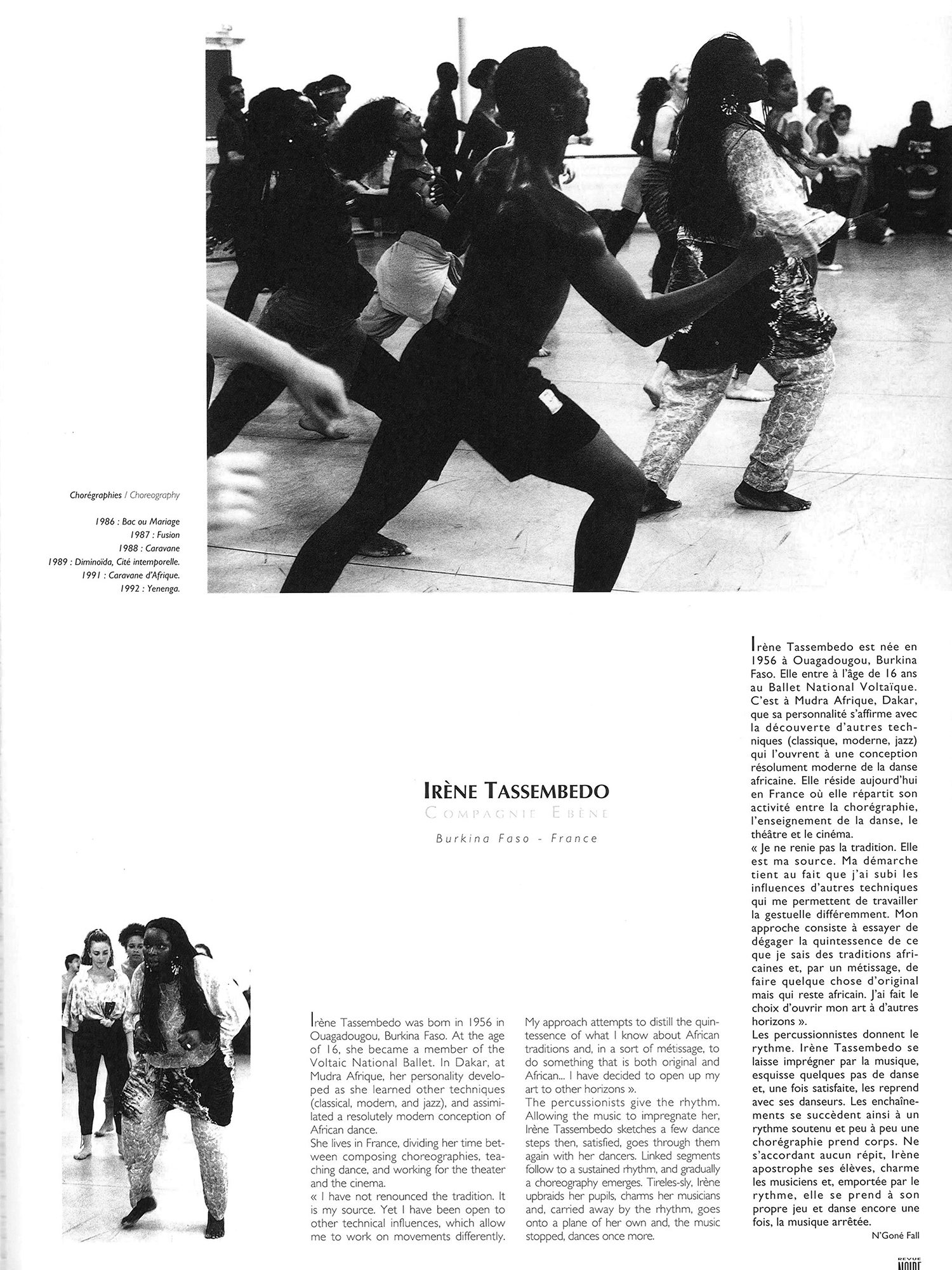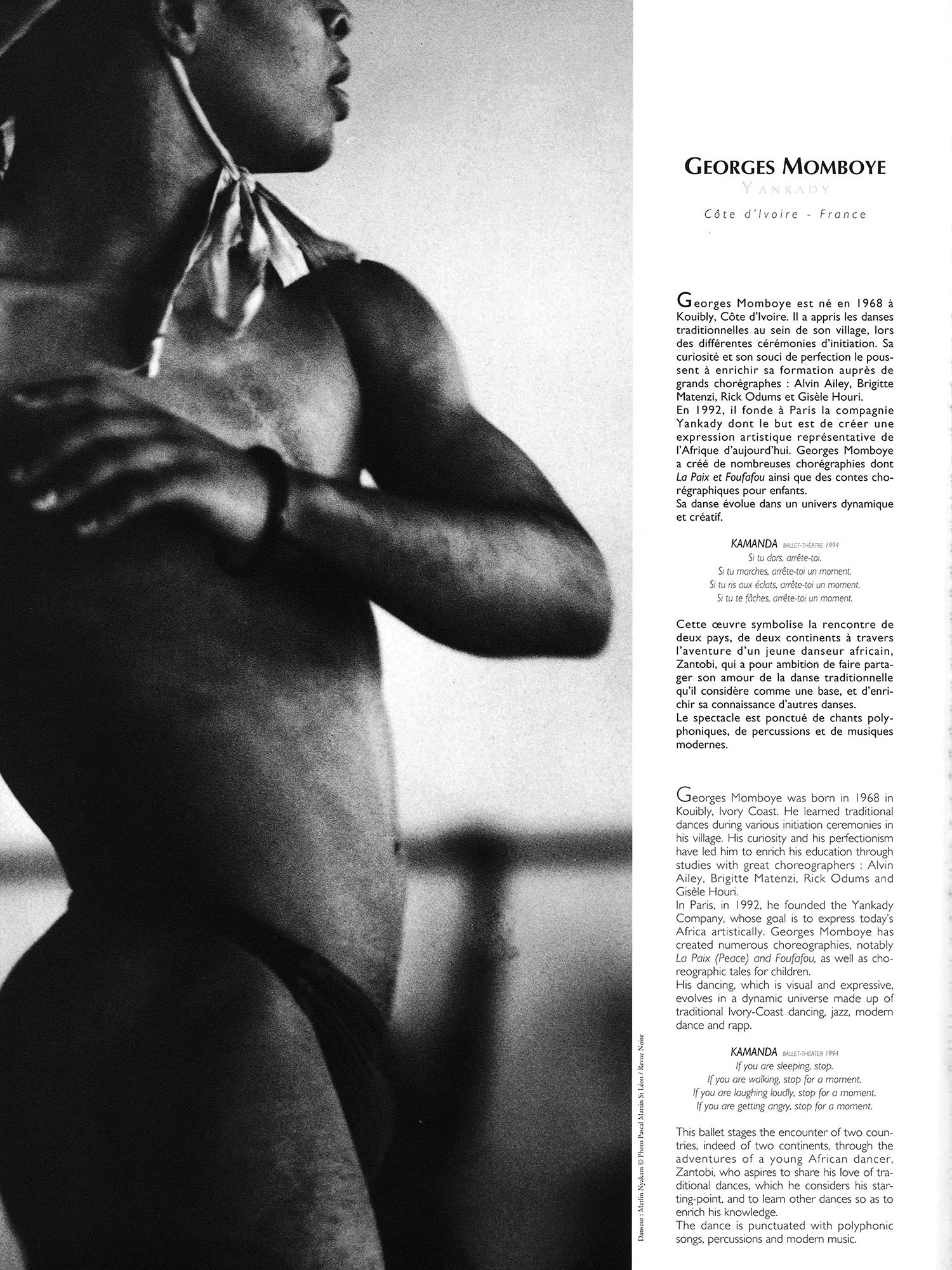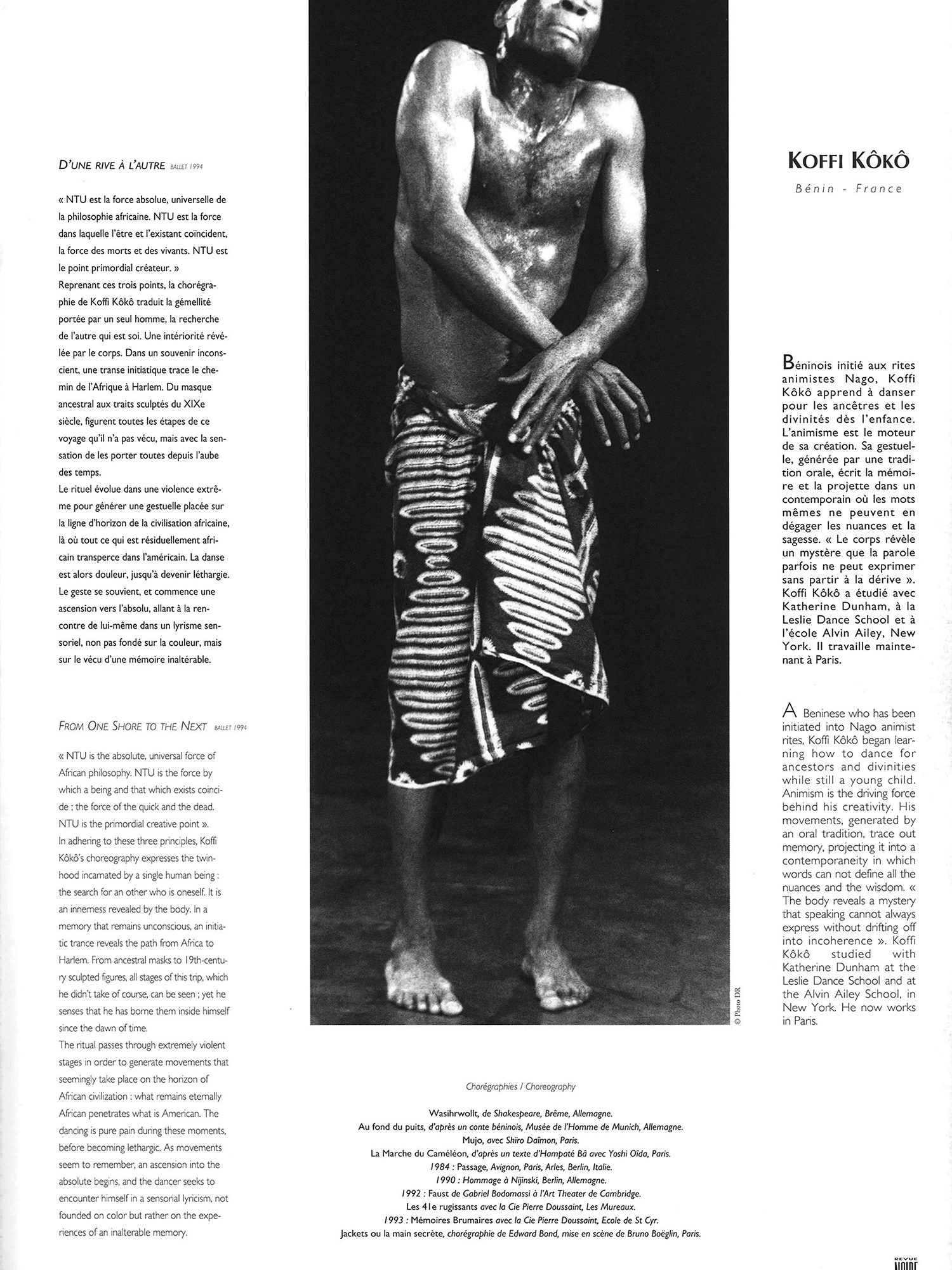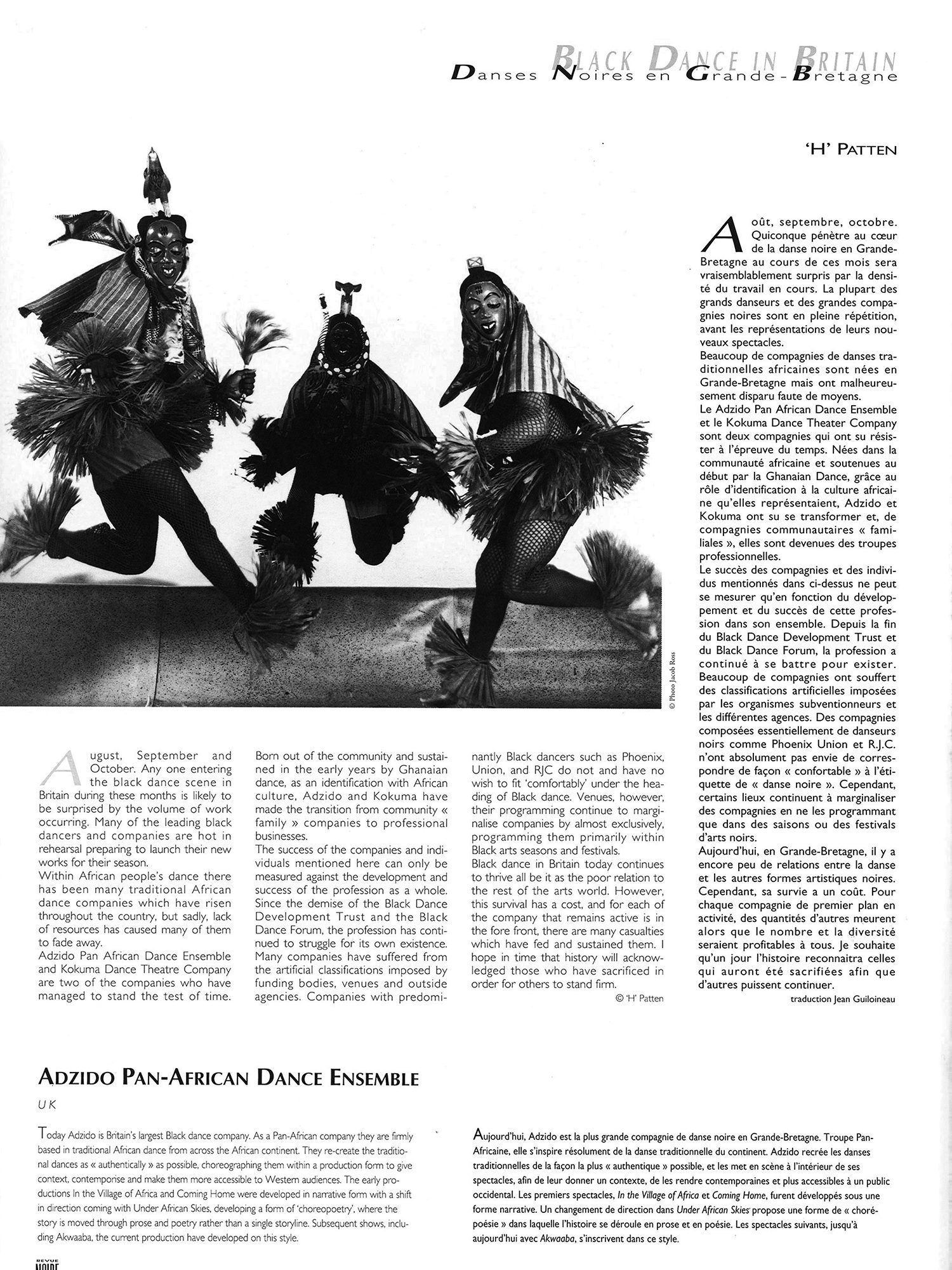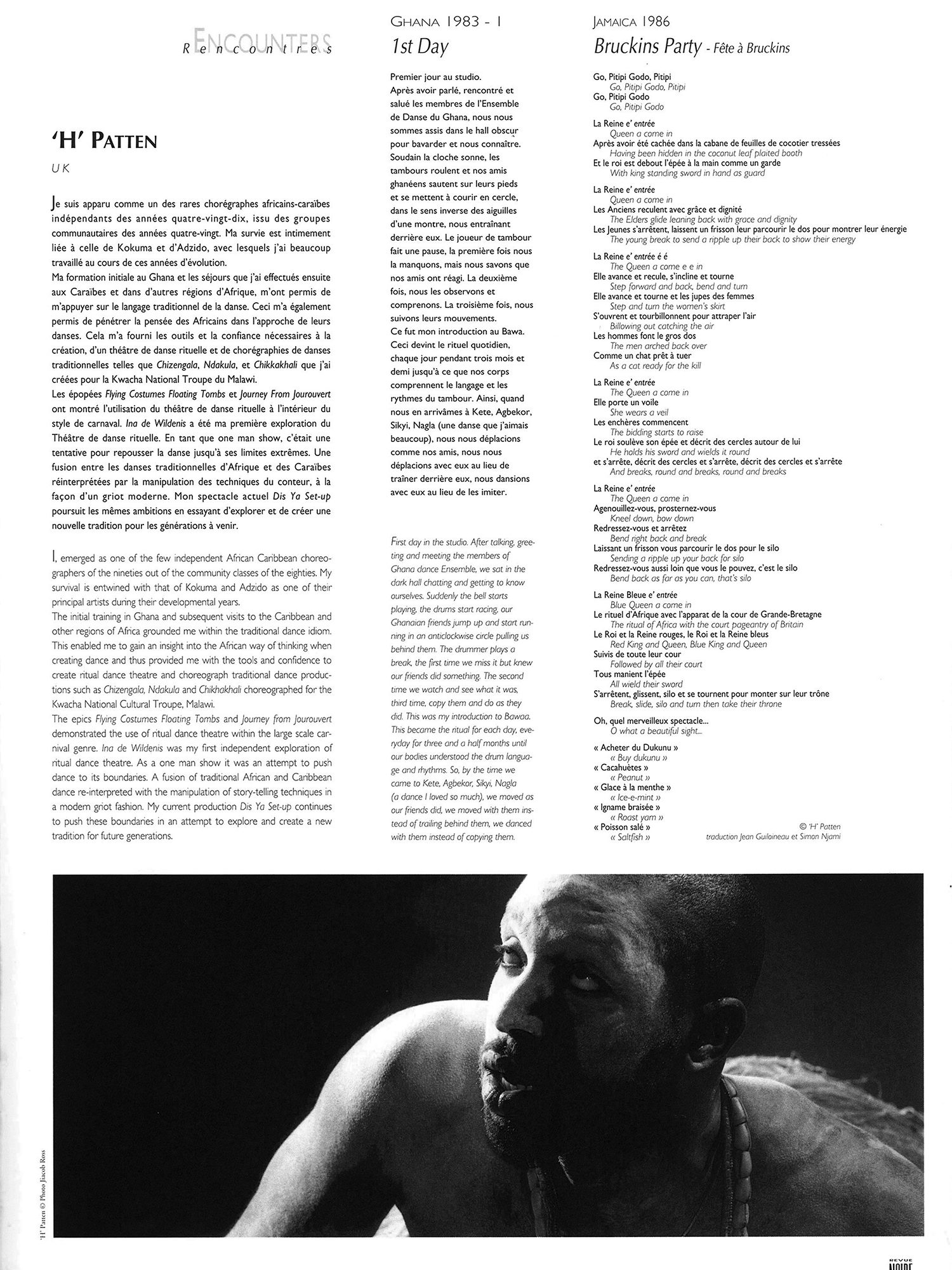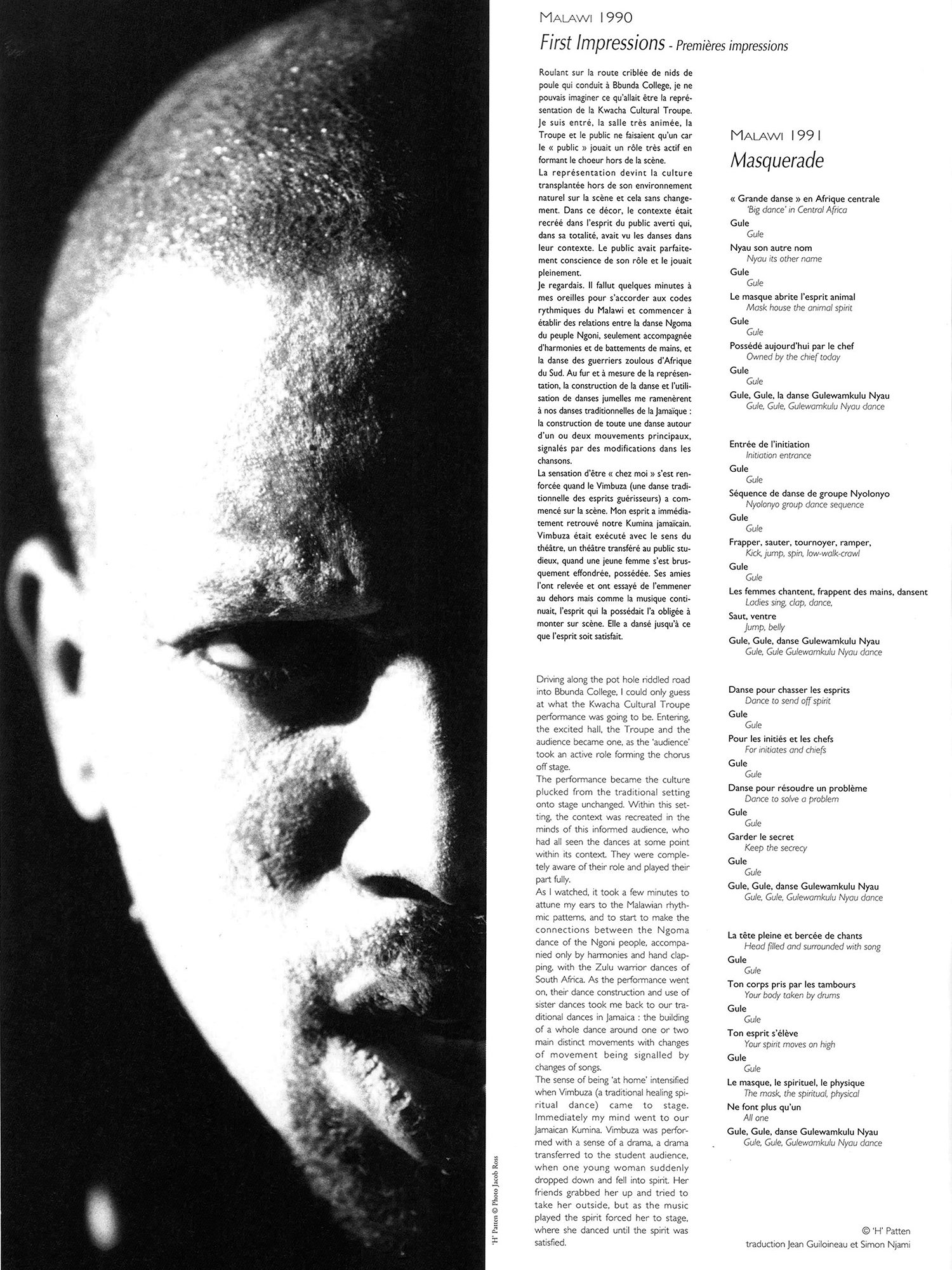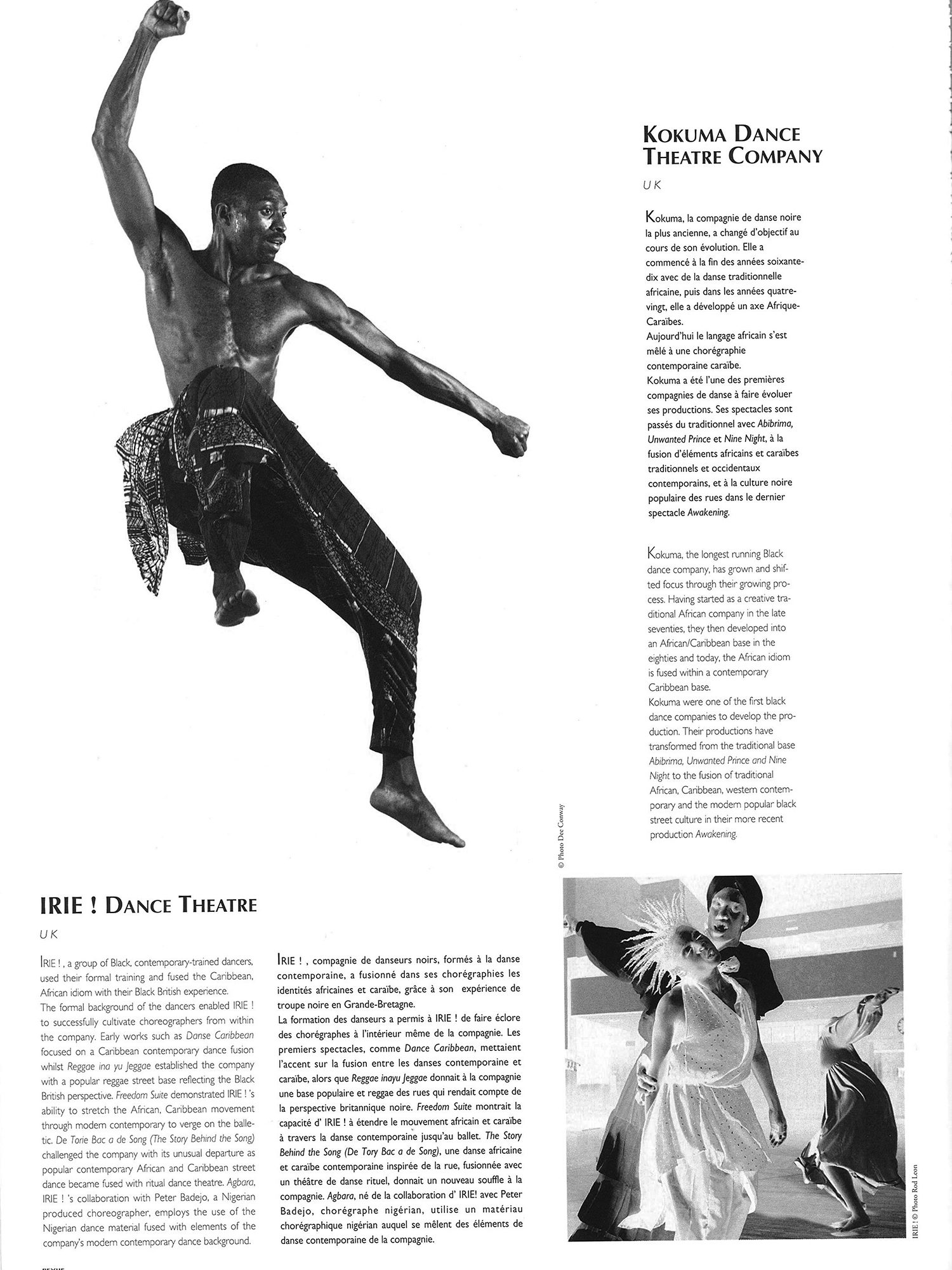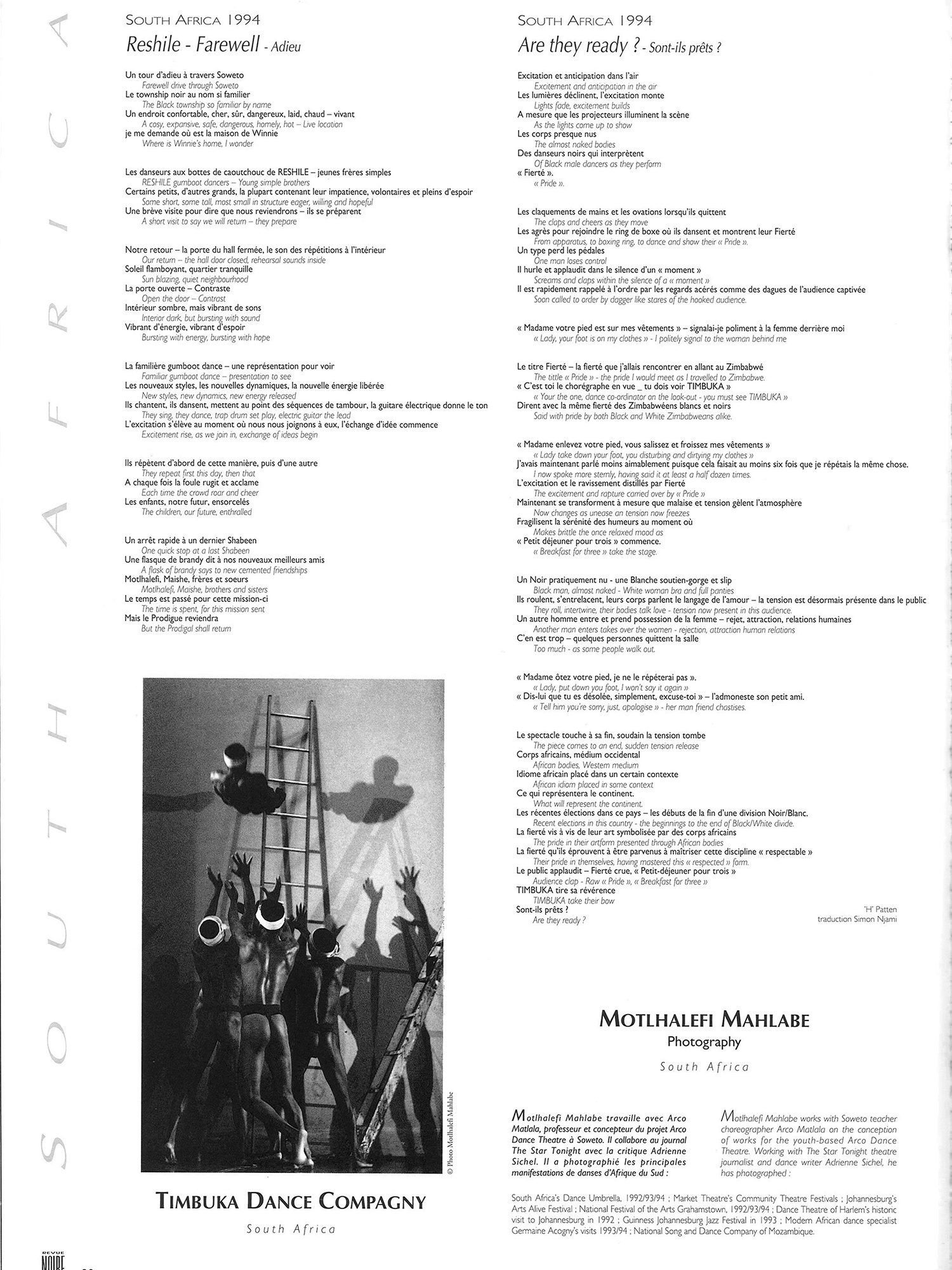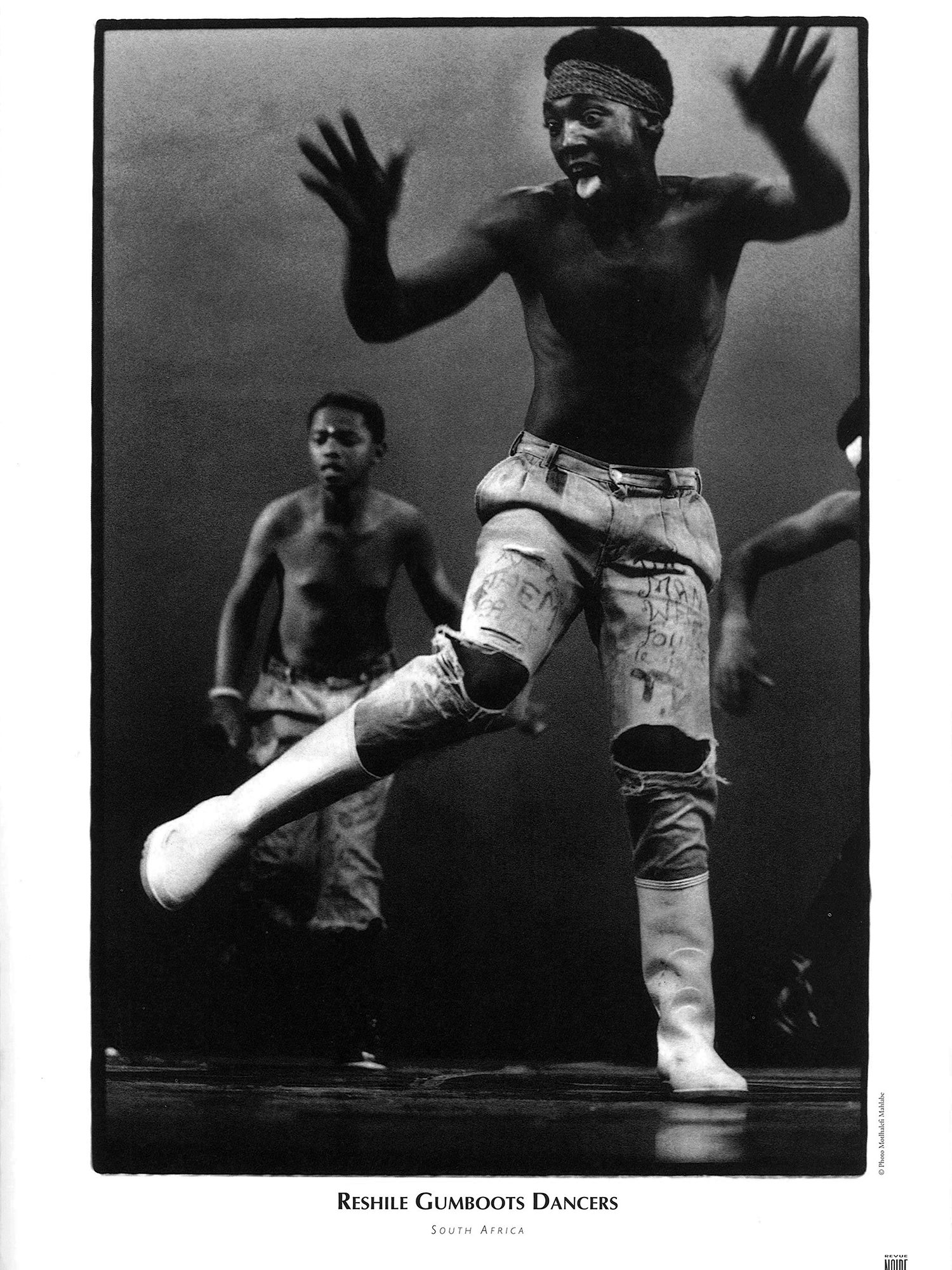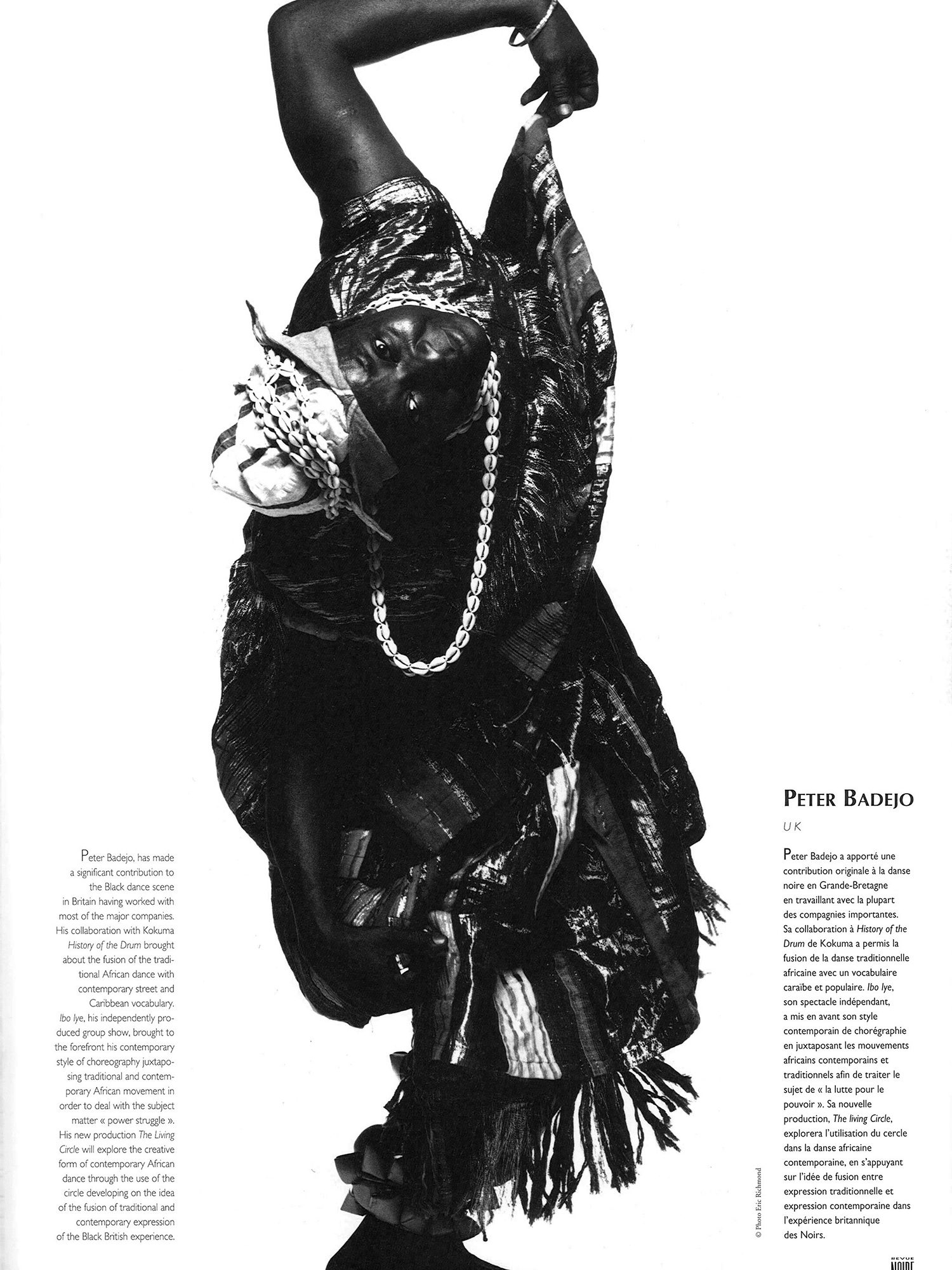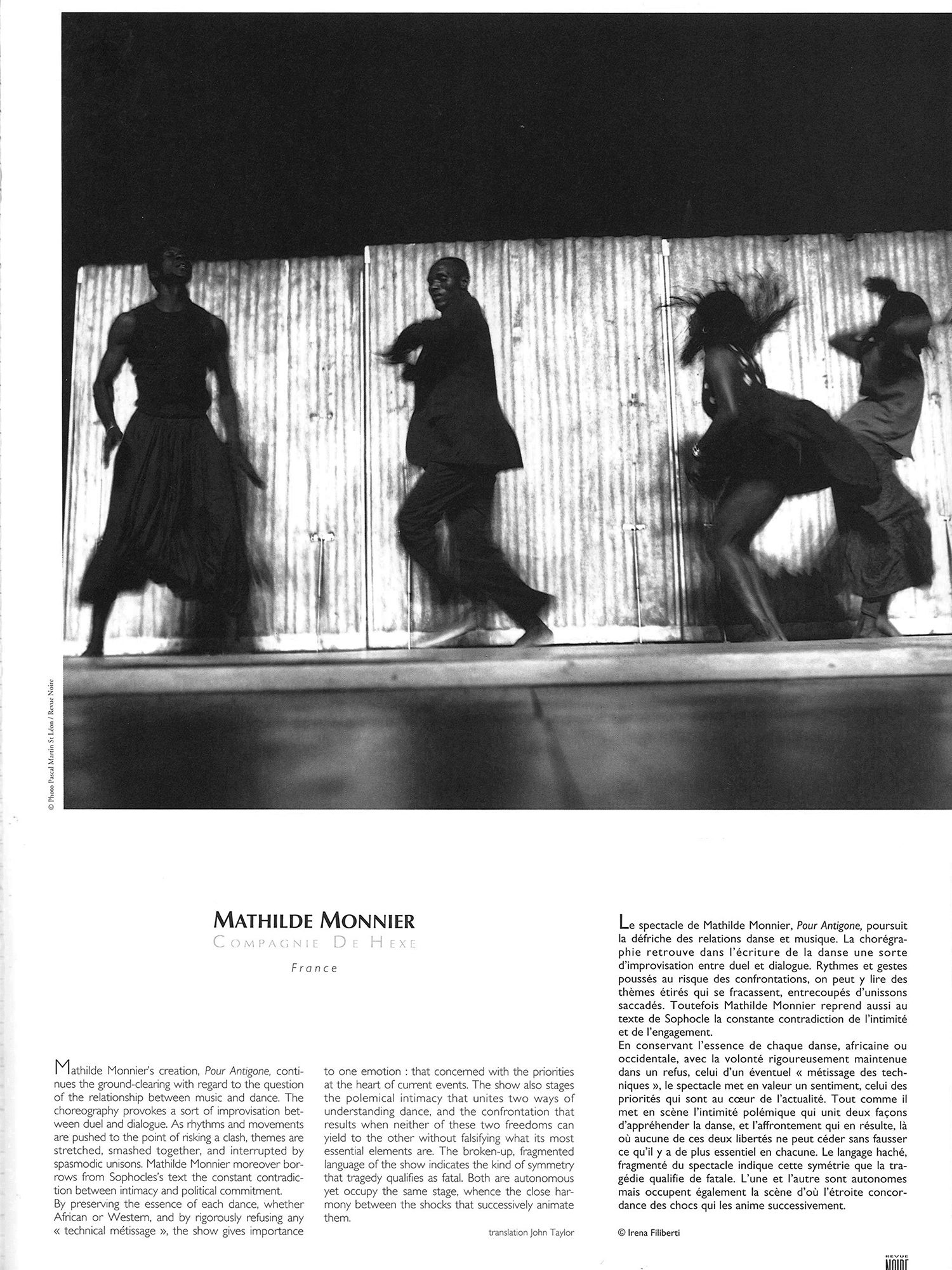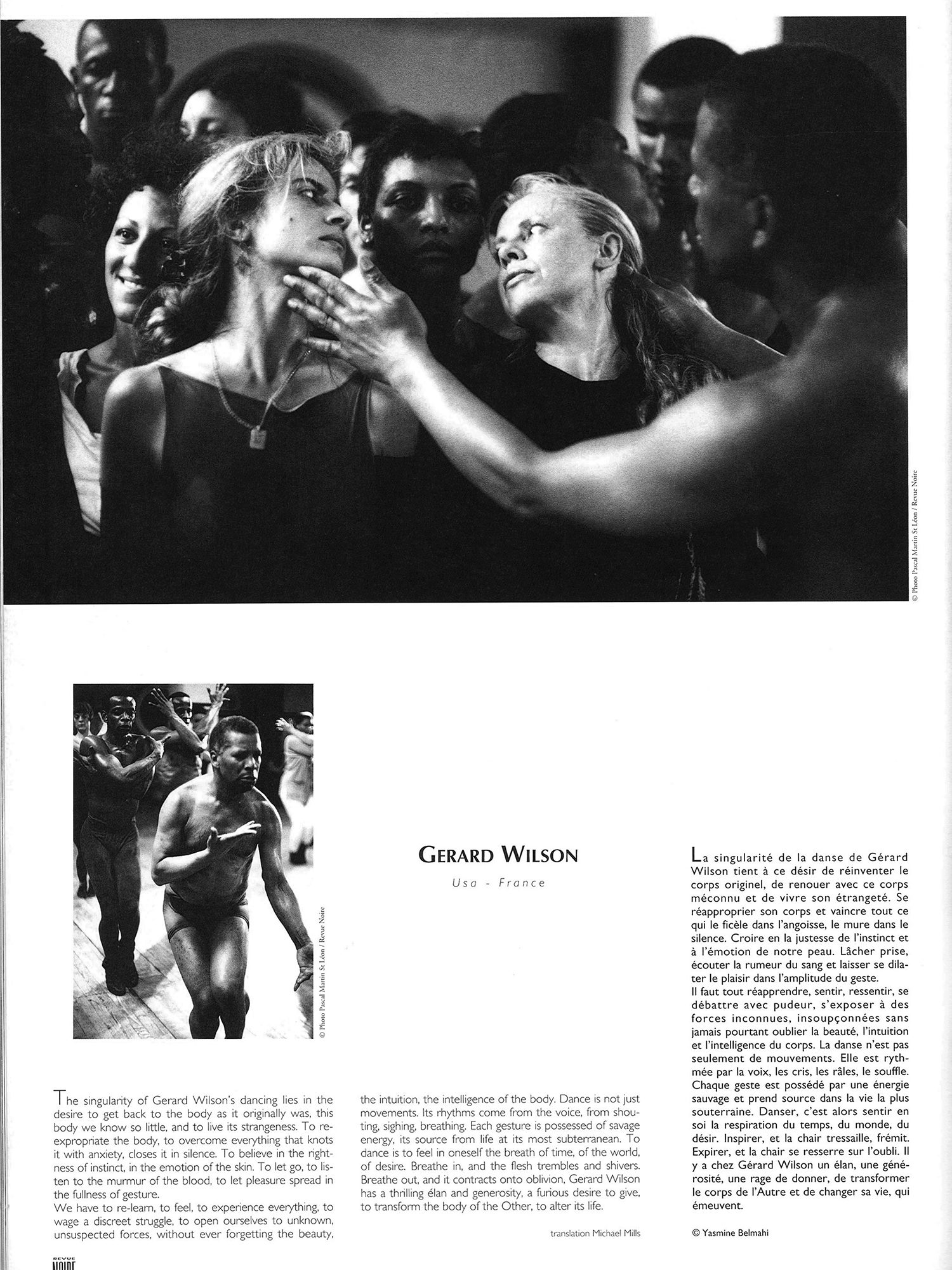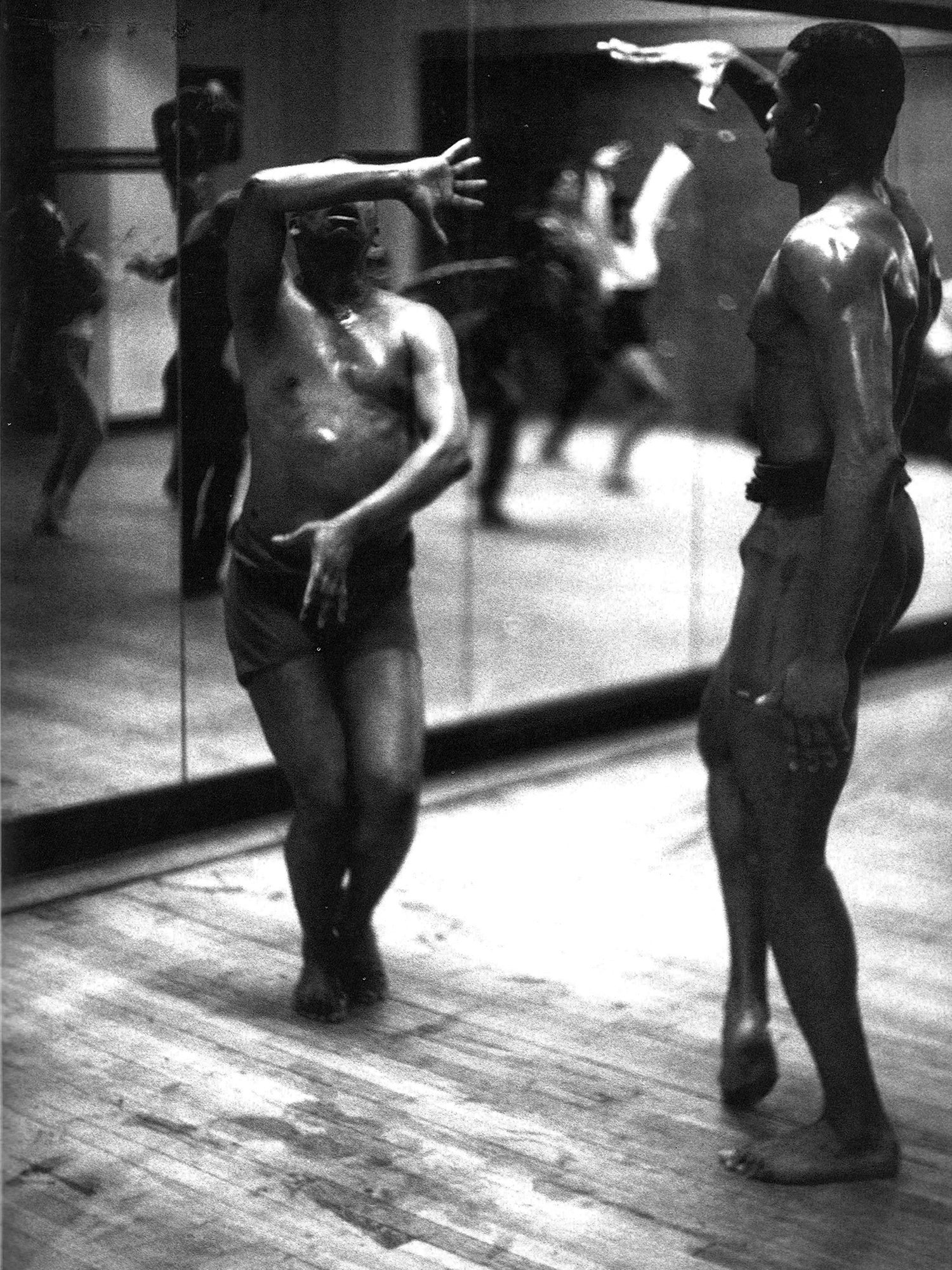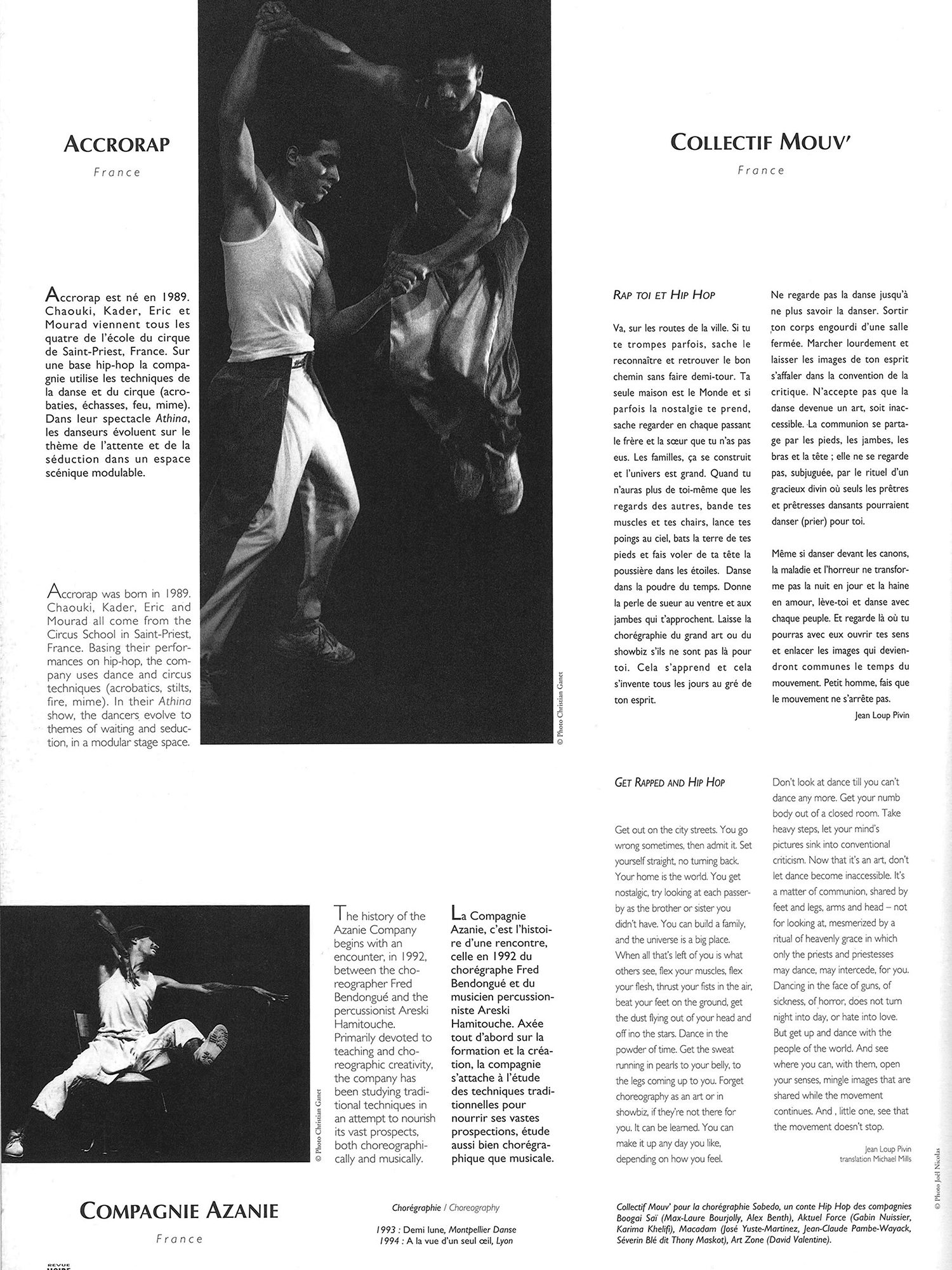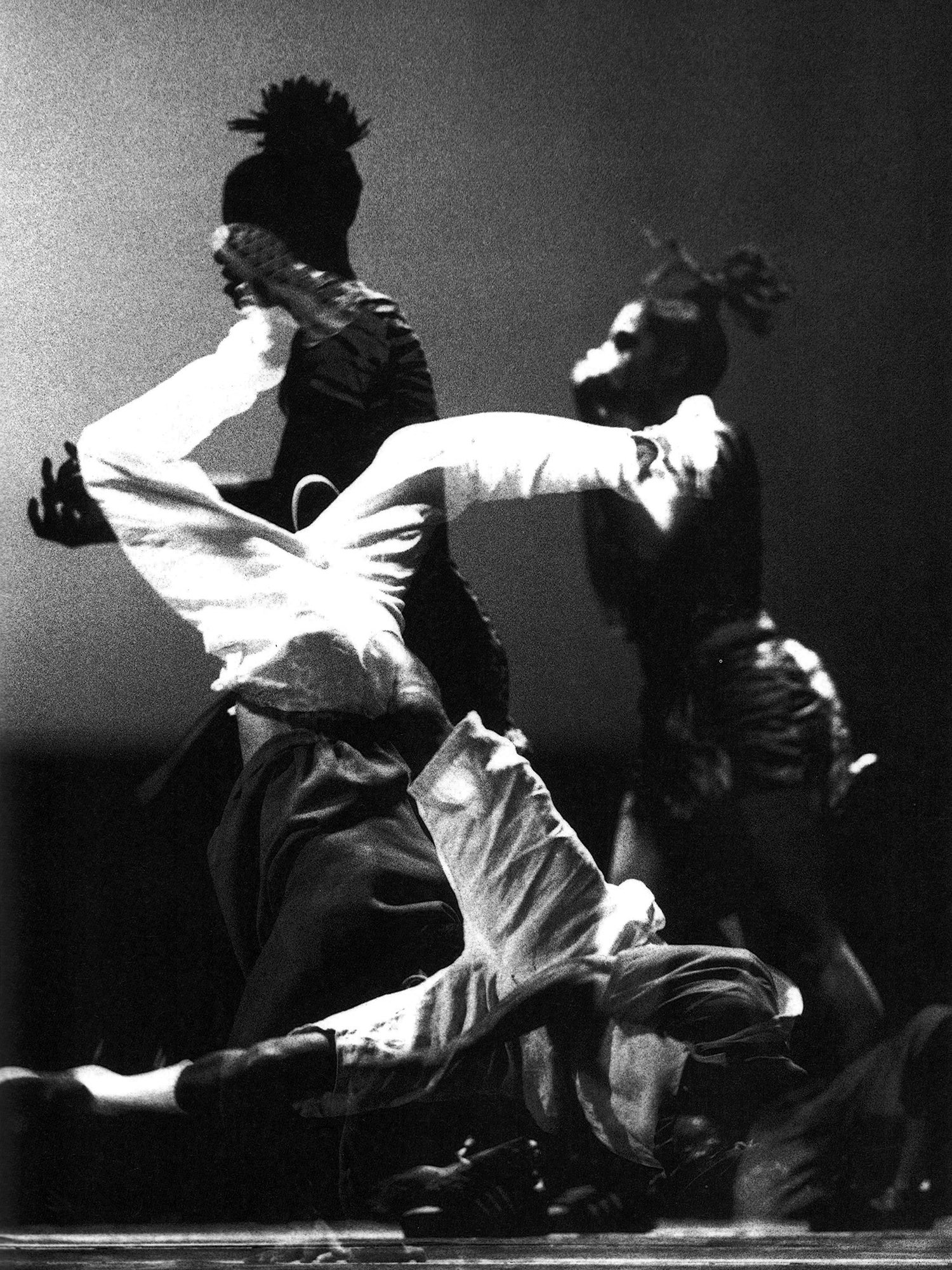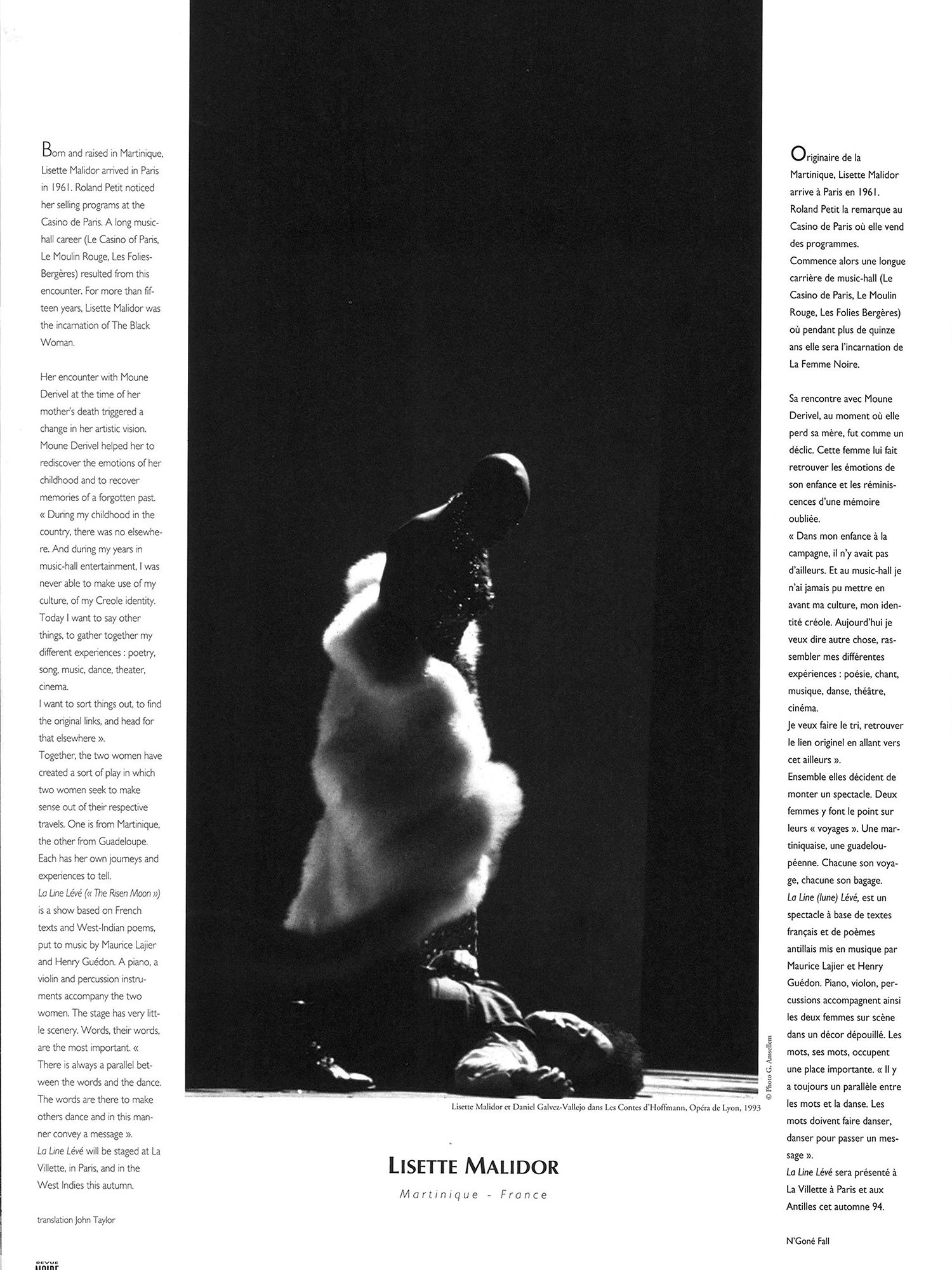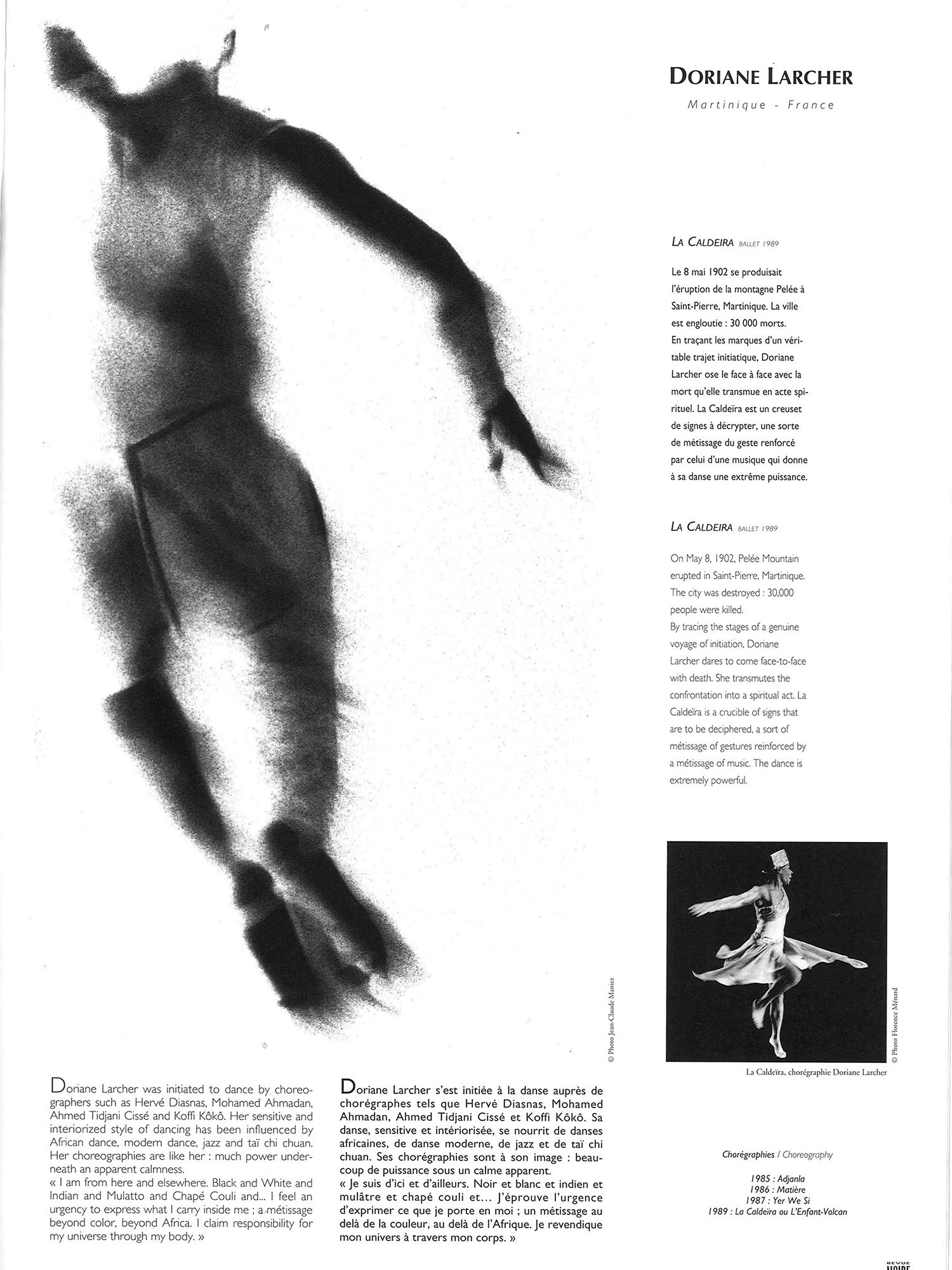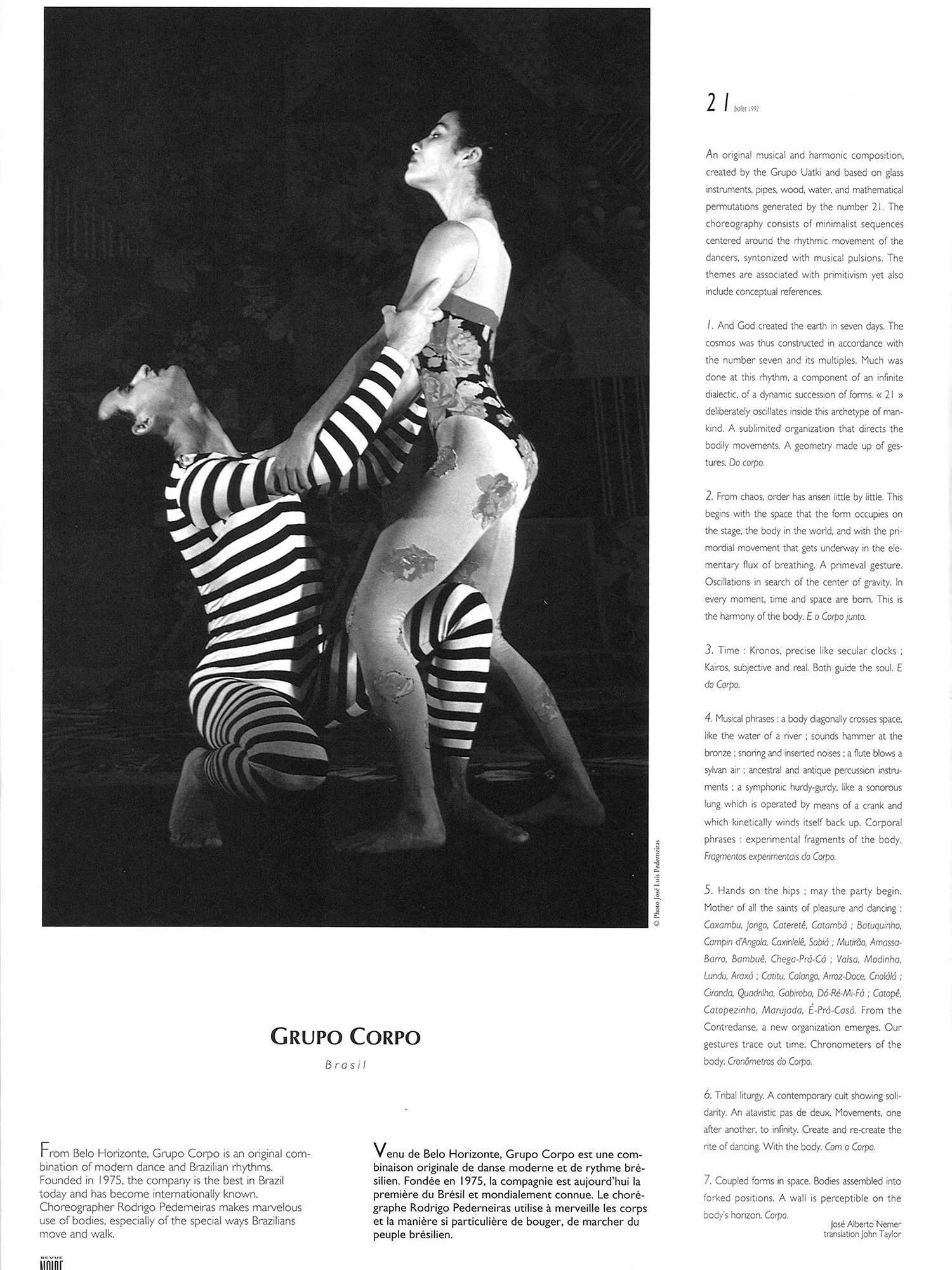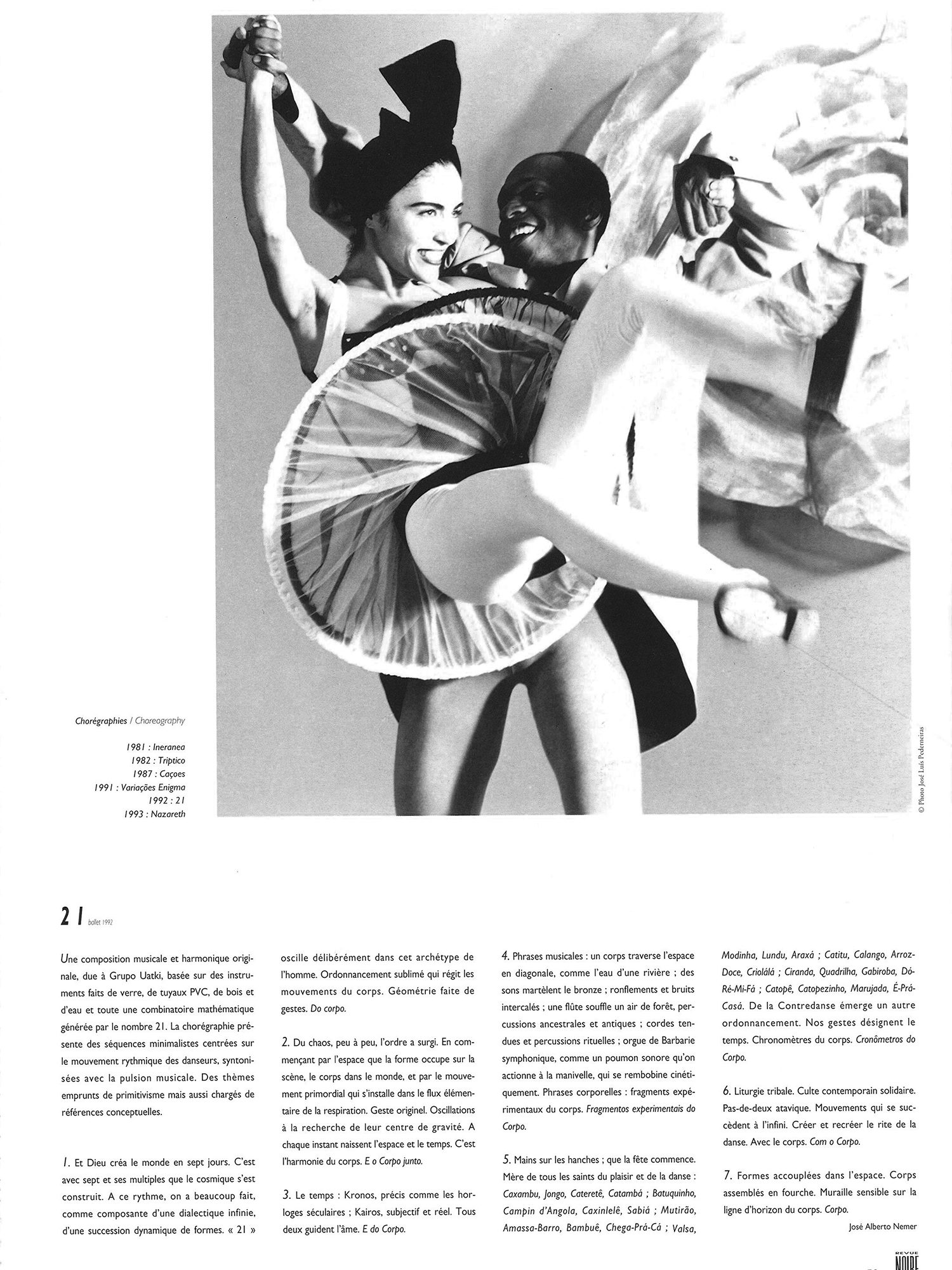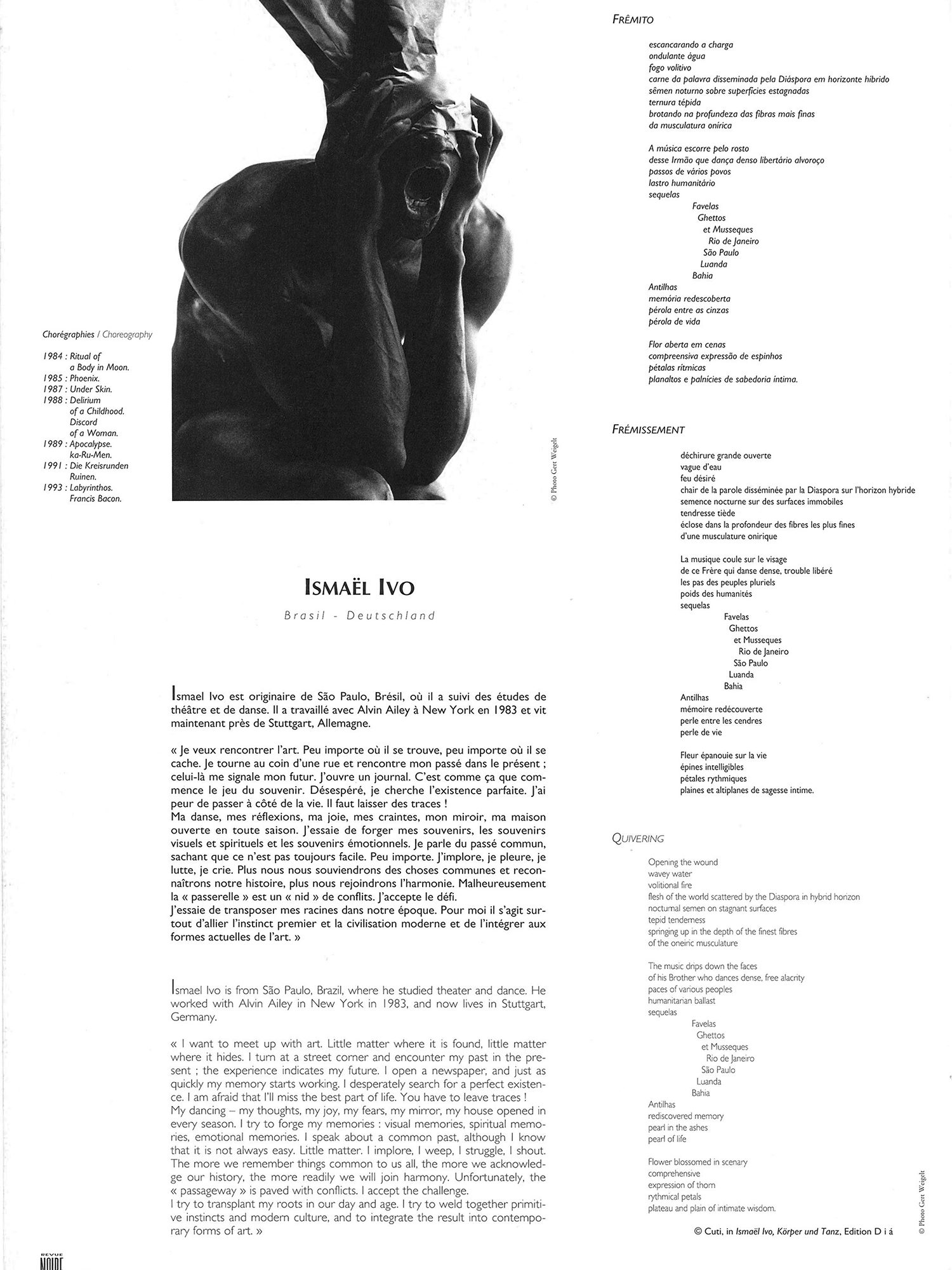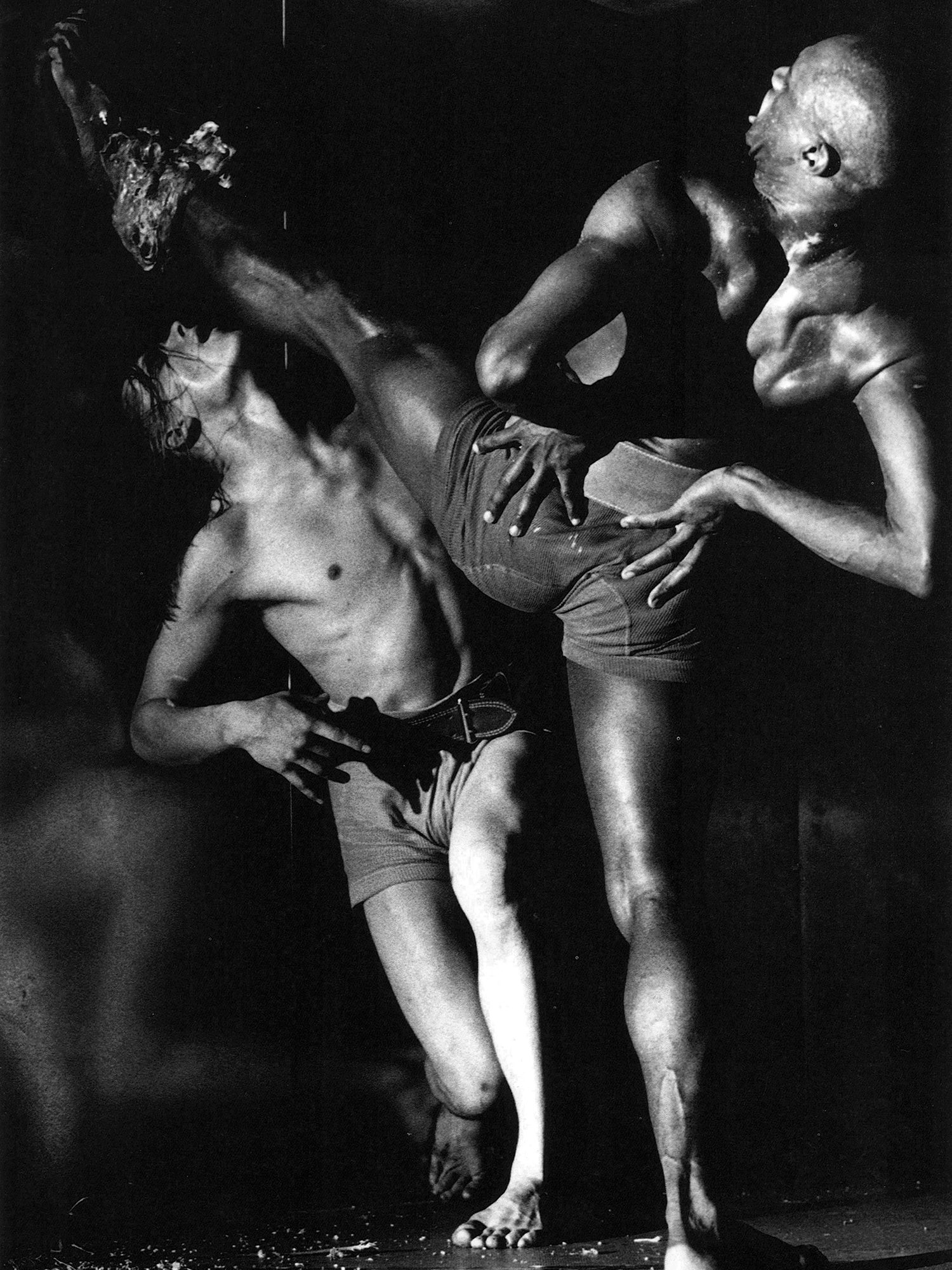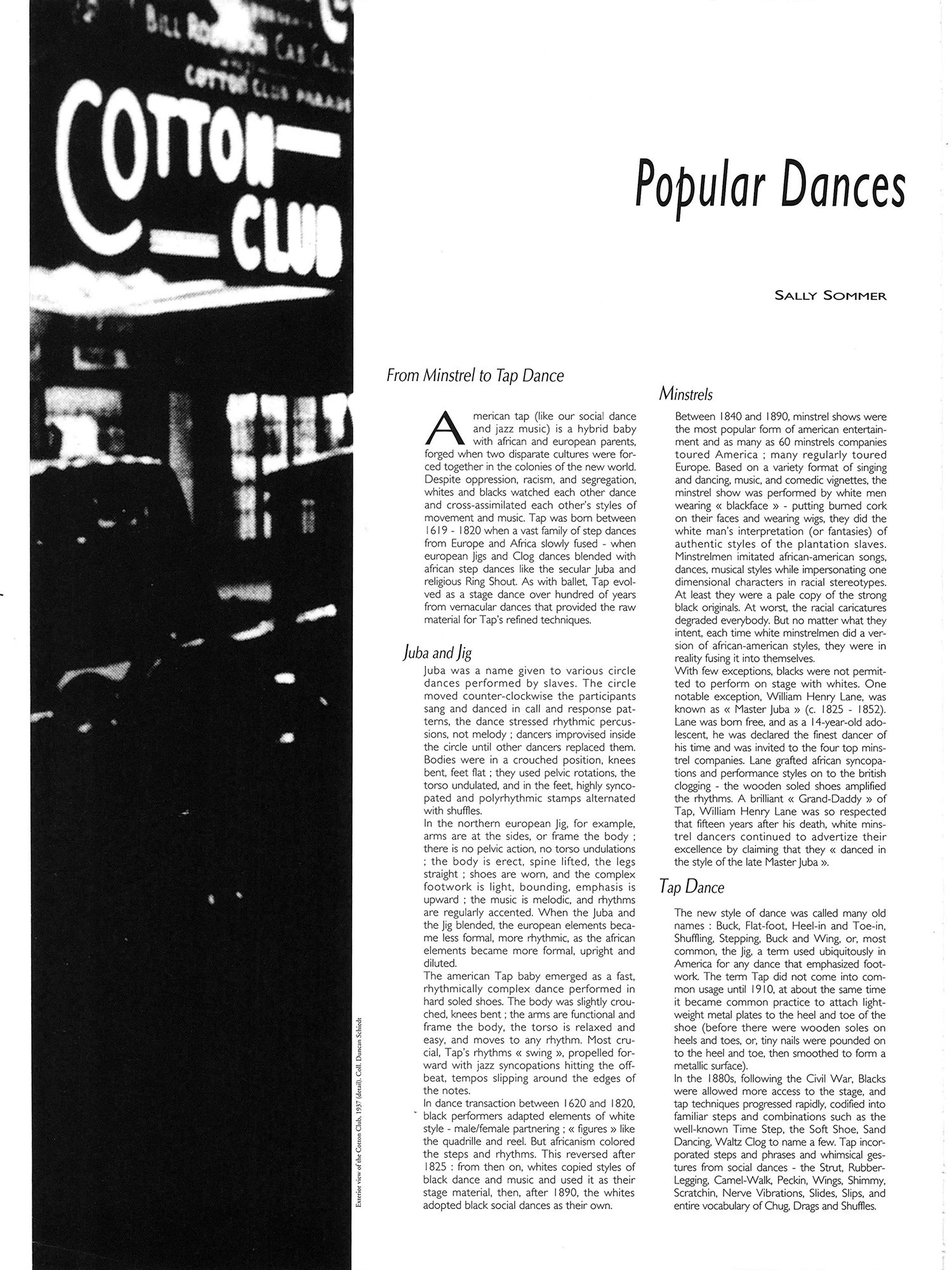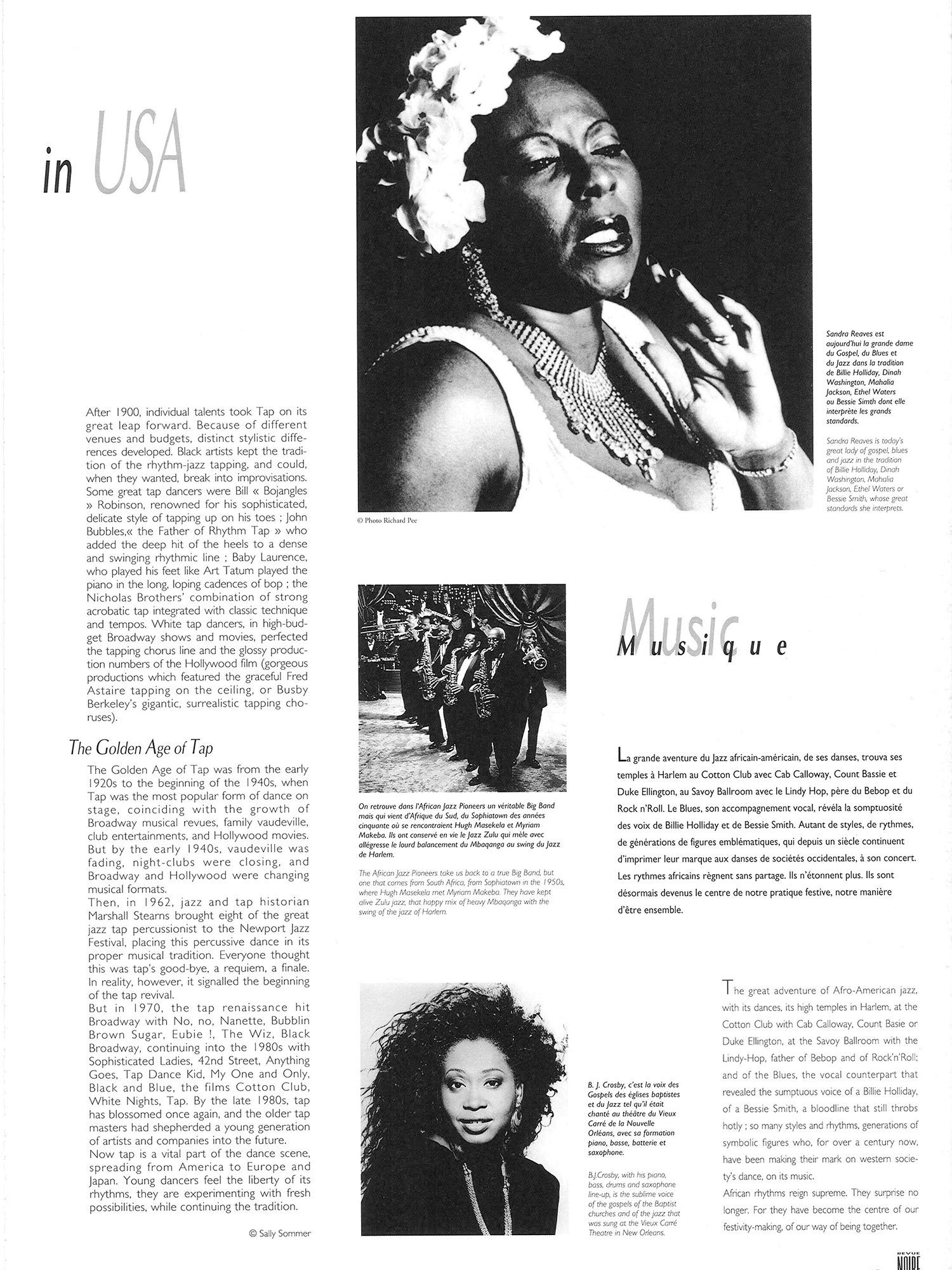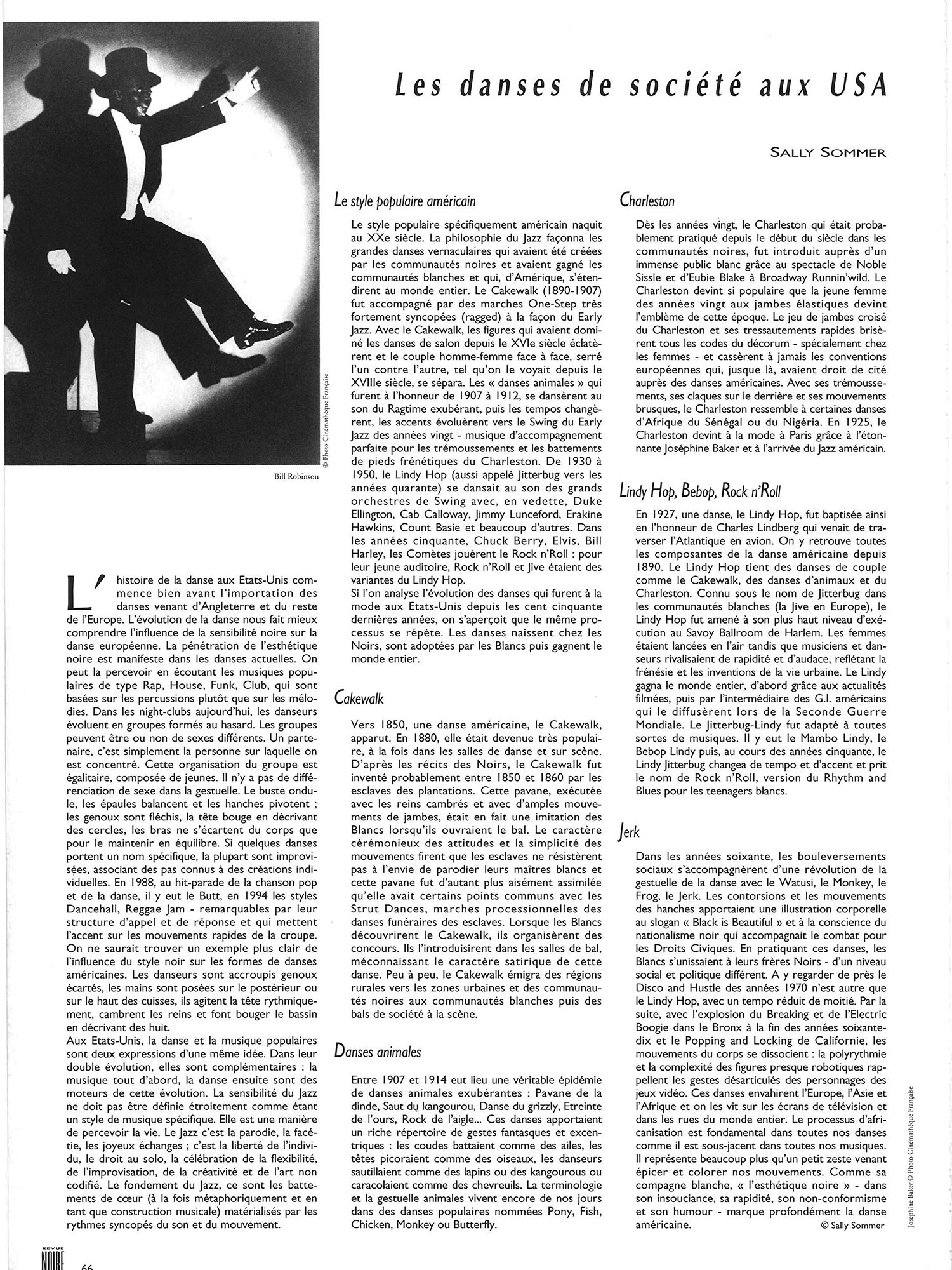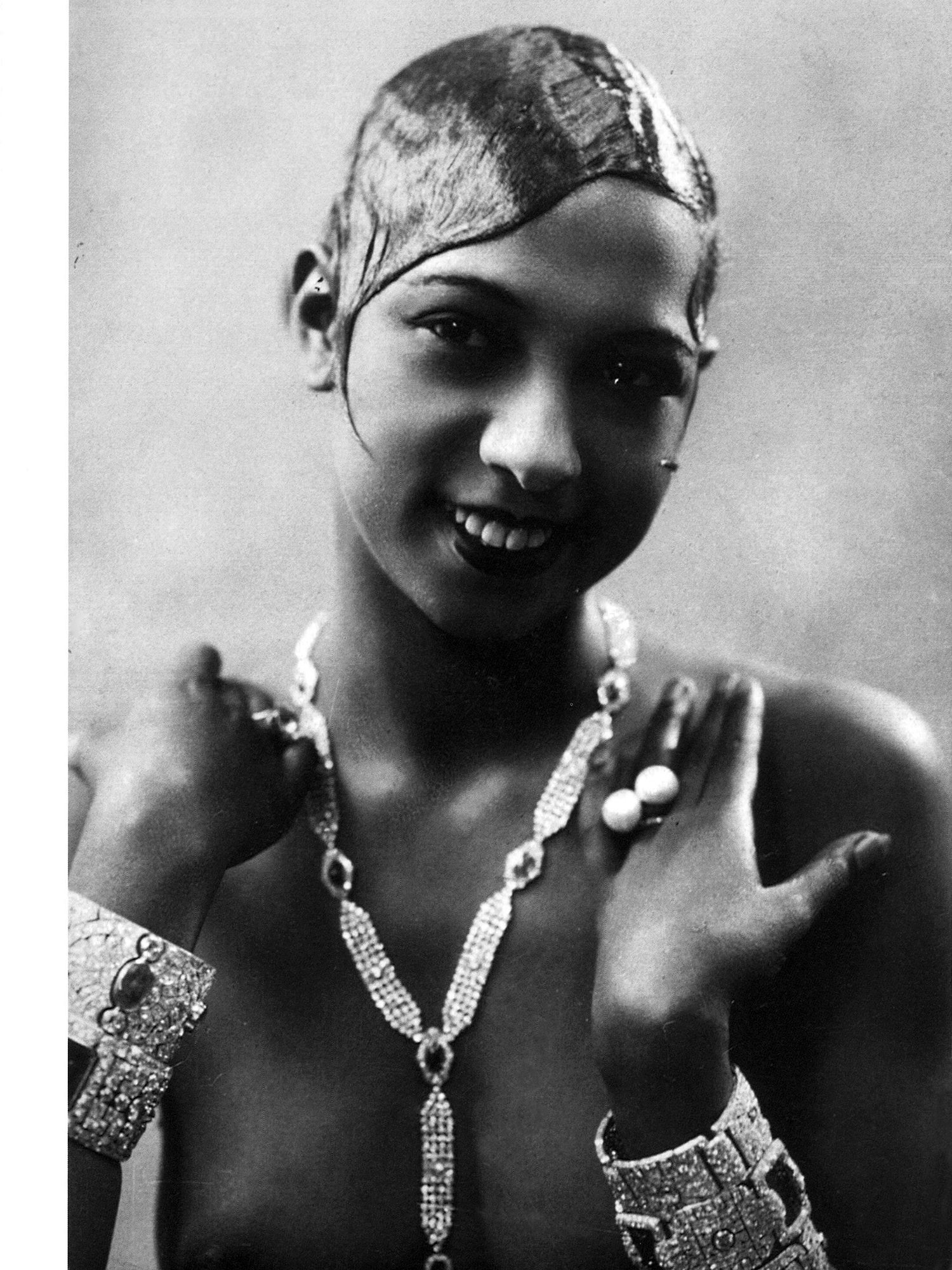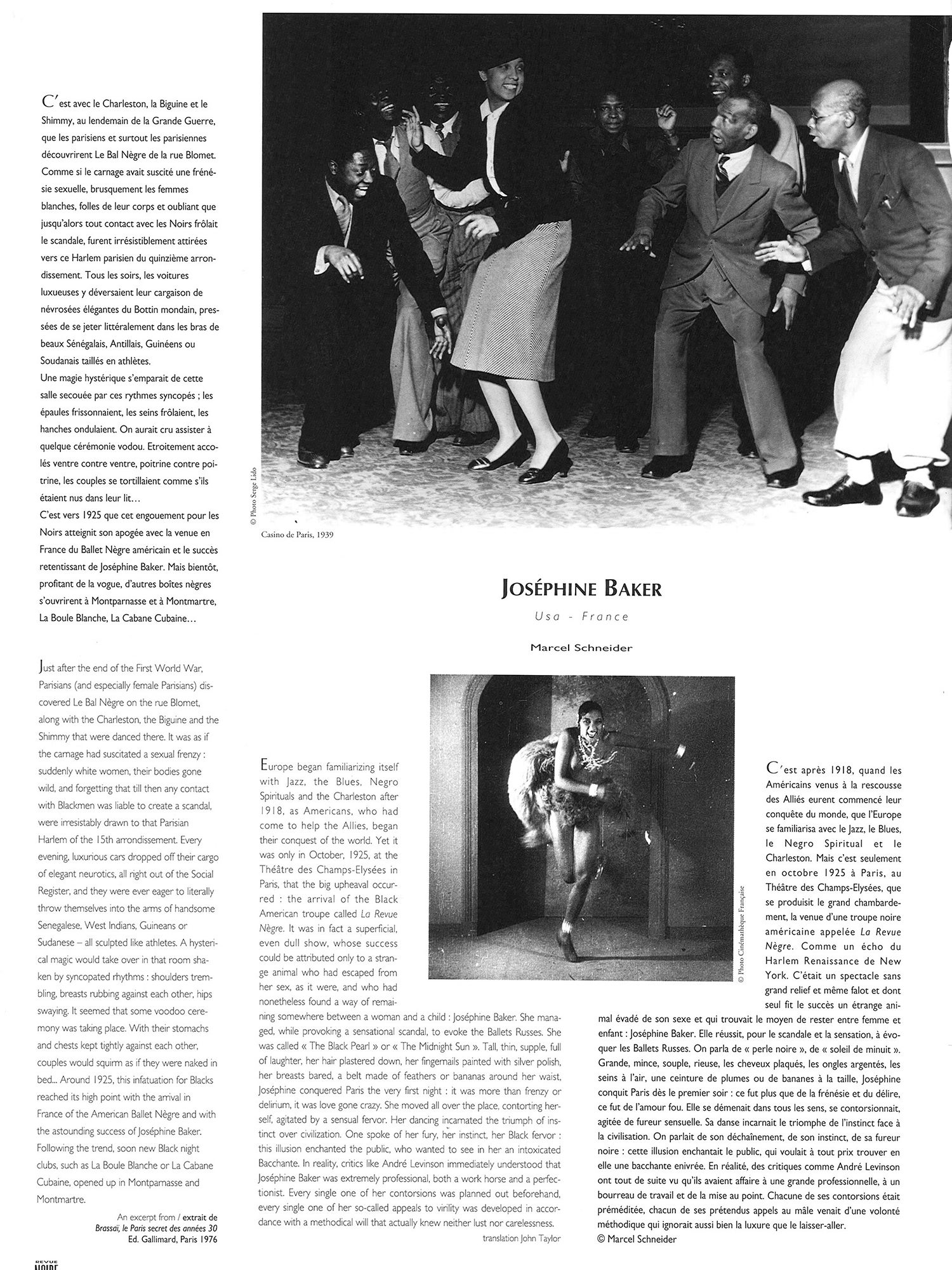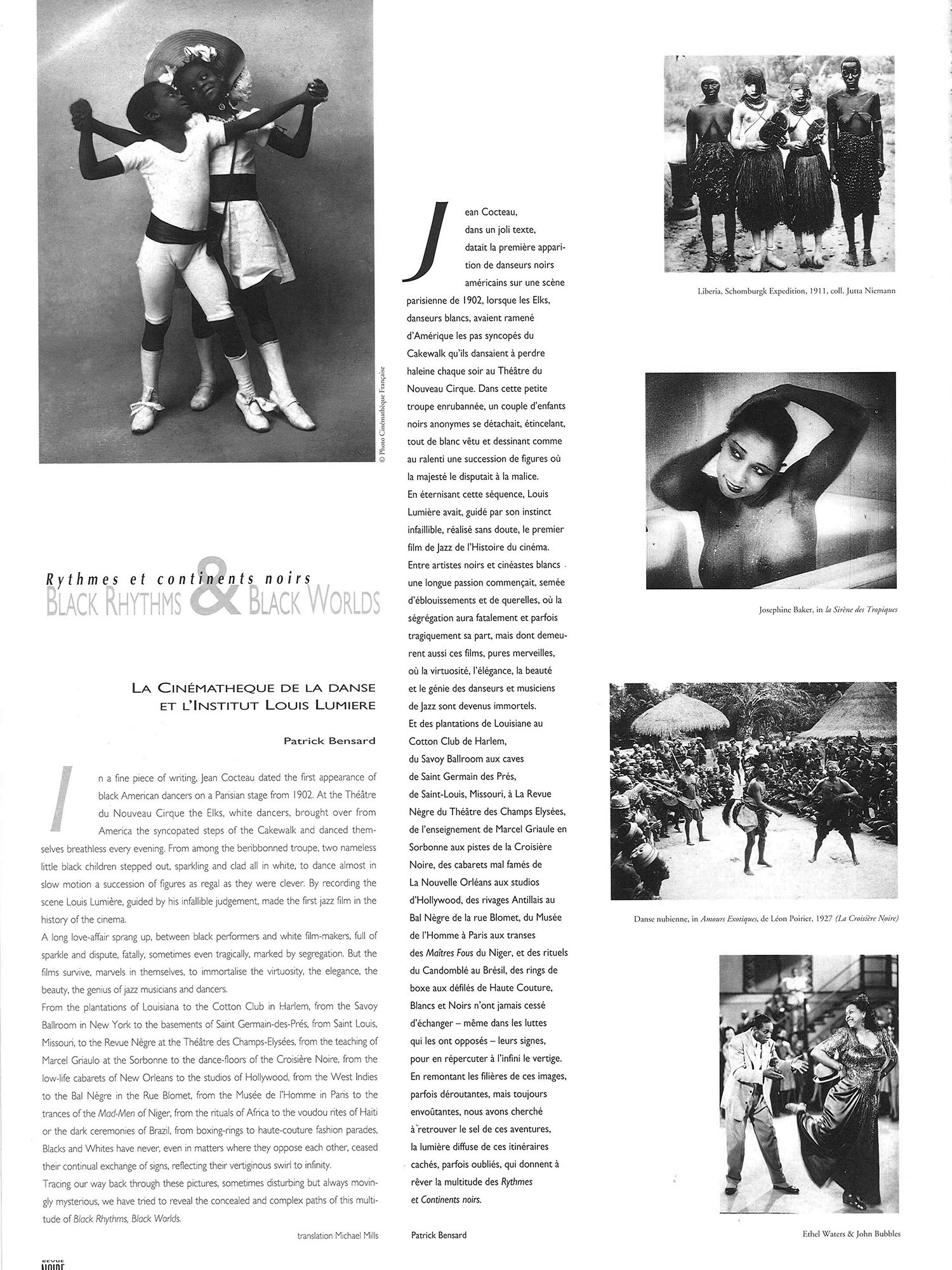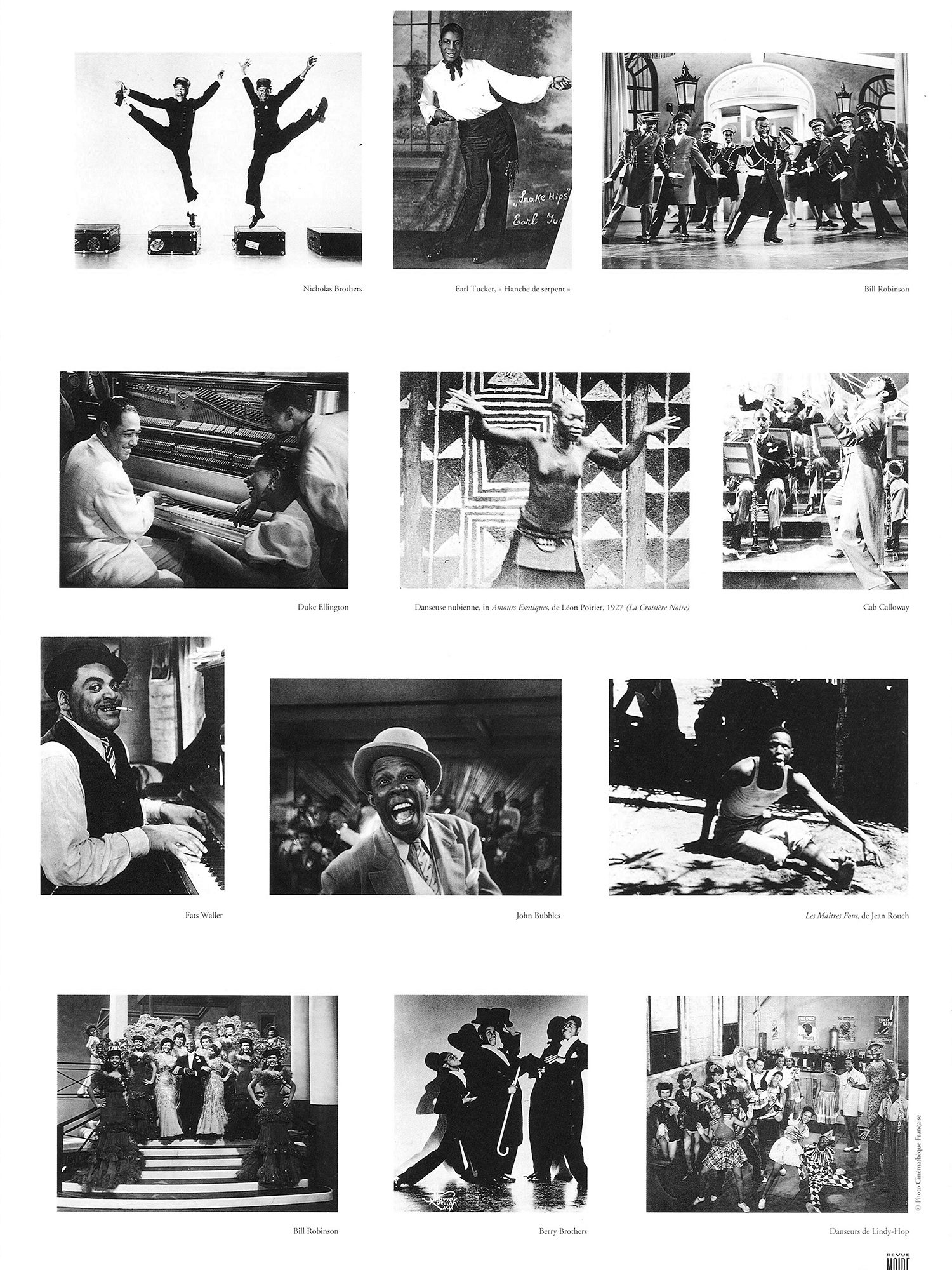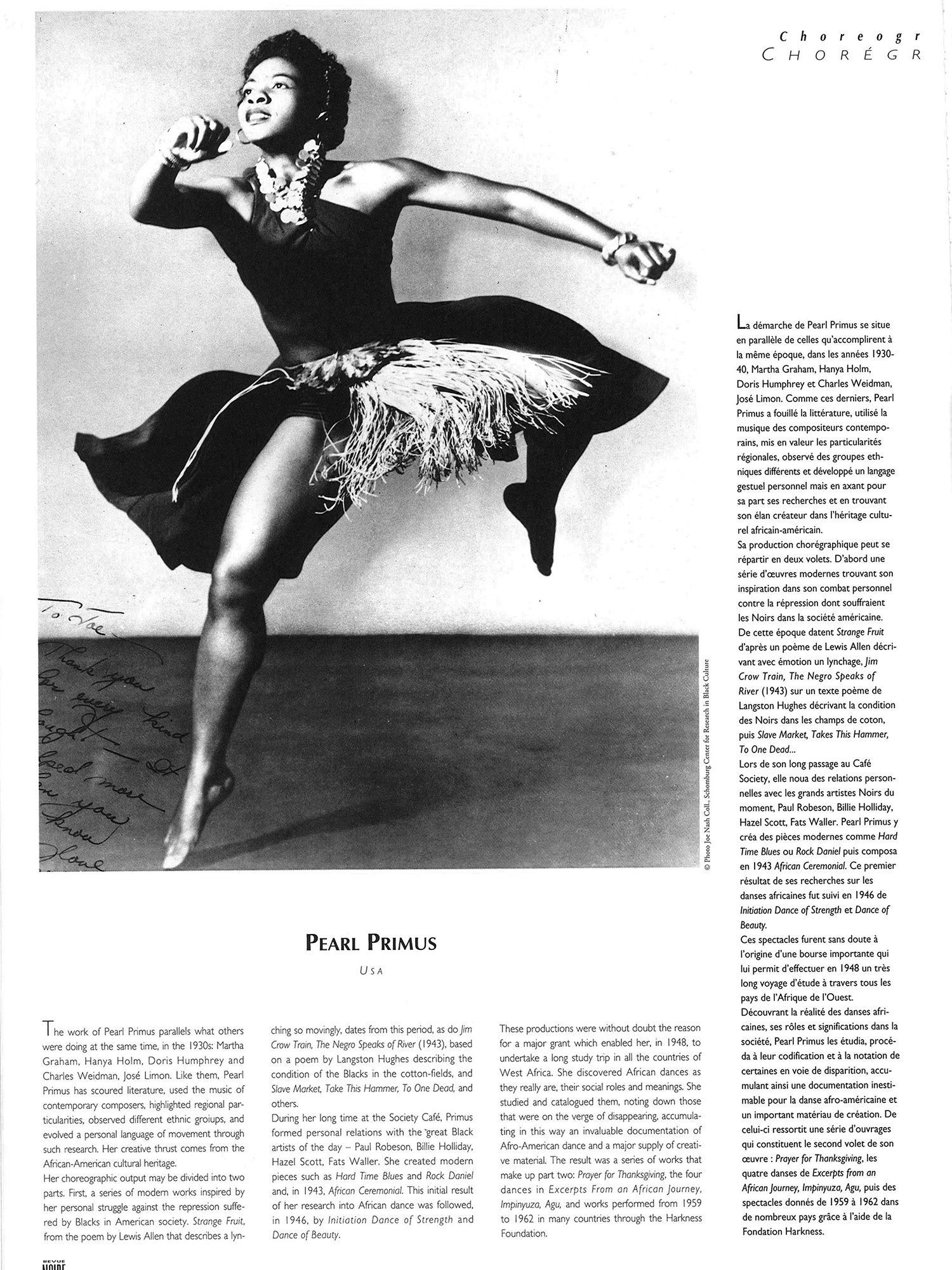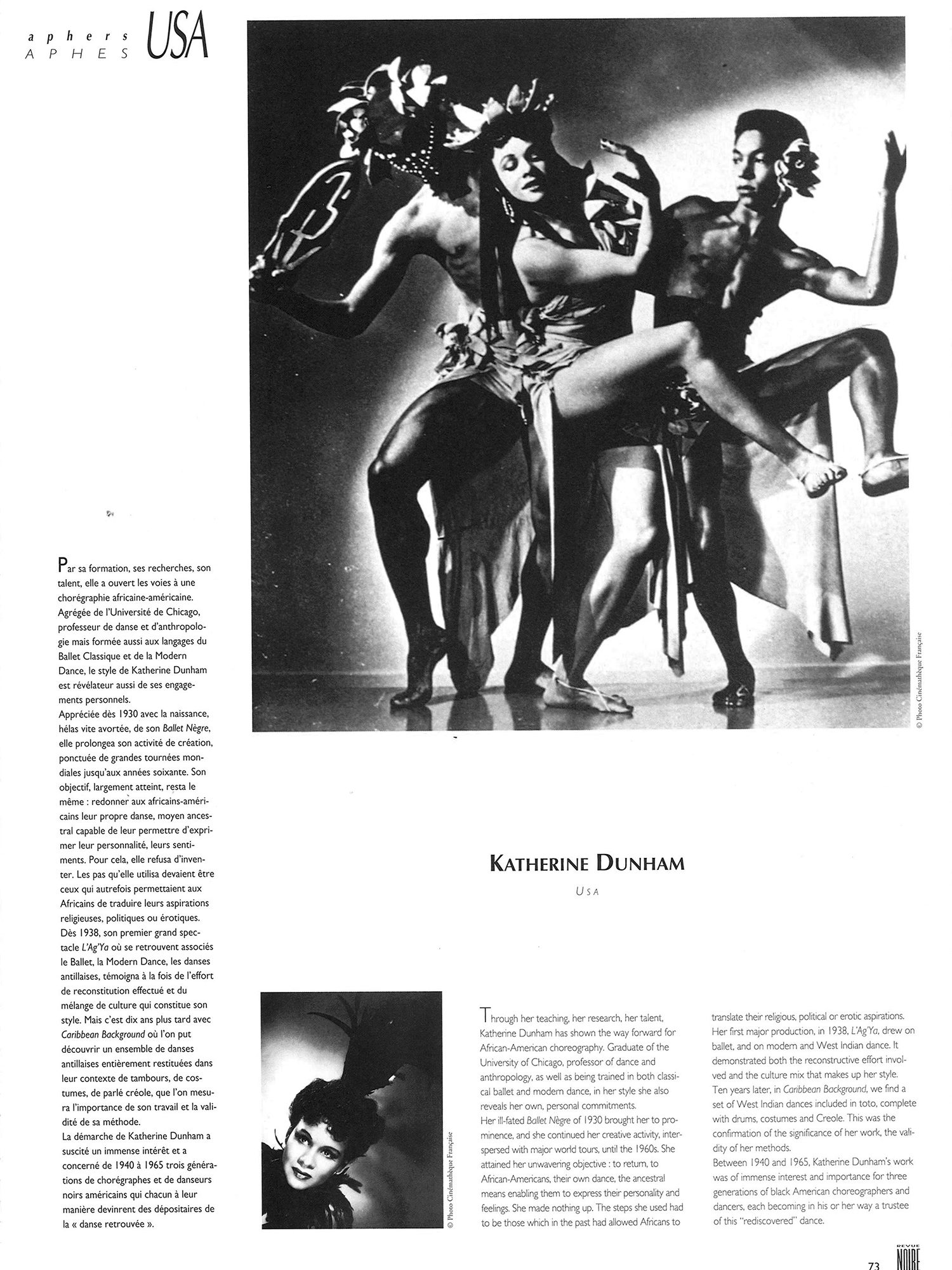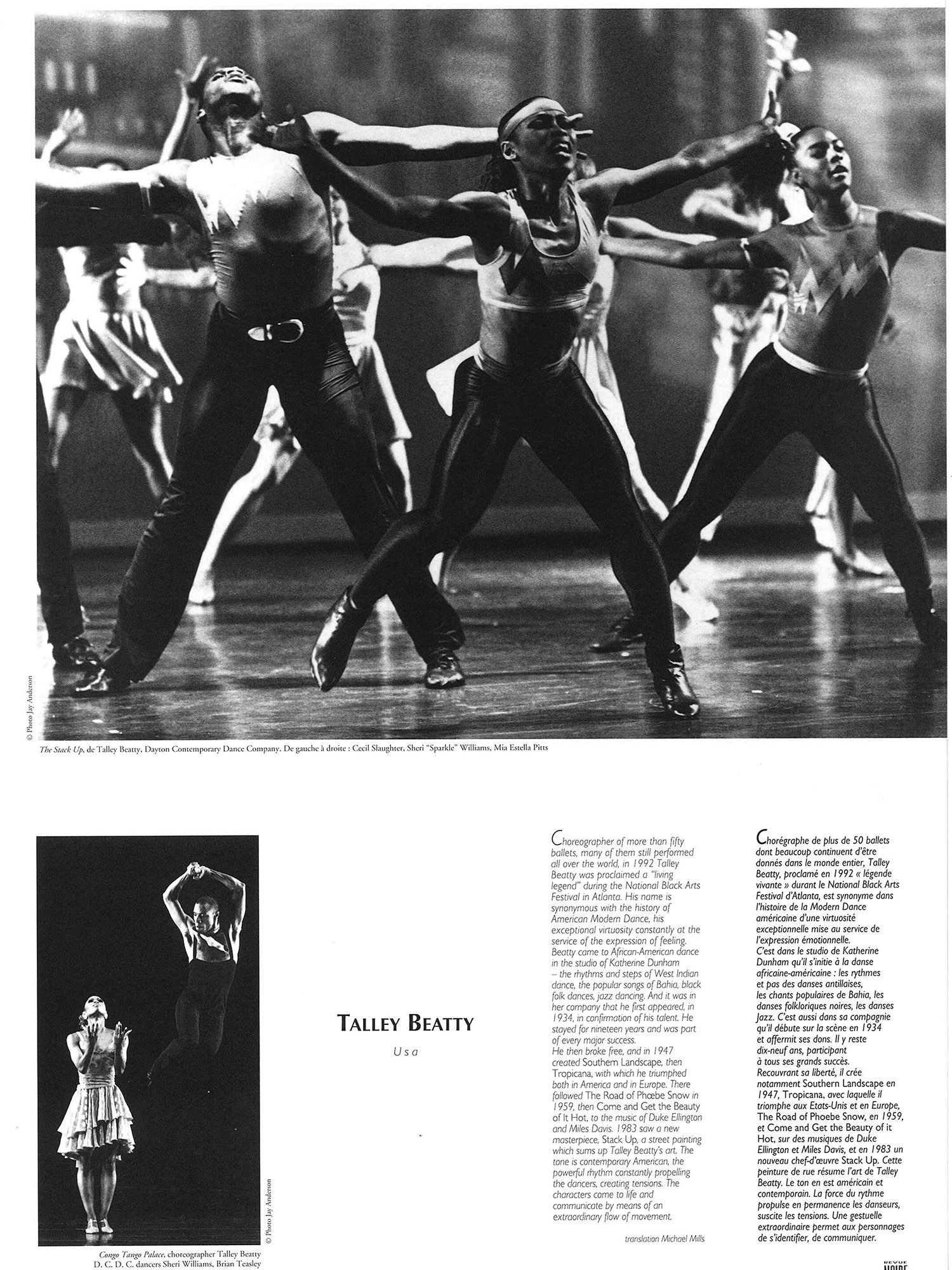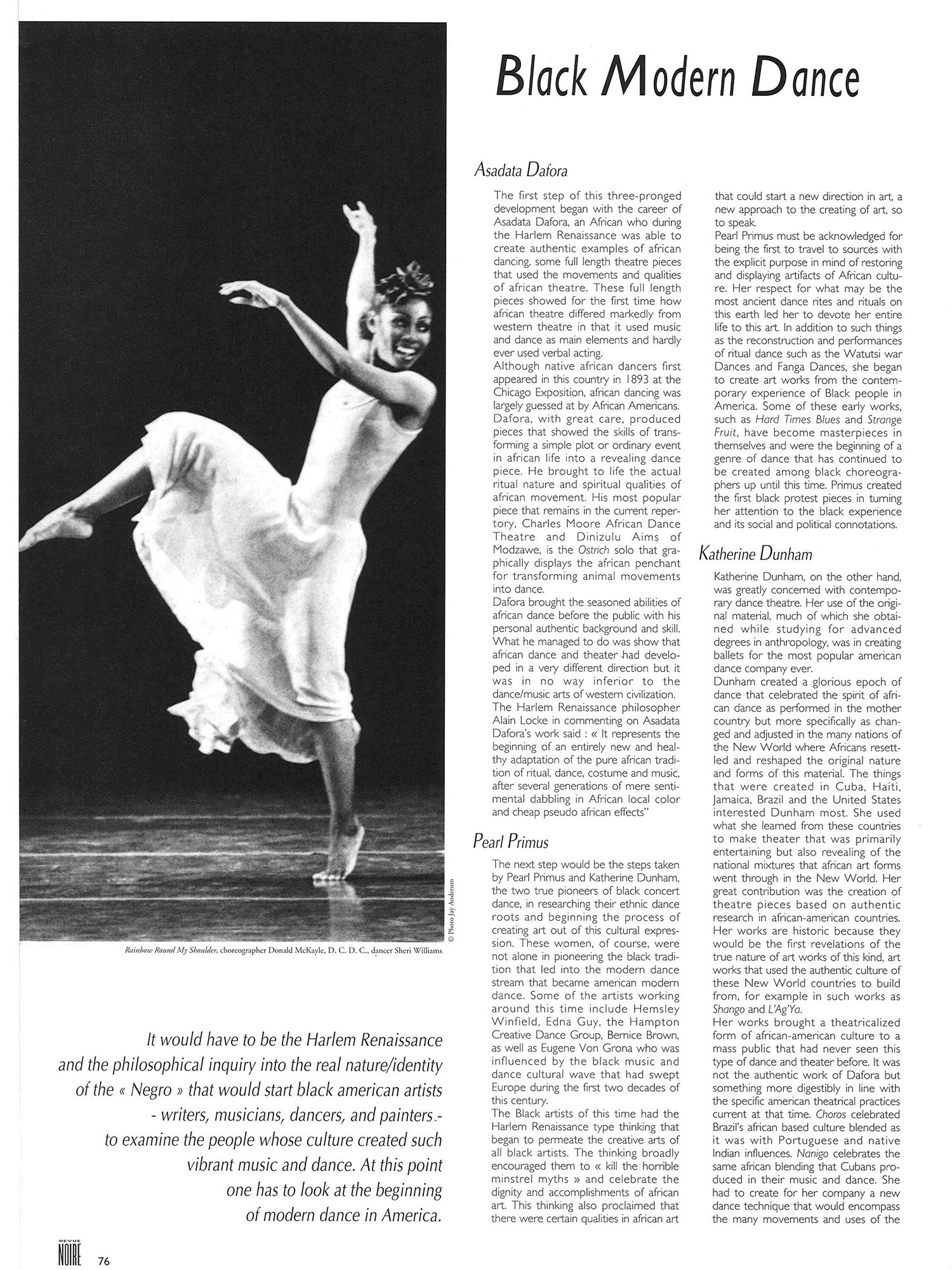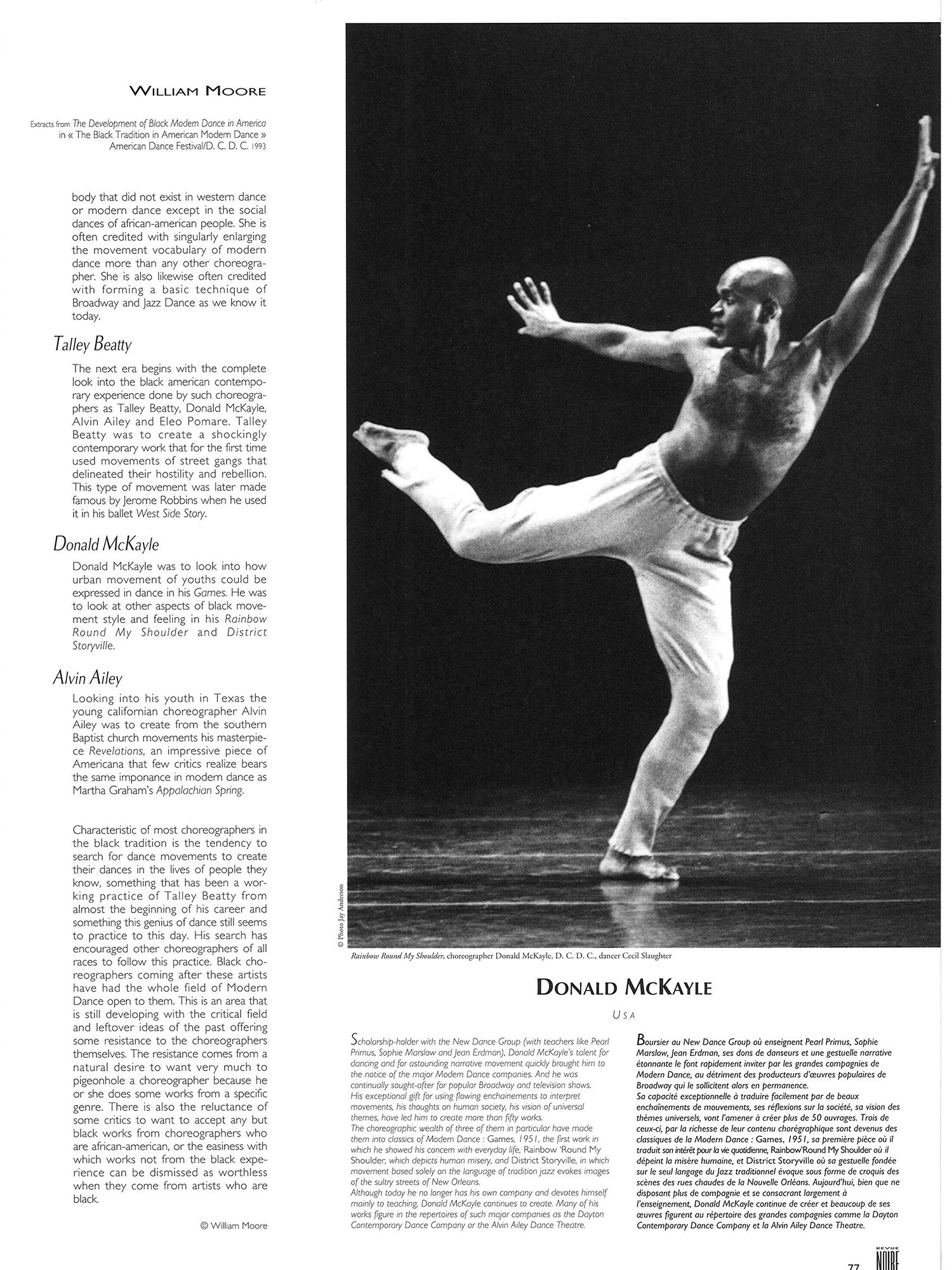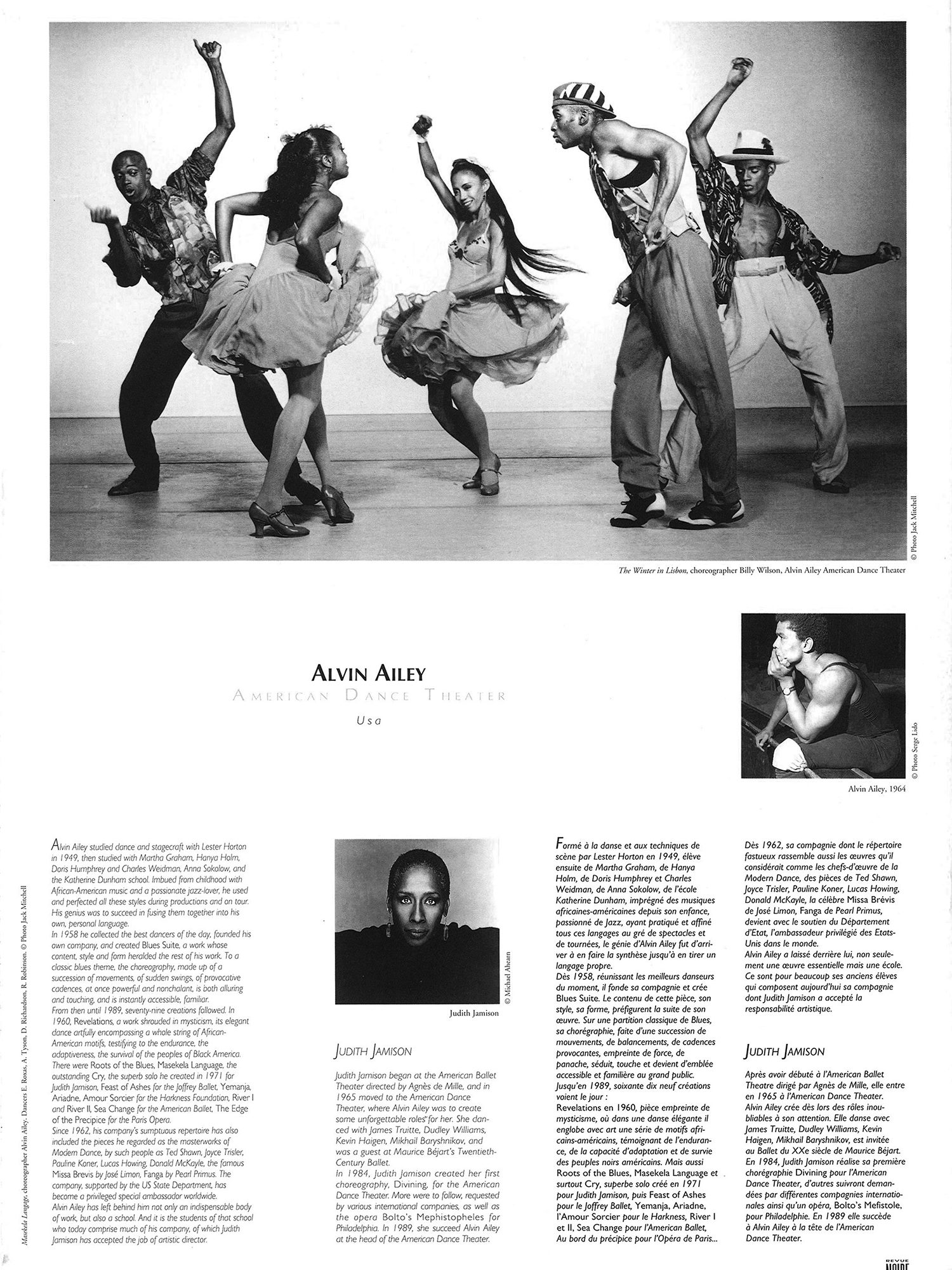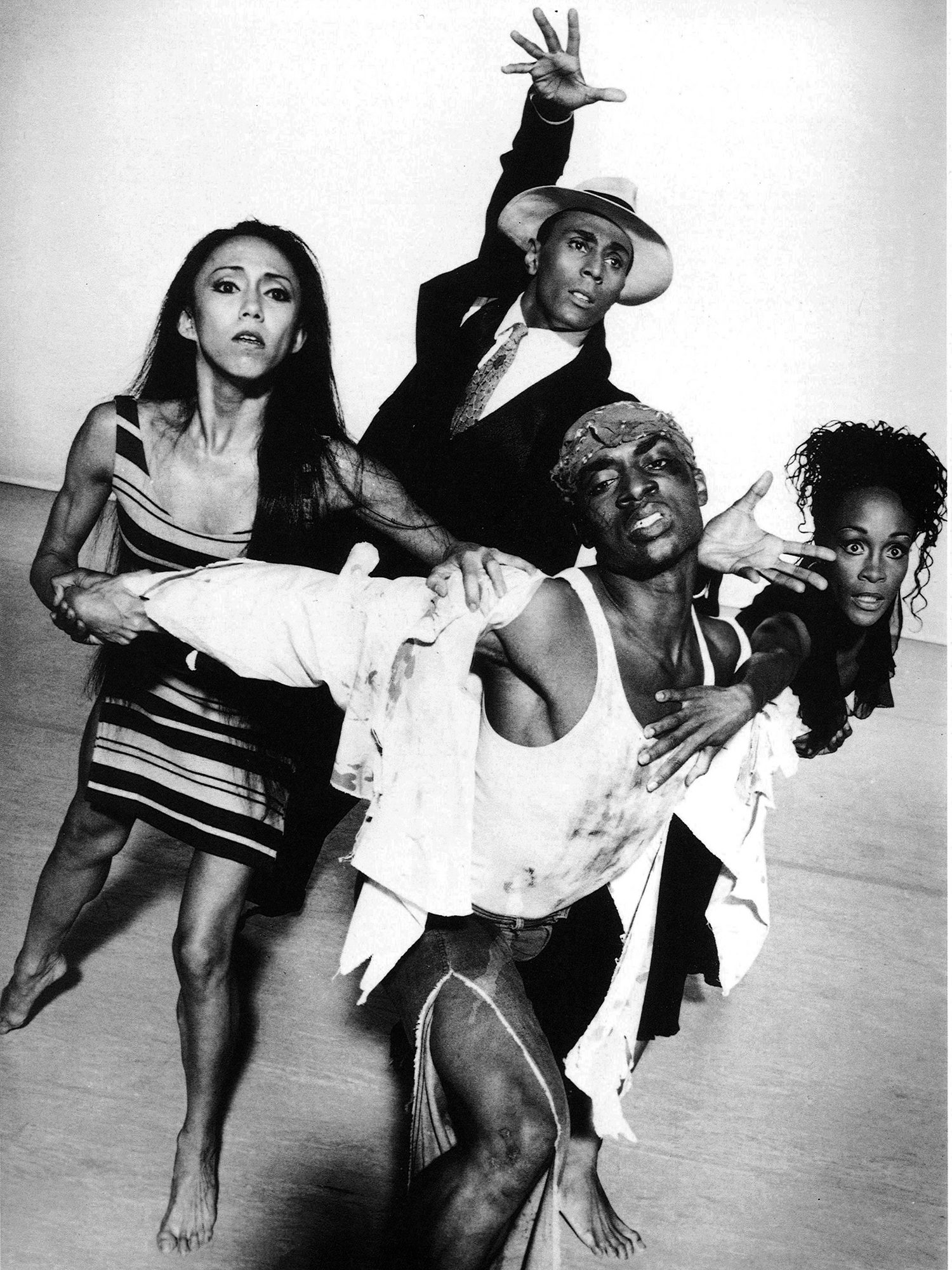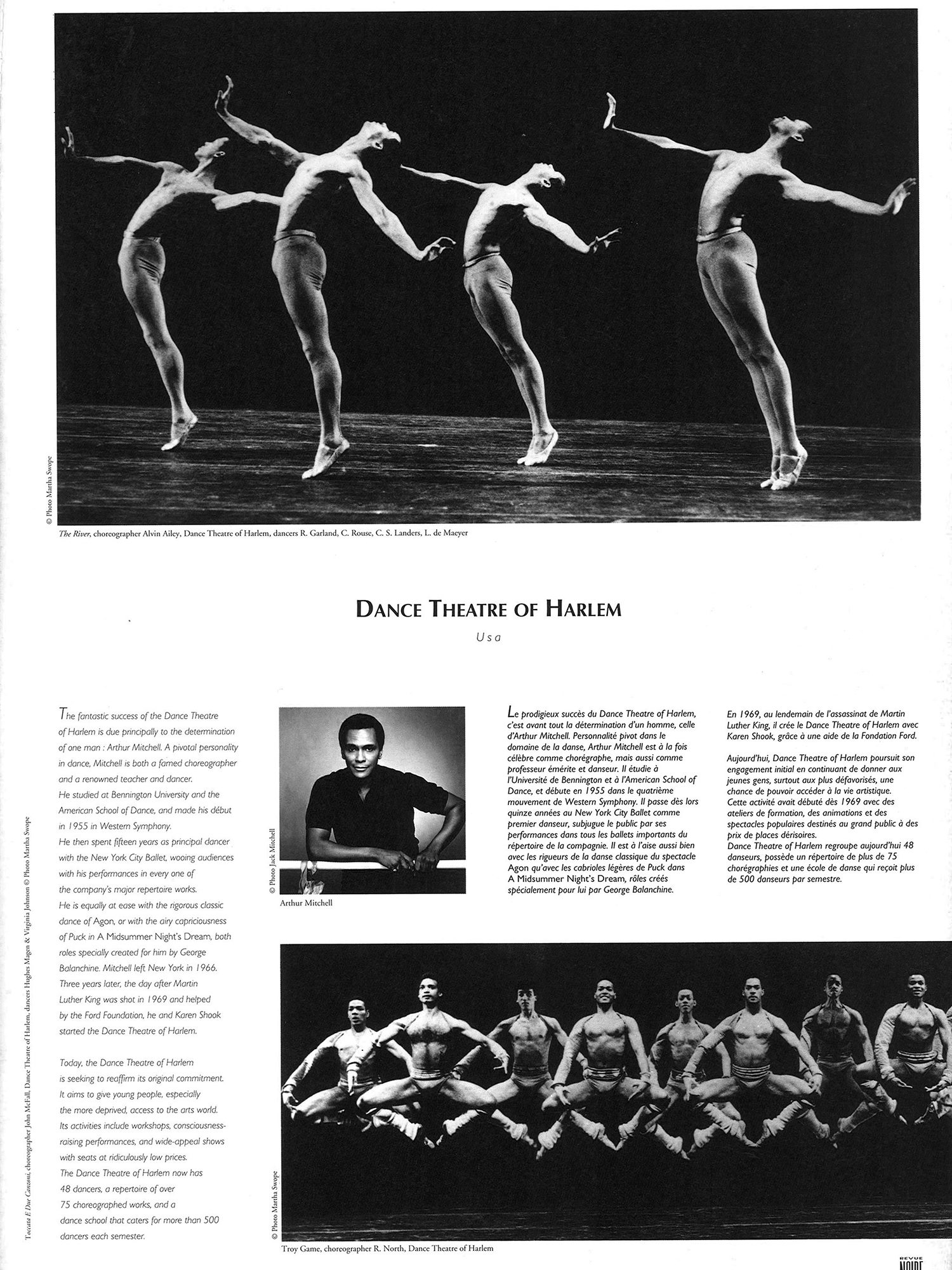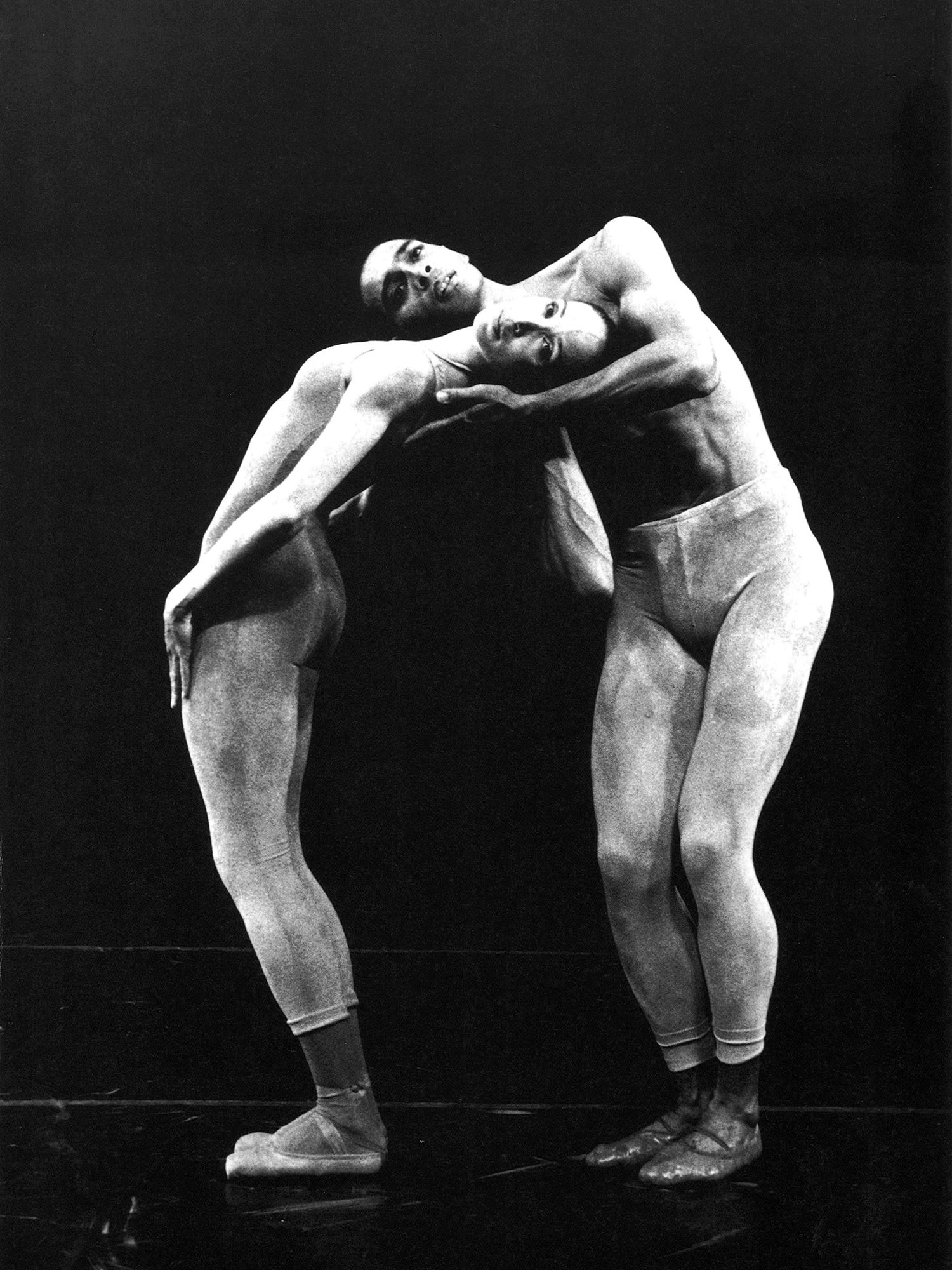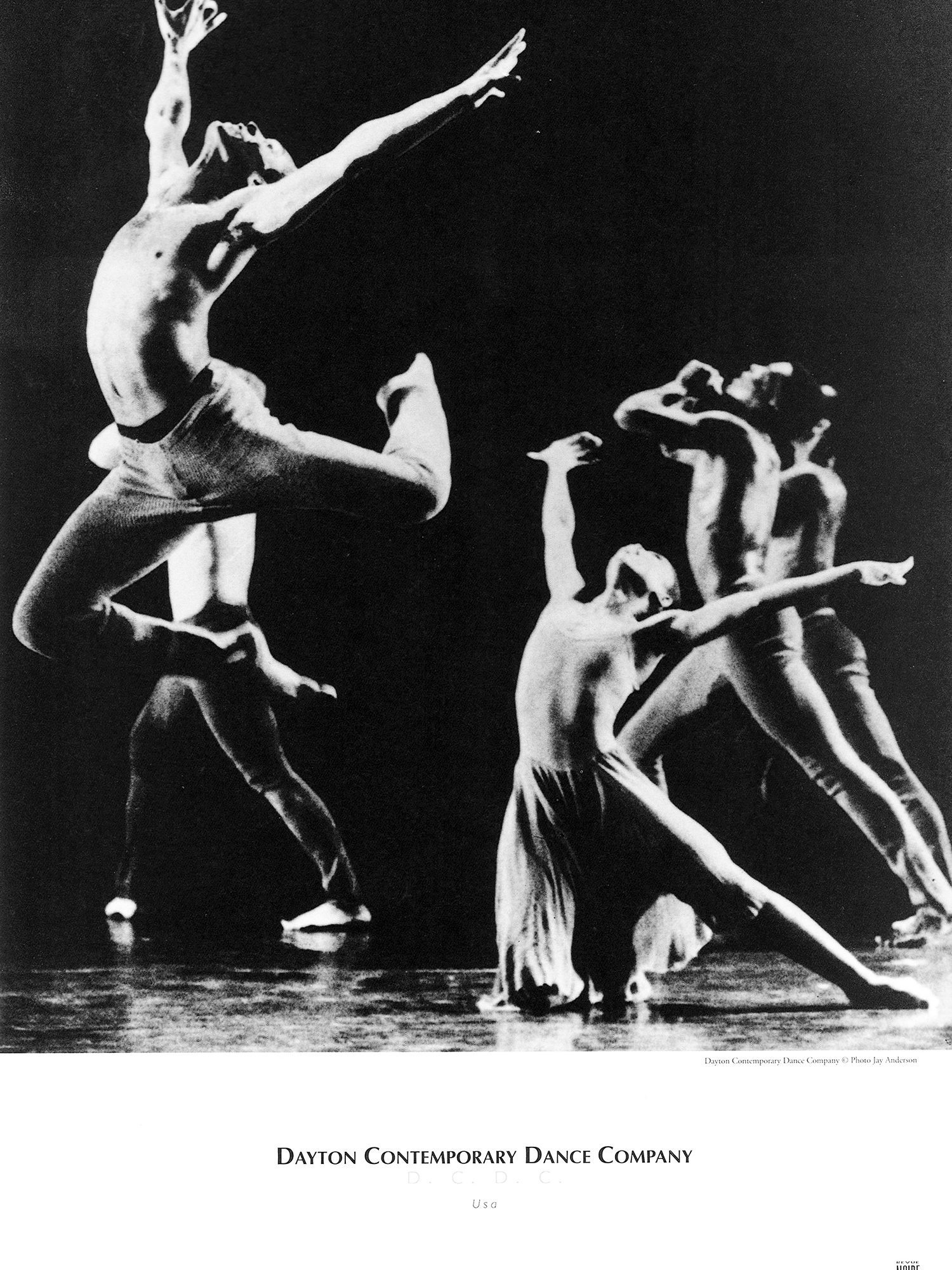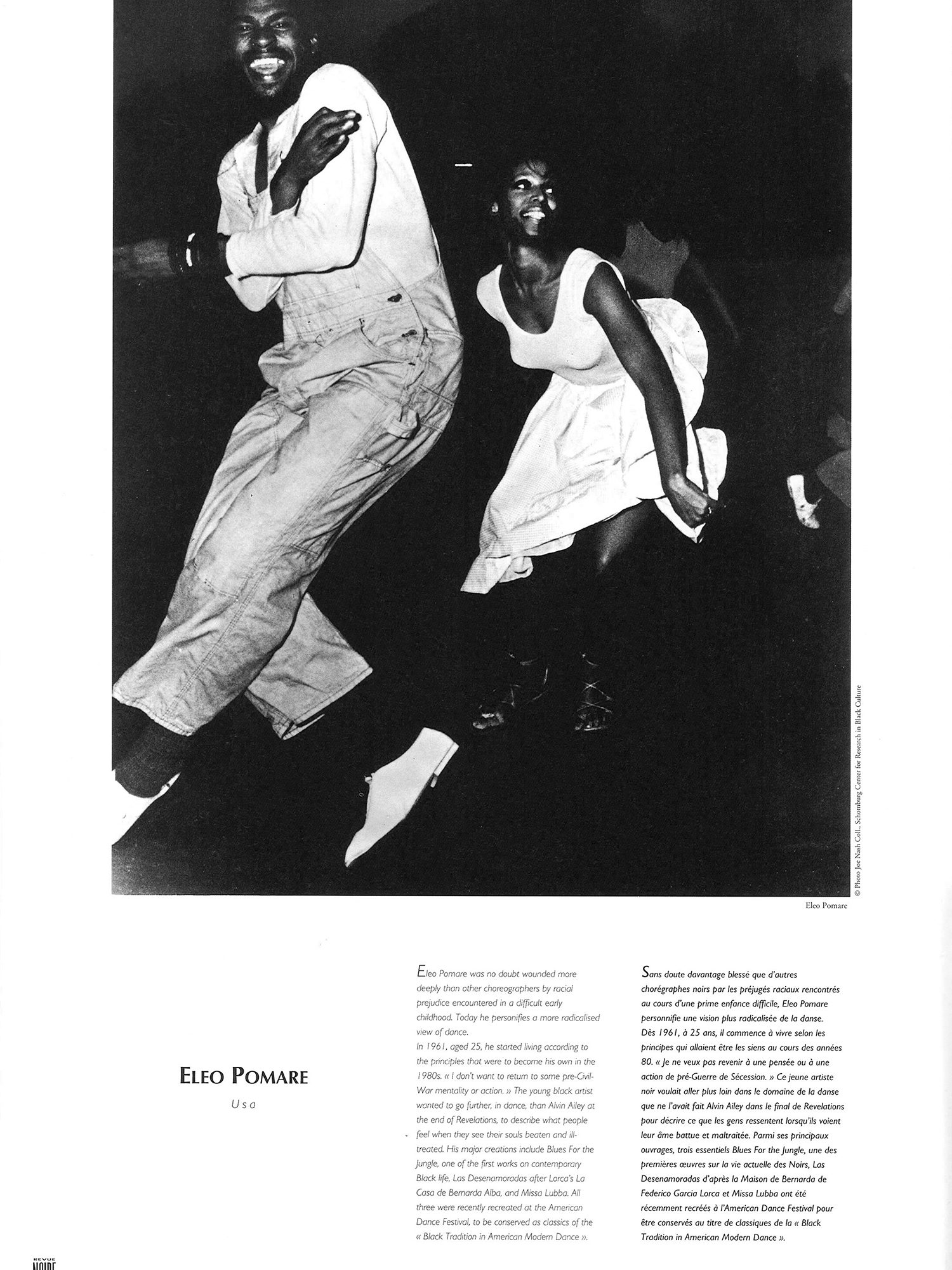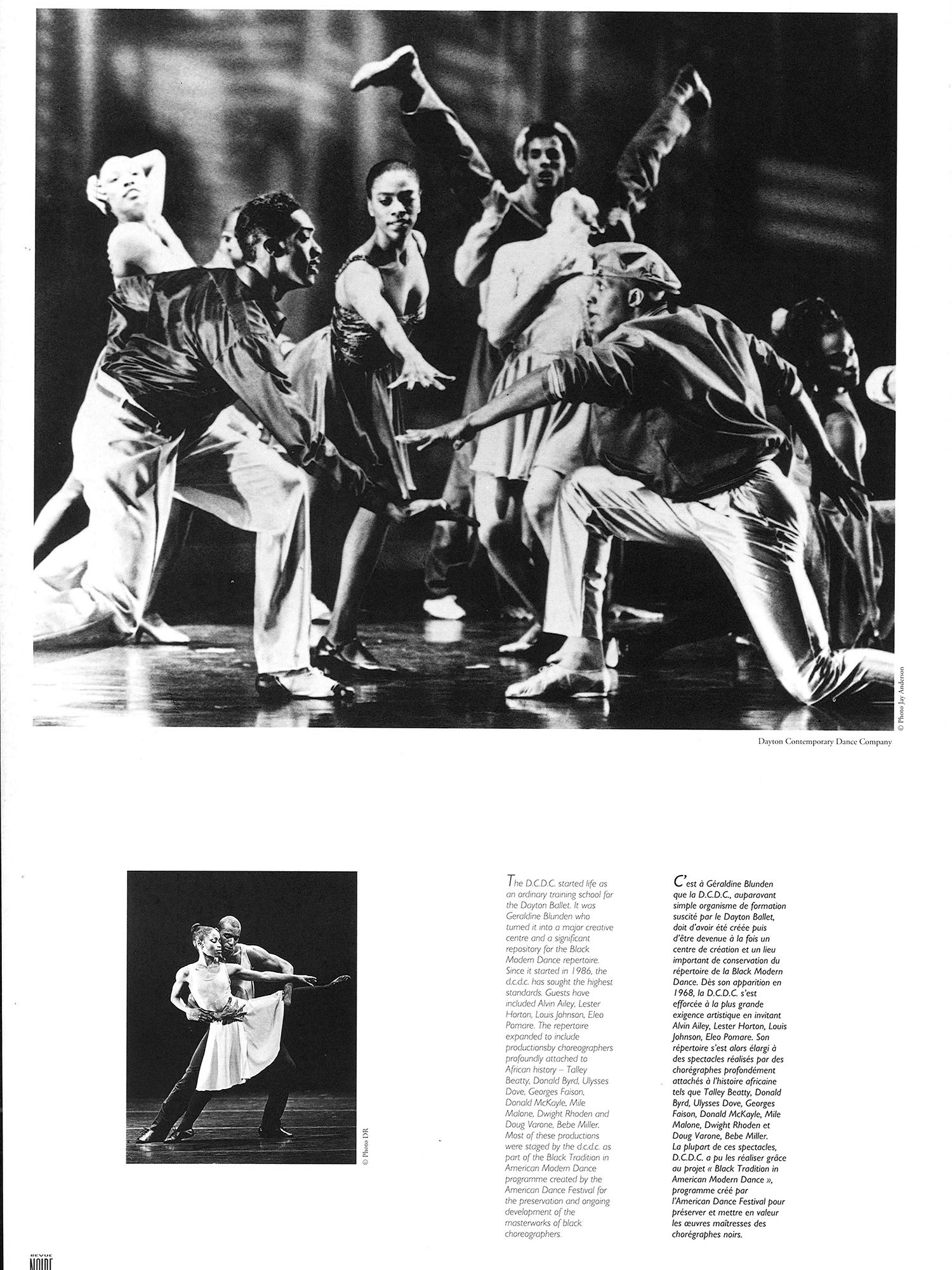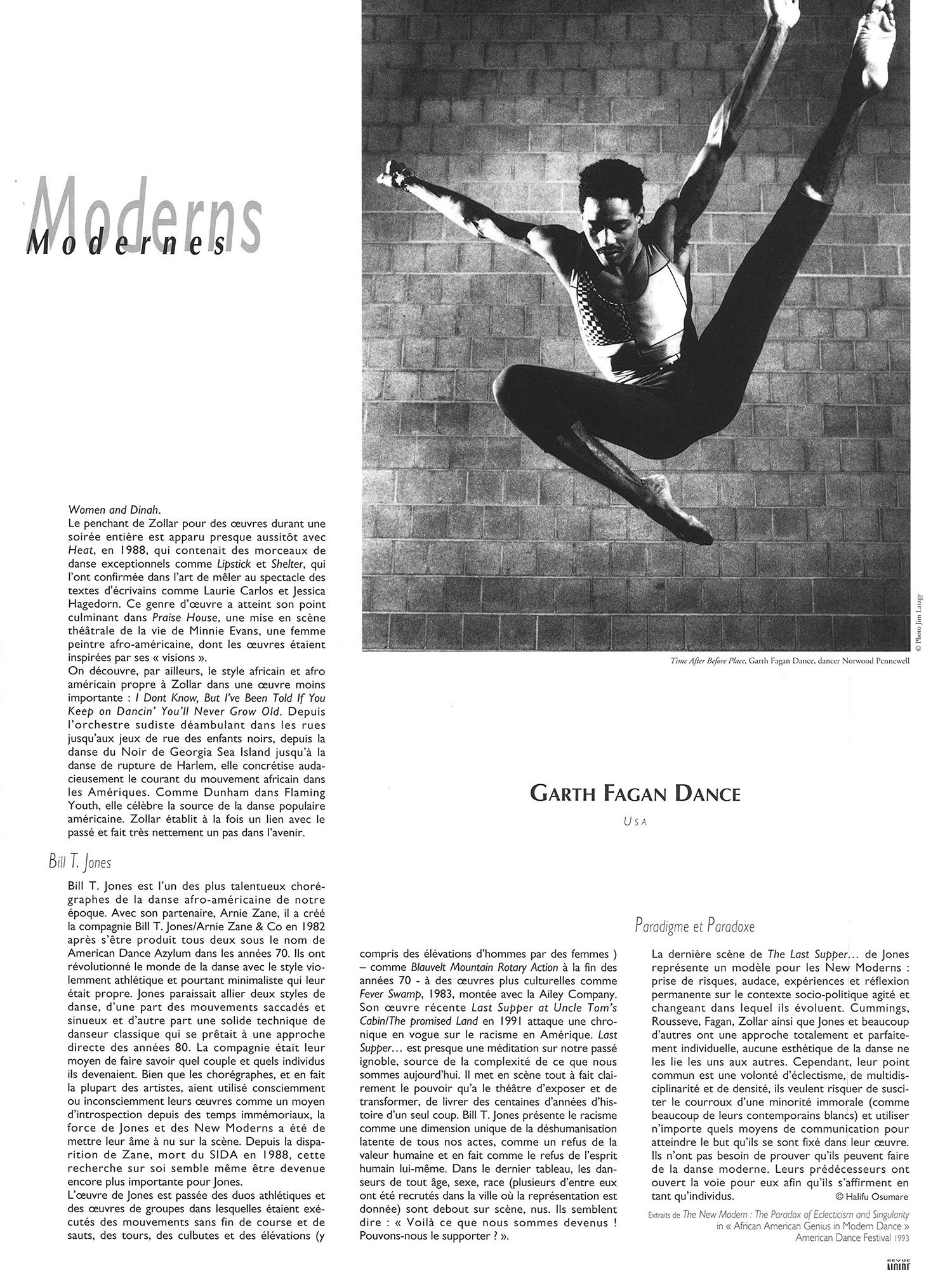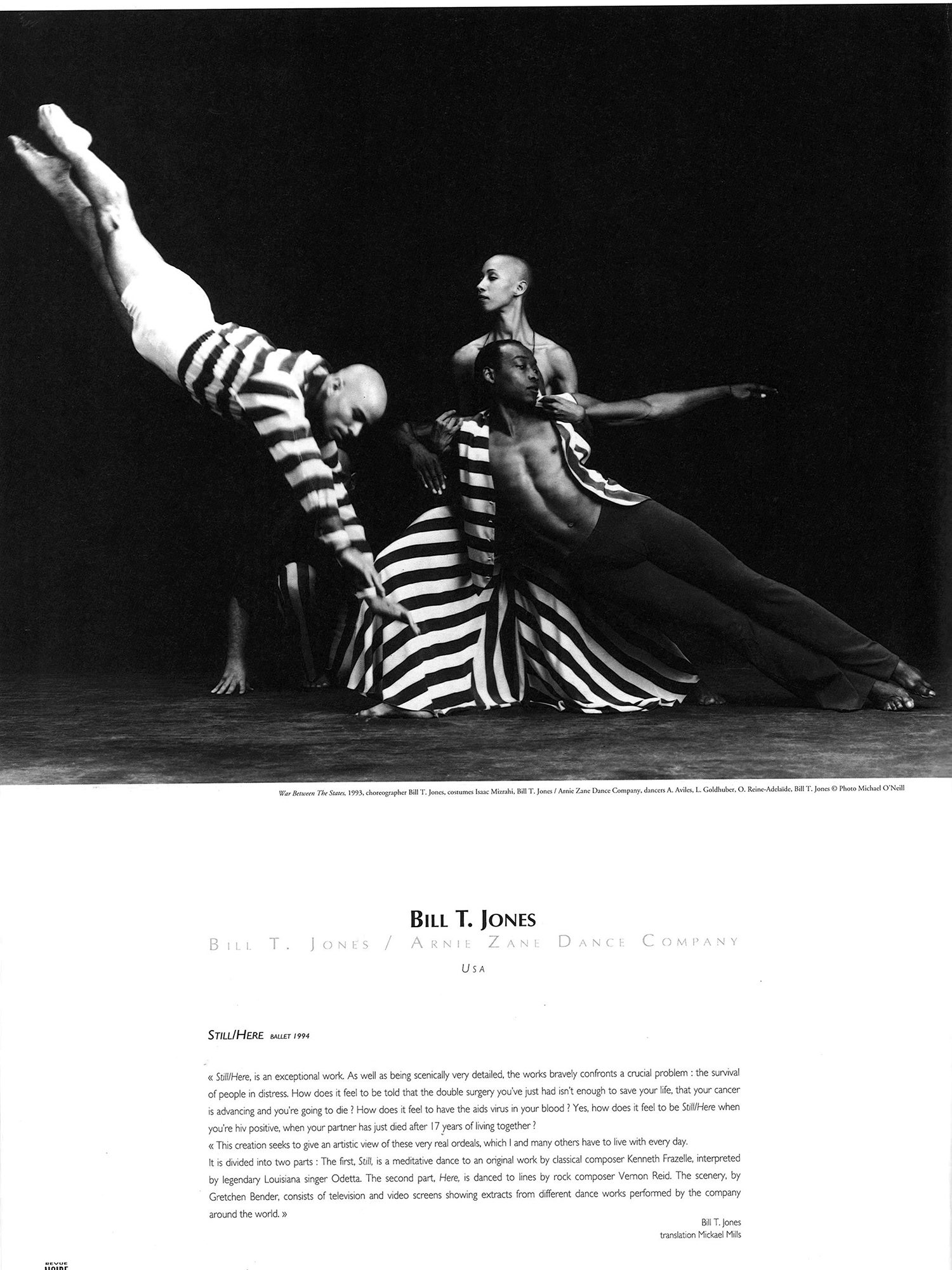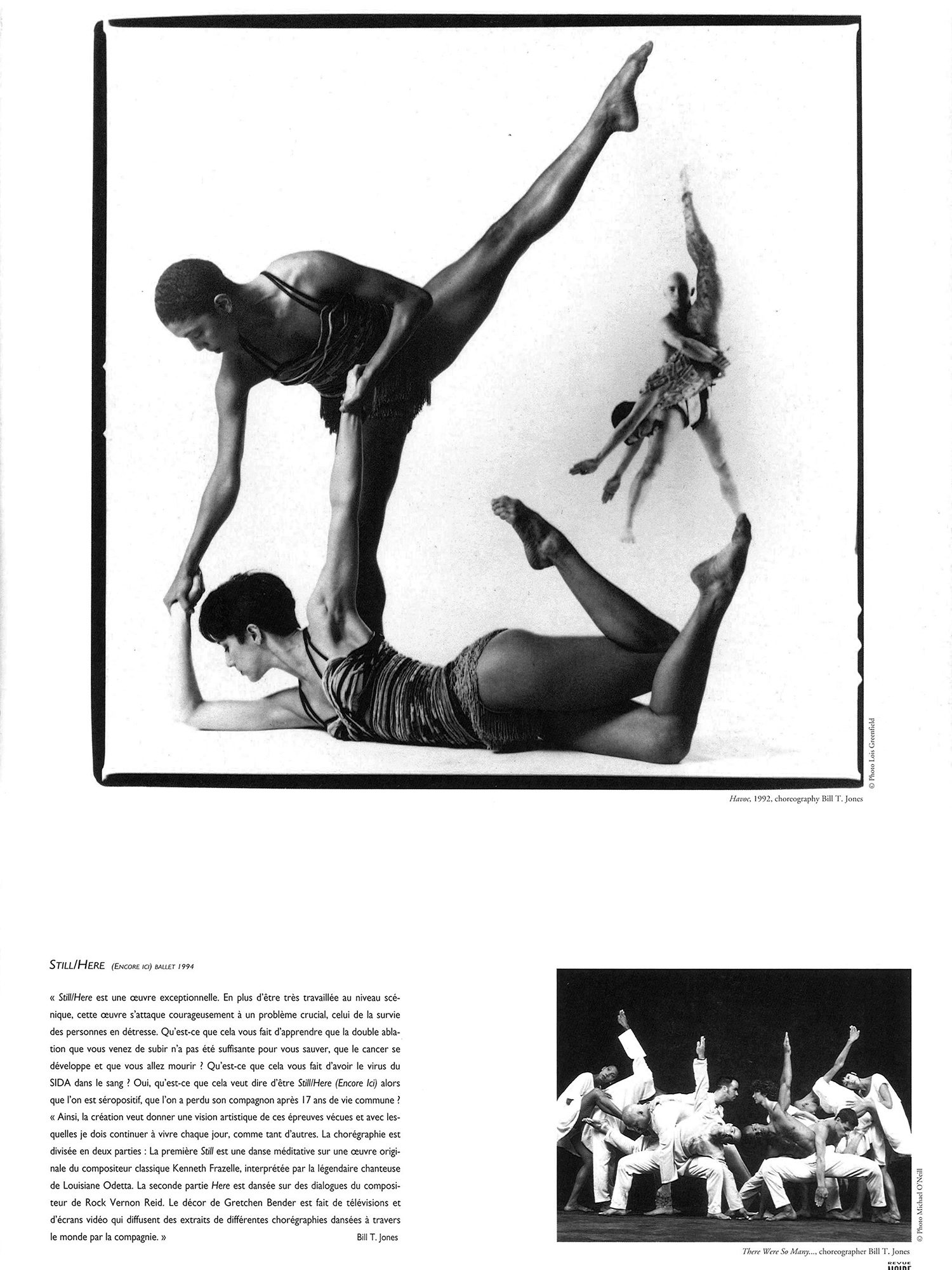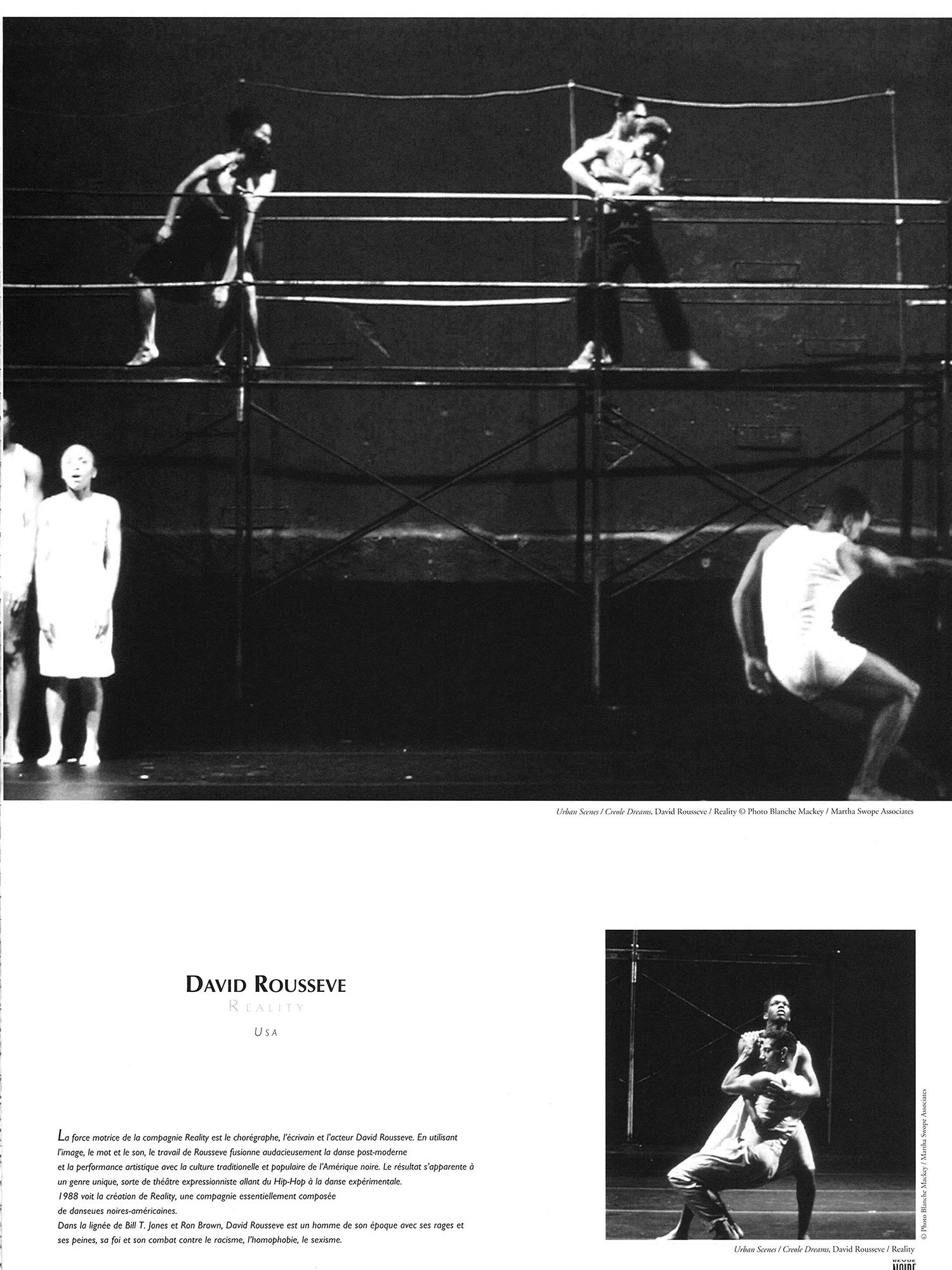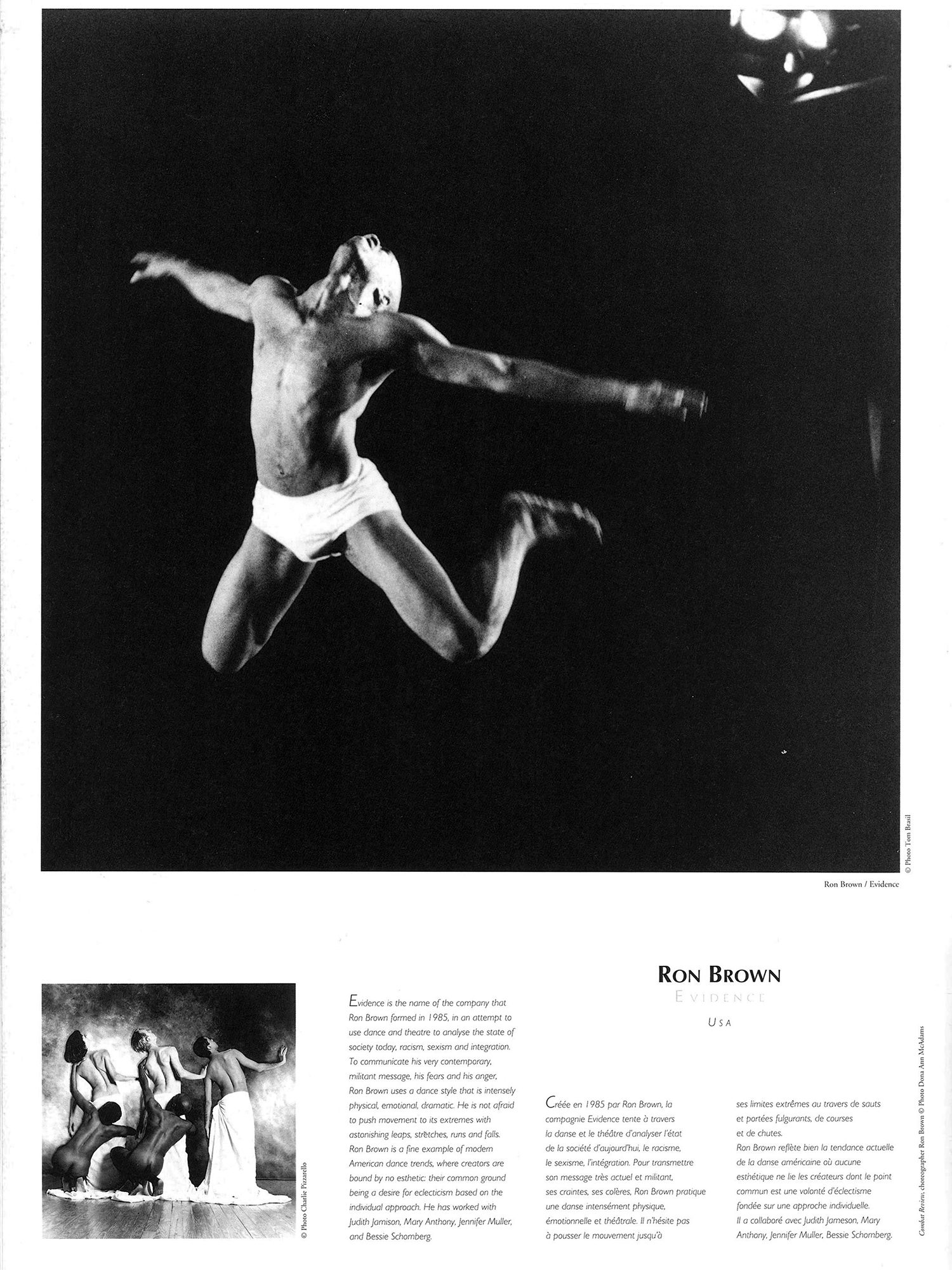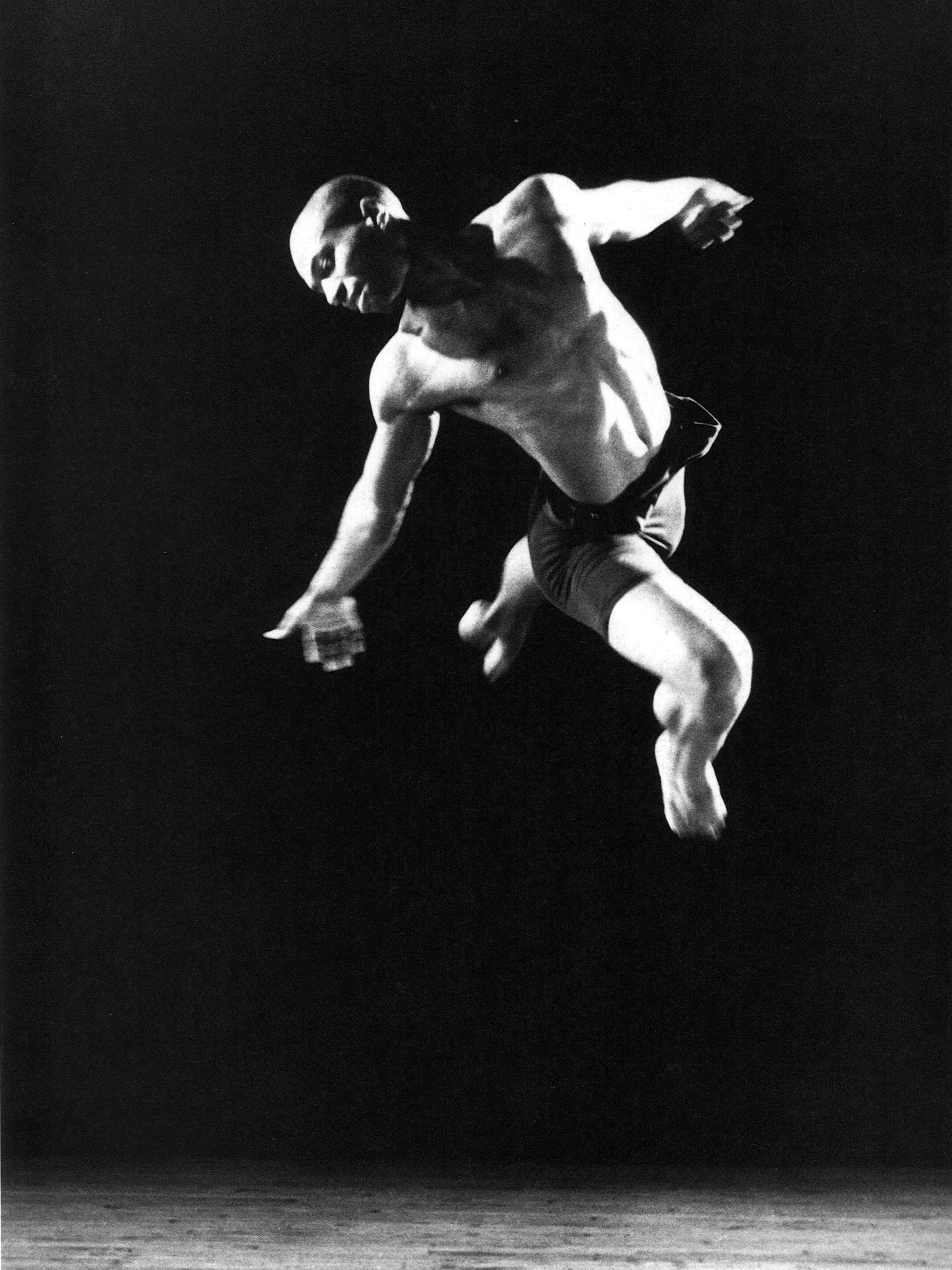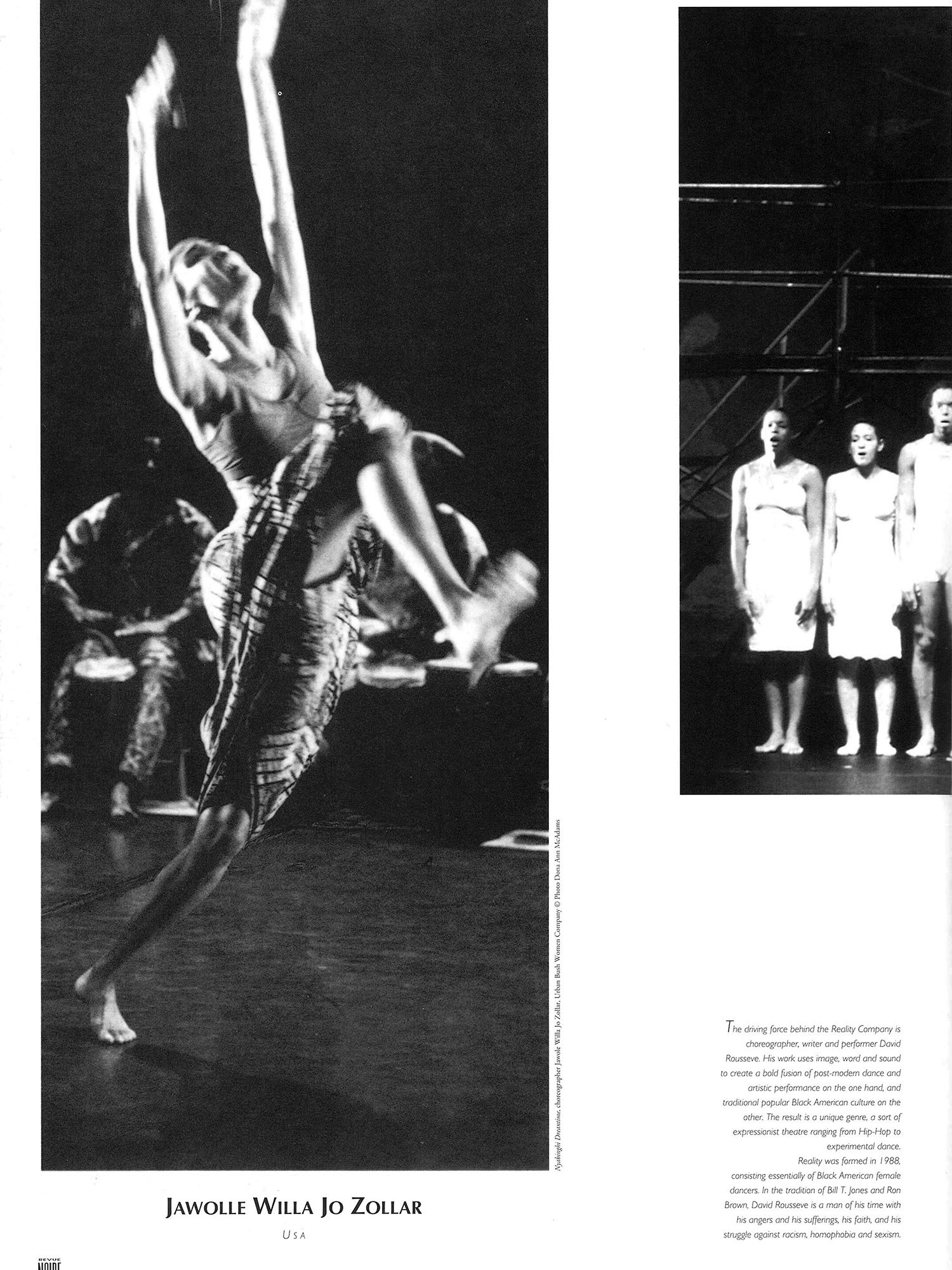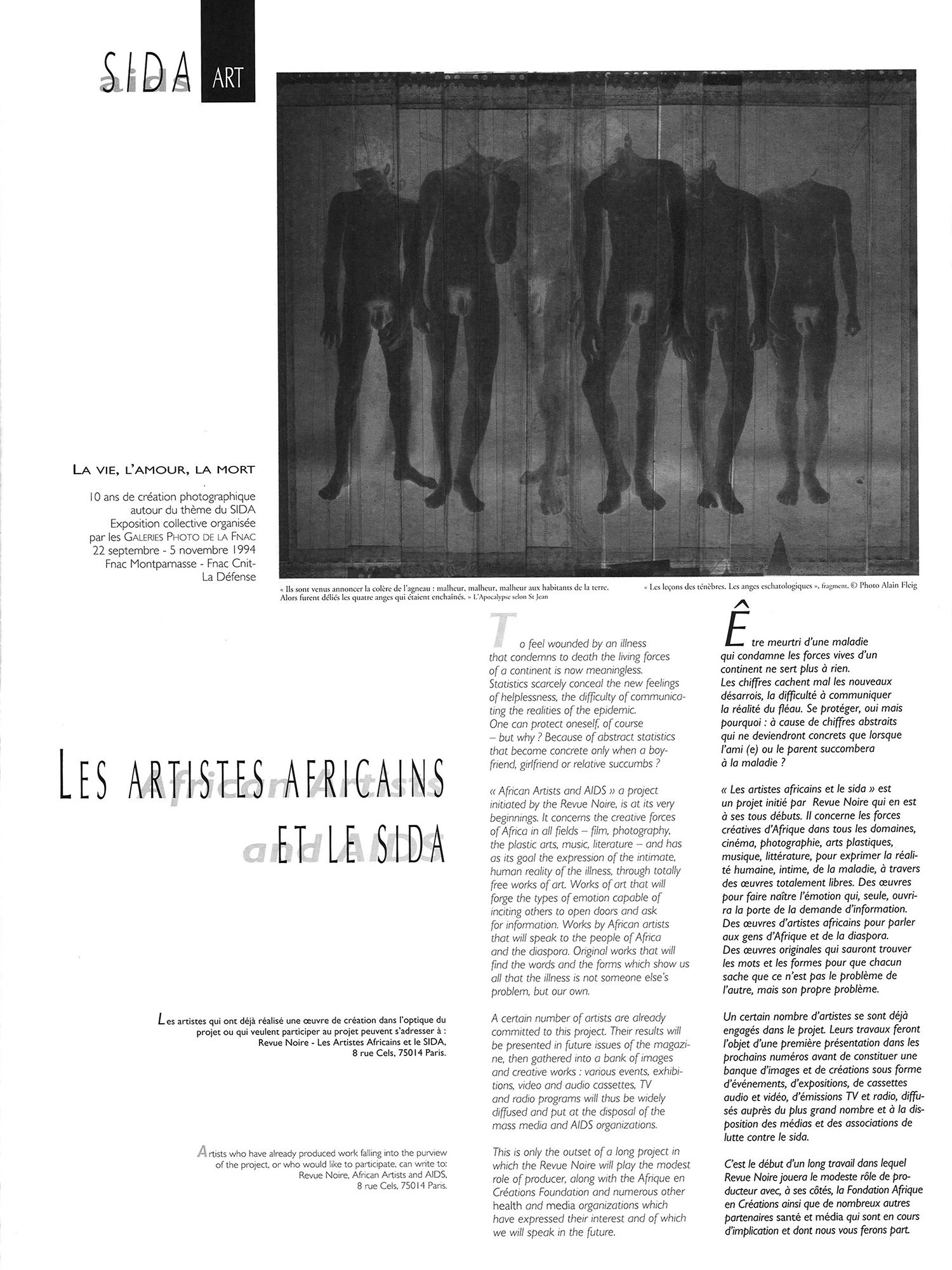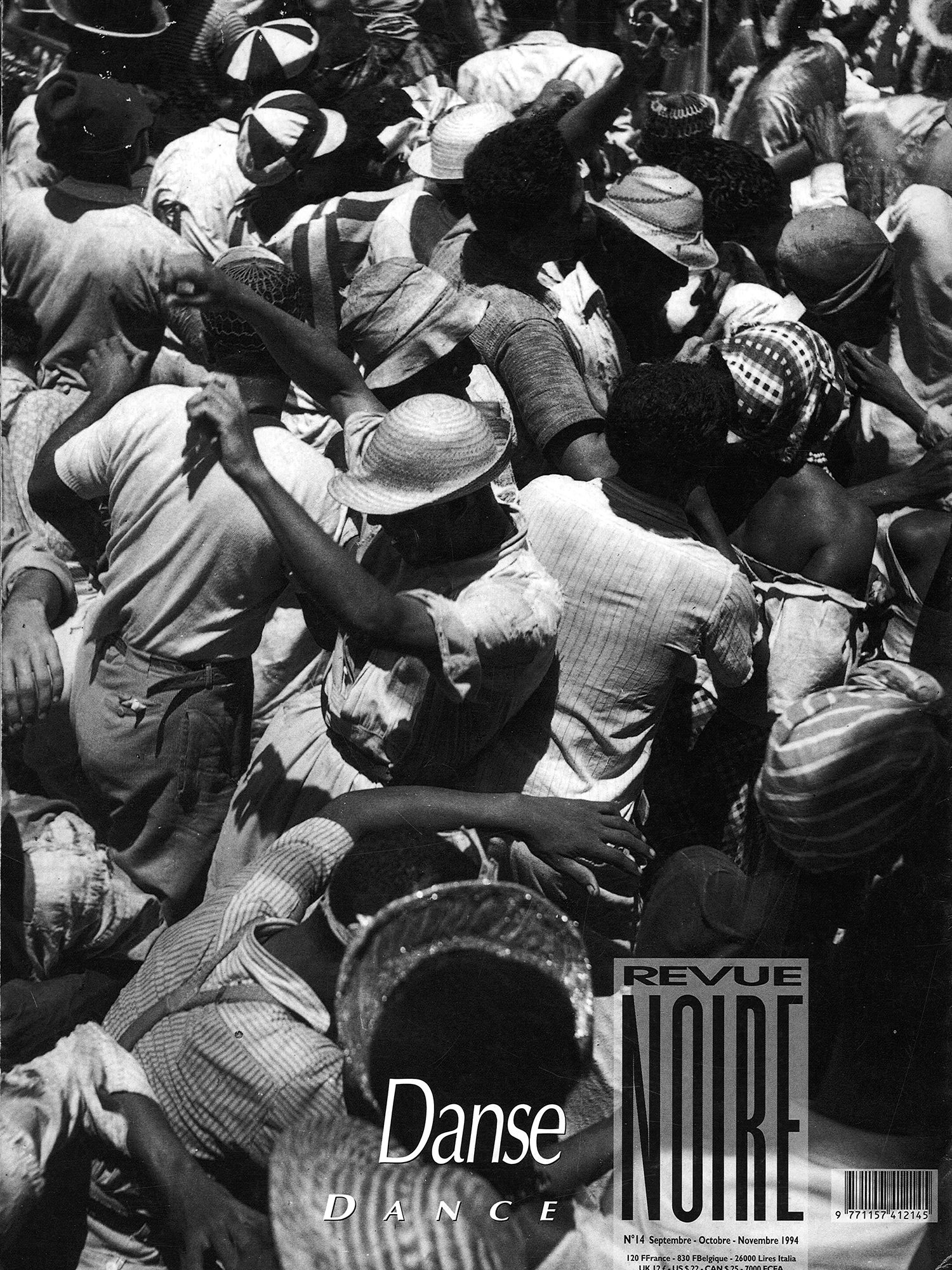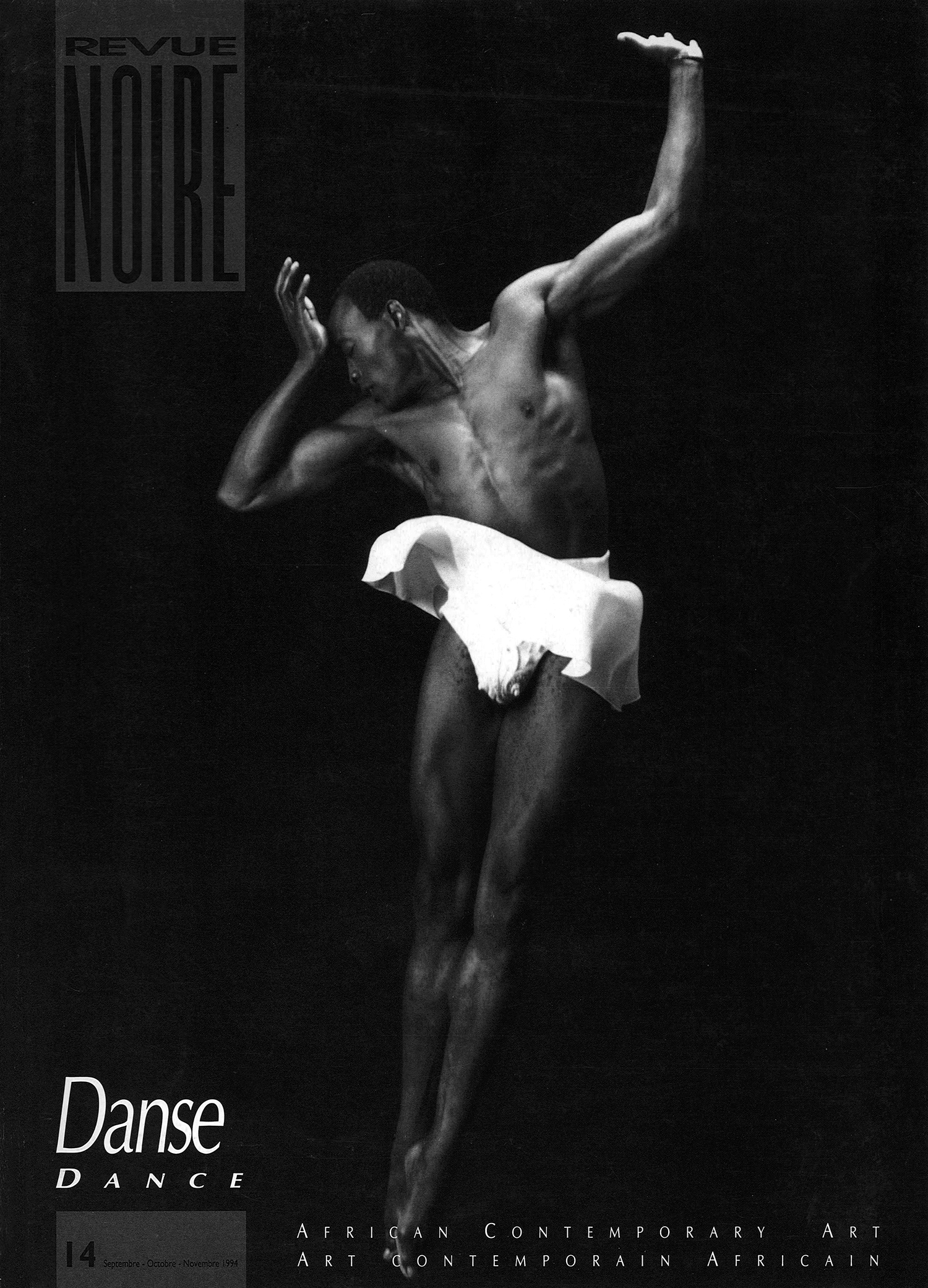
Special Dance
Africa, Caribbean, Americas, Europe
Dance Companies Portfolios
Photography
Literature, theater
Music
Talks / Memories
Editor Jean Loup Pivin
Special 108 pages 40x28cm
Published in September 1994
In French and English
buy the paper or pdf magazine
EDITO
The Idolator
Believing in dance, as in music, painting or literature, probably means believing in the human beings who become dancers, musicians, painters or poets and whom society deifies only so as to better marginalize those who are unable to surpass the accepted norms of talent or the qualifiers of « amateur », « folk » or « popular ».
The idolatry of « greatness », of « genius », conceals the poverty of our relationship to art as well as our incapability of believing that such forms can also be our own. This is why we wanted this special issue on dance, which is published in conjunction with the Biennale de la Danse in Lyon, to open up perspectives on numerous kinds of dancing : those that can be studied with admiration as well as those that anyone can dance.
If one excludes the case of the southern African countries, where the ancient colonial system has transformed the relationship to art into one based on European codes, one is often surprised that there is no real contemporary African dance, today in 1994, except in isolated examples, often implanted in various world capitals such as Paris, London and New York. This is simply because dances are danced in Africa, and because dances to be watched do not really exist except in rituals which, nonetheless, sooner or later give the opportunity to everyone of saying what dancing means by the action of his or her body.
From Joséphine Baker to Bill T. Jones, another path has been taken : that of the stage and its relationship to the public; in brief, that of modern dance. Is it Black ? Is it White ? The various contributors to this issue worry little about this question. On the other hand, the first analysts of dance, as well as numerous choreographers, have affirmed the importance of African dance. This affirmation is real and, we hope, definitive. Others in the future can put the finishing touches to the modalities and, advisedly or ill-advisedly, dissect the fine details of meaning : the spirit of dancing, in the dust or on the floorboards, will ever continue to animate our bodies.
by Jean Loup Pivin
contents of RN 14 :
DANCE / FRANCE / Elsa Wolliaston, Germaine Acogny, Irène Tassembedo, Georges Momboye, Koffi Koko Kôkô, Mathilde Monnier, De Hexe,
/ UK / H Patten, Adzido, Peter Badejo, Kokuma, Irie, Gérard Wilson, Accrorap, Collectiv Mouv', Azanie
/ GERMANY / Ismaël Ivo
/ AFRICA /Timbuka, Motlhalefi Mahlabe, Reshile Gumboots, Fodeba, Logwé, Sabar, Goumbé, Reuk Reuk
/ CARIBBEAN / Jean François Colombo, Lisette Malidor, Doriane Larcher,
/ BRAZIL / Capoeira, Grupo Corpo,
/ USA / Katherine Dunham, Claquettes, Juga, Gigue, Minstrel, Jig Tap Dance, Cakewalk, Charleston, Lindy Hop, Bebop, Rock n'Roll, Jerk, Pearl Primus, Asadata Dafora, Talley Beatty, Donald McKayle, Alvin Ailey, Judith Jamison, Dance Theatre of Harlem, Arthur Mitchell, R. North, Dayton Contemporary Dance Company, DCDC, Eleo Pamare, Blondell Cummings, David Rousseve, Garth Fagan, Jawole Willa Jo Zollar, Bill T Jones, Arnie Zane Dance, Ron
ART / Mechtilt
PHOTO / Pierre Fatumbi Verger, Martine Barrat, Pascal Martin Saint Leon, Alain Fleig
LITERATURE / Ruhabura
THEATRE / Kotéba, Souleymane Koly
MUSIC / Adama Dramé, Tambours de Brazza, Son, Mambo, Cha Cha, Rumba, Afro Jazz, Nueva Trova, La Pompadour, La Tumba, Conjunto los Naranjos, Sandra Reaves, African Jazz Pionners, Big Band, Crosby, Bill Robinson, Joséphine Baker, Randy Weston, Gnaoui
MEMORY THEORY / Alphonse Tiérou, Oumar Sall, Jean-Jacques Mandel, Achille Ngoye, Helen Denniston, Dominique Roland, Francisco Bottaro, Sally Sommer, Patrick Bensard, William Moore, Halifu Osumare, Jean-Claude Charles
Few pages from magazine RN 14 :
.

